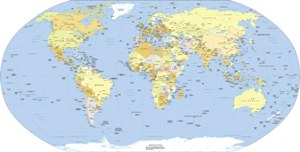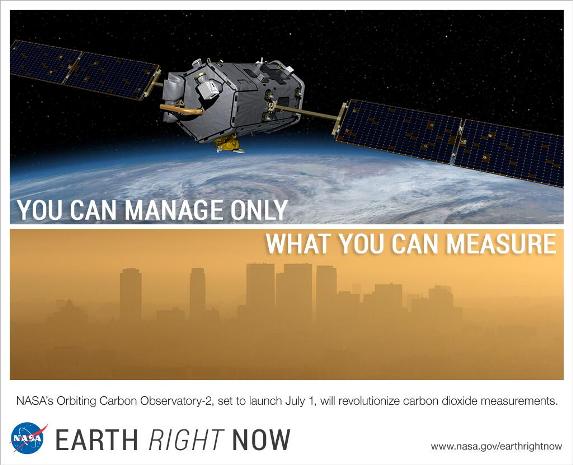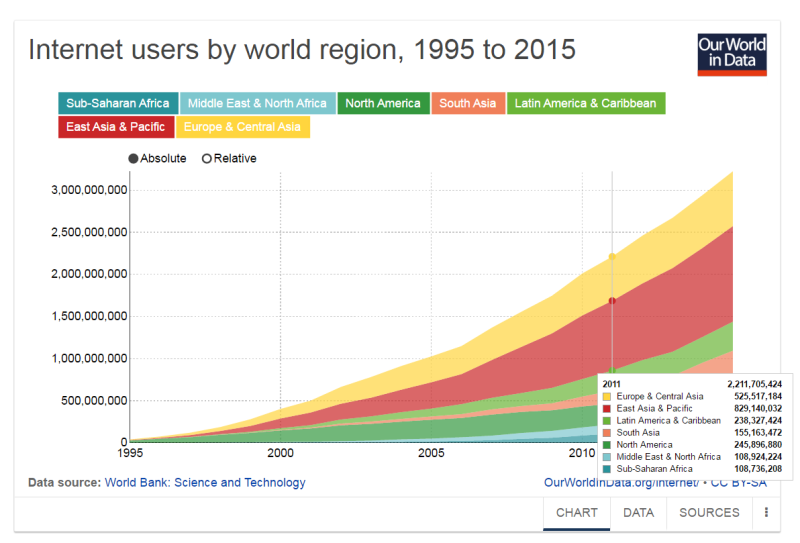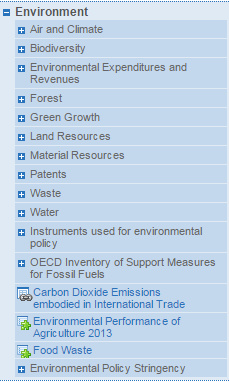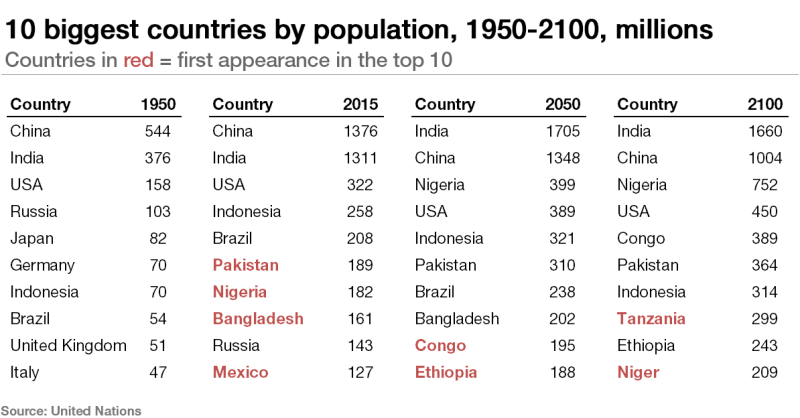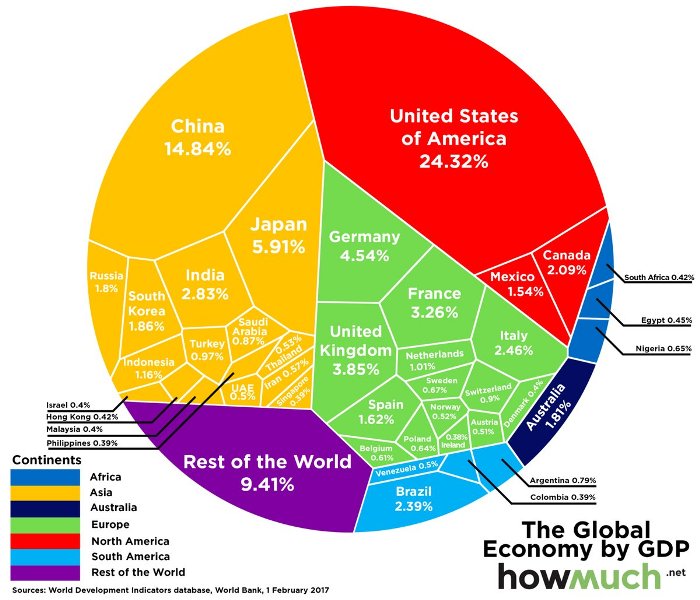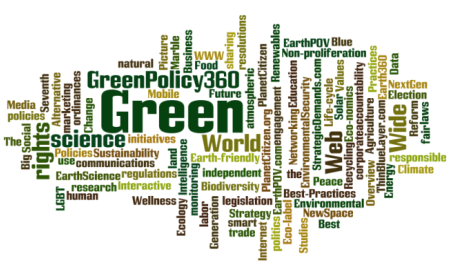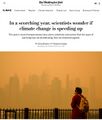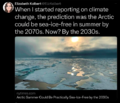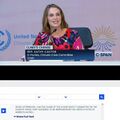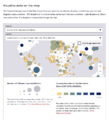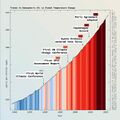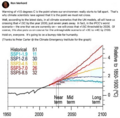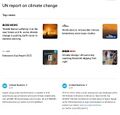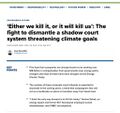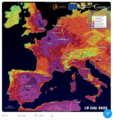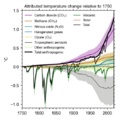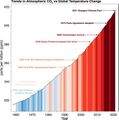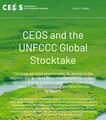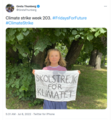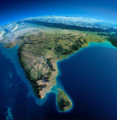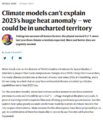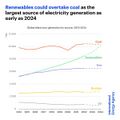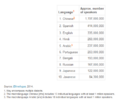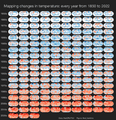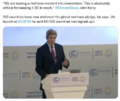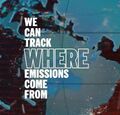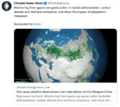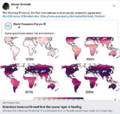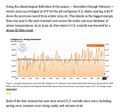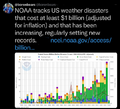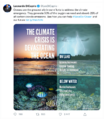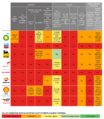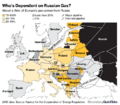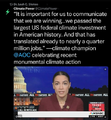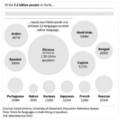The index is based on 60 indicators grouped in five different categories, measuring pluralism, civil liberties and political culture. In addition to a numeric score and a ranking, the index categorizes each country into one of four regime types: full democracies, flawed democracies, hybrid regimes, and authoritarian regimes. The Economist has published reports with updated versions of the Democracy Index for 2006, 2008, 2010, 2011, 2012, 2013, 2014, 2015, 2016, 2017, 2018, 2019, 2020, and 2021. (The Democracy index studies were reported every two years initially, the first report was published in 2006, then in 2008 and 2010. From 2010 the index became annual.)
Loading map...
{"format":"leaflet","minzoom":false,"maxzoom":false,"limit":5000,"offset":0,"link":"all","sort":[""],"order":[],"headers":"show","mainlabel":"","intro":"","outro":"","searchlabel":"... further results","default":"","import-annotation":false,"width":"auto","height":"350px","centre":false,"title":"","label":"","icon":"","lines":[],"polygons":[],"circles":[],"rectangles":[],"copycoords":false,"static":false,"zoom":false,"defzoom":14,"layers":["OpenStreetMap"],"image layers":[],"overlays":[],"resizable":false,"fullscreen":false,"scrollwheelzoom":true,"cluster":true,"clustermaxzoom":20,"clusterzoomonclick":true,"clustermaxradius":80,"clusterspiderfy":true,"geojson":"","clicktarget":"","showtitle":true,"hidenamespace":true,"template":"","userparam":"","activeicon":"","pagelabel":false,"ajaxcoordproperty":"","ajaxquery":"","locations":[{"text":"\u003Cb\u003E\u003Ca href=\"/w/AFSCME_Fair_Trade_Resolution\" title=\"AFSCME Fair Trade Resolution\"\u003EAFSCME Fair Trade Resolution\u003C/a\u003E\u003C/b\u003E","title":"AFSCME Fair Trade Resolution","link":"","lat":38.907222222222,"lon":-77.036944444444,"icon":""},{"text":"\u003Cb\u003E\u003Ca href=\"/w/AFSCME_Local_2627_Anti-war_Resolution\" title=\"AFSCME Local 2627 Anti-war Resolution\"\u003EAFSCME Local 2627 Anti-war Resolution\u003C/a\u003E\u003C/b\u003E","title":"AFSCME Local 2627 Anti-war Resolution","link":"","lat":40.712777777778,"lon":-74.005833333333,"icon":""},{"text":"\u003Cb\u003E\u003Ca href=\"/w/AFSCME_Resolution_Opposing_Sweatshops\" title=\"AFSCME Resolution Opposing Sweatshops\"\u003EAFSCME Resolution Opposing Sweatshops\u003C/a\u003E\u003C/b\u003E","title":"AFSCME Resolution Opposing Sweatshops","link":"","lat":38.907222222222,"lon":-77.036944444444,"icon":""},{"text":"\u003Cb\u003E\u003Ca href=\"/w/Aberdeen,_NJ_Urging_the_Governor_to_Support_a_Moratorium_on_Revaluations\" title=\"Aberdeen, NJ Urging the Governor to Support a Moratorium on Revaluations\"\u003EAberdeen, NJ Urging the Governor to Support a Moratorium on Revaluations\u003C/a\u003E\u003C/b\u003E","title":"Aberdeen, NJ Urging the Governor to Support a Moratorium on Revaluations","link":"","lat":40.417222222222,"lon":-74.222222222222,"icon":""},{"text":"\u003Cb\u003E\u003Ca href=\"/w/Aberdeen,_Scotland_%22Fantastic_it%27s_not_Plastic%22_Campaign\" title=\"Aberdeen, Scotland \u0026quot;Fantastic it\u0026#039;s not Plastic\u0026quot; Campaign\"\u003EAberdeen, Scotland \"Fantastic it's not Plastic\" Campaign\u003C/a\u003E\u003C/b\u003E","title":"Aberdeen, Scotland \"Fantastic it's not Plastic\" Campaign","link":"","lat":57.149722222222,"lon":-2.0941666666667,"icon":""},{"text":"\u003Cb\u003E\u003Ca href=\"/w/Action_Plan_for_Bicycle_Friendly_Communities\" title=\"Action Plan for Bicycle Friendly Communities\"\u003EAction Plan for Bicycle Friendly Communities\u003C/a\u003E\u003C/b\u003E","title":"Action Plan for Bicycle Friendly Communities","link":"","lat":38.907222222222,"lon":-77.036944444444,"icon":""},{"text":"\u003Cb\u003E\u003Ca href=\"/w/Ada_County,_ID_Green_Building_Standards\" title=\"Ada County, ID Green Building Standards\"\u003EAda County, ID Green Building Standards\u003C/a\u003E\u003C/b\u003E","title":"Ada County, ID Green Building Standards","link":"","lat":44.068333333333,"lon":-114.74194444444,"icon":""},{"text":"\u003Cb\u003E\u003Ca href=\"/w/Adams_State_College,_CO_Green_Bikes_Program\" title=\"Adams State College, CO Green Bikes Program\"\u003EAdams State College, CO Green Bikes Program\u003C/a\u003E\u003C/b\u003E","title":"Adams State College, CO Green Bikes Program","link":"","lat":37.47,"lon":-105.88055555556,"icon":""},{"text":"\u003Cb\u003E\u003Ca href=\"/w/Adelaide,_Australia_Introduces_World%27s_First_Solar-Powered_Electric_Bus\" title=\"Adelaide, Australia Introduces World\u0026#039;s First Solar-Powered Electric Bus\"\u003EAdelaide, Australia Introduces World's First Solar-Powered Electric Bus\u003C/a\u003E\u003C/b\u003E","title":"Adelaide, Australia Introduces World's First Solar-Powered Electric Bus","link":"","lat":-34.928611111111,"lon":138.6,"icon":""},{"text":"\u003Cb\u003E\u003Ca href=\"/w/Afghanistan\" title=\"Afghanistan\"\u003EAfghanistan\u003C/a\u003E\u003C/b\u003E","title":"Afghanistan","link":"","lat":34.528055555556,"lon":69.172222222222,"icon":""},{"text":"\u003Cb\u003E\u003Ca href=\"/w/Agoura_Hills,_CA_Campaign_Reform\" title=\"Agoura Hills, CA Campaign Reform\"\u003EAgoura Hills, CA Campaign Reform\u003C/a\u003E\u003C/b\u003E","title":"Agoura Hills, CA Campaign Reform","link":"","lat":34.153333333333,"lon":-118.76166666667,"icon":""},{"text":"\u003Cb\u003E\u003Ca href=\"/w/Alamance_County,_NC_Recycling\" title=\"Alamance County, NC Recycling\"\u003EAlamance County, NC Recycling\u003C/a\u003E\u003C/b\u003E","title":"Alamance County, NC Recycling","link":"","lat":36.011666666667,"lon":-79.425277777778,"icon":""},{"text":"\u003Cb\u003E\u003Ca href=\"/w/Alameda_County,_CA_County_Buildings_must_be_LEED_Certified\" title=\"Alameda County, CA County Buildings must be LEED Certified\"\u003EAlameda County, CA County Buildings must be LEED Certified\u003C/a\u003E\u003C/b\u003E","title":"Alameda County, CA County Buildings must be LEED Certified","link":"","lat":37.765277777778,"lon":-122.24166666667,"icon":""},{"text":"\u003Cb\u003E\u003Ca href=\"/w/Alameda_County,_CA_Establishing_an_Integrated_Pest_Management_Committee\" title=\"Alameda County, CA Establishing an Integrated Pest Management Committee\"\u003EAlameda County, CA Establishing an Integrated Pest Management Committee\u003C/a\u003E\u003C/b\u003E","title":"Alameda County, CA Establishing an Integrated Pest Management Committee","link":"","lat":37.601666666667,"lon":-121.71944444444,"icon":""},{"text":"\u003Cb\u003E\u003Ca href=\"/w/Alameda_County,_CA_Stormwater_Quality_Management_Plan\" title=\"Alameda County, CA Stormwater Quality Management Plan\"\u003EAlameda County, CA Stormwater Quality Management Plan\u003C/a\u003E\u003C/b\u003E","title":"Alameda County, CA Stormwater Quality Management Plan","link":"","lat":37.601666666667,"lon":-121.71944444444,"icon":""},{"text":"\u003Cb\u003E\u003Ca href=\"/w/Alameda,_CA_Iraq_Resolution\" title=\"Alameda, CA Iraq Resolution\"\u003EAlameda, CA Iraq Resolution\u003C/a\u003E\u003C/b\u003E","title":"Alameda, CA Iraq Resolution","link":"","lat":37.765277777778,"lon":-122.24166666667,"icon":""},{"text":"\u003Cb\u003E\u003Ca href=\"/w/Albania\" title=\"Albania\"\u003EAlbania\u003C/a\u003E\u003C/b\u003E","title":"Albania","link":"","lat":41.3275,"lon":19.818888888889,"icon":""},{"text":"\u003Cb\u003E\u003Ca href=\"/w/Albany_County,_NY_Resolution_Against_Child_Labor_and_Sweatshops\" title=\"Albany County, NY Resolution Against Child Labor and Sweatshops\"\u003EAlbany County, NY Resolution Against Child Labor and Sweatshops\u003C/a\u003E\u003C/b\u003E","title":"Albany County, NY Resolution Against Child Labor and Sweatshops","link":"","lat":42.575555555556,"lon":-73.936111111111,"icon":""},{"text":"\u003Cb\u003E\u003Ca href=\"/w/Albany_County,_NY_%E2%80%9CPesticide_Sunset%E2%80%9D\" title=\"Albany County, NY \u201cPesticide Sunset\u201d\"\u003EAlbany County, NY \u201cPesticide Sunset\u201d\u003C/a\u003E\u003C/b\u003E","title":"Albany County, NY \u201cPesticide Sunset\u201d","link":"","lat":42.575555555556,"lon":-73.936111111111,"icon":""},{"text":"\u003Cb\u003E\u003Ca href=\"/w/Albany,_CA_Recognition_of_Ocean_View_Community_Garden\" title=\"Albany, CA Recognition of Ocean View Community Garden\"\u003EAlbany, CA Recognition of Ocean View Community Garden\u003C/a\u003E\u003C/b\u003E","title":"Albany, CA Recognition of Ocean View Community Garden","link":"","lat":37.886944444444,"lon":-122.29777777778,"icon":""},{"text":"\u003Cb\u003E\u003Ca href=\"/w/Albany,_CA_Resolution_on_Adopting_Integrated_Pest_Management_Policy\" title=\"Albany, CA Resolution on Adopting Integrated Pest Management Policy\"\u003EAlbany, CA Resolution on Adopting Integrated Pest Management Policy\u003C/a\u003E\u003C/b\u003E","title":"Albany, CA Resolution on Adopting Integrated Pest Management Policy","link":"","lat":37.886944444444,"lon":-122.29777777778,"icon":""},{"text":"\u003Cb\u003E\u003Ca href=\"/w/Albany,_NY_Citizens%27_Police_Review_Board\" title=\"Albany, NY Citizens\u0026#039; Police Review Board\"\u003EAlbany, NY Citizens' Police Review Board\u003C/a\u003E\u003C/b\u003E","title":"Albany, NY Citizens' Police Review Board","link":"","lat":42.6525,"lon":-73.756111111111,"icon":""},{"text":"\u003Cb\u003E\u003Ca href=\"/w/Albuquerque,_NM_%22Big-Box%22_Regulations\" title=\"Albuquerque, NM \u0026quot;Big-Box\u0026quot; Regulations\"\u003EAlbuquerque, NM \"Big-Box\" Regulations\u003C/a\u003E\u003C/b\u003E","title":"Albuquerque, NM \"Big-Box\" Regulations","link":"","lat":35.085277777778,"lon":-106.60555555556,"icon":""},{"text":"\u003Cb\u003E\u003Ca href=\"/w/Alexandria,_VA_Human_Rights\" title=\"Alexandria, VA Human Rights\"\u003EAlexandria, VA Human Rights\u003C/a\u003E\u003C/b\u003E","title":"Alexandria, VA Human Rights","link":"","lat":38.804722222222,"lon":-77.046944444444,"icon":""},{"text":"\u003Cb\u003E\u003Ca href=\"/w/Alexandria,_VA_Living_Wage\" title=\"Alexandria, VA Living Wage\"\u003EAlexandria, VA Living Wage\u003C/a\u003E\u003C/b\u003E","title":"Alexandria, VA Living Wage","link":"","lat":38.804722222222,"lon":-77.046944444444,"icon":""},{"text":"\u003Cb\u003E\u003Ca href=\"/w/Alexandria,_VA_Recycling\" title=\"Alexandria, VA Recycling\"\u003EAlexandria, VA Recycling\u003C/a\u003E\u003C/b\u003E","title":"Alexandria, VA Recycling","link":"","lat":38.804722222222,"lon":-77.046944444444,"icon":""},{"text":"\u003Cb\u003E\u003Ca href=\"/w/Algeria\" title=\"Algeria\"\u003EAlgeria\u003C/a\u003E\u003C/b\u003E","title":"Algeria","link":"","lat":36.732222222222,"lon":3.0875,"icon":""},{"text":"\u003Cb\u003E\u003Ca href=\"/w/Allegany_County,_NY_in_Regards_to_Labeling_of_Depleted_Uranium_Shipments\" title=\"Allegany County, NY in Regards to Labeling of Depleted Uranium Shipments\"\u003EAllegany County, NY in Regards to Labeling of Depleted Uranium Shipments\u003C/a\u003E\u003C/b\u003E","title":"Allegany County, NY in Regards to Labeling of Depleted Uranium Shipments","link":"","lat":42.313055555556,"lon":-78.019444444444,"icon":""},{"text":"\u003Cb\u003E\u003Ca href=\"/w/Allegheny_College,_PA_Creek_Connections\" title=\"Allegheny College, PA Creek Connections\"\u003EAllegheny College, PA Creek Connections\u003C/a\u003E\u003C/b\u003E","title":"Allegheny College, PA Creek Connections","link":"","lat":41.649444444444,"lon":-80.145,"icon":""},{"text":"\u003Cb\u003E\u003Ca href=\"/w/Allegheny_County,_PA_Sweatshop_Ordinance\" title=\"Allegheny County, PA Sweatshop Ordinance\"\u003EAllegheny County, PA Sweatshop Ordinance\u003C/a\u003E\u003C/b\u003E","title":"Allegheny County, PA Sweatshop Ordinance","link":"","lat":40.445,"lon":-80.008888888889,"icon":""},{"text":"\u003Cb\u003E\u003Ca href=\"/w/Allen_Park,_MI_Living_Wage\" title=\"Allen Park, MI Living Wage\"\u003EAllen Park, MI Living Wage\u003C/a\u003E\u003C/b\u003E","title":"Allen Park, MI Living Wage","link":"","lat":42.2575,"lon":-83.211111111111,"icon":""},{"text":"\u003Cb\u003E\u003Ca href=\"/w/Allentown,_PA_%22Inside_Allentown%22\" title=\"Allentown, PA \u0026quot;Inside Allentown\u0026quot;\"\u003EAllentown, PA \"Inside Allentown\"\u003C/a\u003E\u003C/b\u003E","title":"Allentown, PA \"Inside Allentown\"","link":"","lat":40.608333333333,"lon":-75.490277777778,"icon":""},{"text":"\u003Cb\u003E\u003Ca href=\"/w/American_University,_DC_Workplace_Conduct_Advisory_Team\" title=\"American University, DC Workplace Conduct Advisory Team\"\u003EAmerican University, DC Workplace Conduct Advisory Team\u003C/a\u003E\u003C/b\u003E","title":"American University, DC Workplace Conduct Advisory Team","link":"","lat":38.936944444444,"lon":-77.090833333333,"icon":""},{"text":"\u003Cb\u003E\u003Ca href=\"/w/Amherst,_MA_Fair_Trade_Resolution\" title=\"Amherst, MA Fair Trade Resolution\"\u003EAmherst, MA Fair Trade Resolution\u003C/a\u003E\u003C/b\u003E","title":"Amherst, MA Fair Trade Resolution","link":"","lat":42.366944444444,"lon":-72.516944444444,"icon":""},{"text":"\u003Cb\u003E\u003Ca href=\"/w/Amherst,_MA_Resolution_on_a_Legislative_Moratorium_on_Genetically_Engineered_Foods_%26_Crops\" title=\"Amherst, MA Resolution on a Legislative Moratorium on Genetically Engineered Foods \u0026amp; Crops\"\u003EAmherst, MA Resolution on a Legislative Moratorium on Genetically Engineered Foods \u0026amp; Crops\u003C/a\u003E\u003C/b\u003E","title":"Amherst, MA Resolution on a Legislative Moratorium on Genetically Engineered Foods \u0026 Crops","link":"","lat":42.366944444444,"lon":-72.516944444444,"icon":""},{"text":"\u003Cb\u003E\u003Ca href=\"/w/Anchorage,_AK_GardenPlots_Policy\" title=\"Anchorage, AK GardenPlots Policy\"\u003EAnchorage, AK GardenPlots Policy\u003C/a\u003E\u003C/b\u003E","title":"Anchorage, AK GardenPlots Policy","link":"","lat":61.218055555556,"lon":-149.90027777778,"icon":""},{"text":"\u003Cb\u003E\u003Ca href=\"/w/Anderson,_SC_Mayor%27s_Committee_on_Employment_of_People_with_Disabilities\" title=\"Anderson, SC Mayor\u0026#039;s Committee on Employment of People with Disabilities\"\u003EAnderson, SC Mayor's Committee on Employment of People with Disabilities\u003C/a\u003E\u003C/b\u003E","title":"Anderson, SC Mayor's Committee on Employment of People with Disabilities","link":"","lat":34.503333333333,"lon":-82.65,"icon":""},{"text":"\u003Cb\u003E\u003Ca href=\"/w/Andorra\" title=\"Andorra\"\u003EAndorra\u003C/a\u003E\u003C/b\u003E","title":"Andorra","link":"","lat":42.507777777778,"lon":1.5211111111111,"icon":""},{"text":"\u003Cb\u003E\u003Ca href=\"/w/Angola\" title=\"Angola\"\u003EAngola\u003C/a\u003E\u003C/b\u003E","title":"Angola","link":"","lat":-8.8369444444444,"lon":13.234444444444,"icon":""},{"text":"\u003Cb\u003E\u003Ca href=\"/w/Ann_Arbor,_MI_Medicinal_Marijuana_Initiative\" title=\"Ann Arbor, MI Medicinal Marijuana Initiative\"\u003EAnn Arbor, MI Medicinal Marijuana Initiative\u003C/a\u003E\u003C/b\u003E","title":"Ann Arbor, MI Medicinal Marijuana Initiative","link":"","lat":42.280833333333,"lon":-83.743055555556,"icon":""},{"text":"\u003Cb\u003E\u003Ca href=\"/w/Ann_Arbor,_MI_Mercury_Thermometer_Ban\" title=\"Ann Arbor, MI Mercury Thermometer Ban\"\u003EAnn Arbor, MI Mercury Thermometer Ban\u003C/a\u003E\u003C/b\u003E","title":"Ann Arbor, MI Mercury Thermometer Ban","link":"","lat":42.280833333333,"lon":-83.743055555556,"icon":""},{"text":"\u003Cb\u003E\u003Ca href=\"/w/Ann_Arbor,_MI_Preferential_Voting_for_Mayor\" title=\"Ann Arbor, MI Preferential Voting for Mayor\"\u003EAnn Arbor, MI Preferential Voting for Mayor\u003C/a\u003E\u003C/b\u003E","title":"Ann Arbor, MI Preferential Voting for Mayor","link":"","lat":42.280833333333,"lon":-83.743055555556,"icon":""},{"text":"\u003Cb\u003E\u003Ca href=\"/w/Anti-idling_laws_and_rules_across_the_country\" title=\"Anti-idling laws and rules across the country\"\u003EAnti-idling laws and rules across the country\u003C/a\u003E\u003C/b\u003E","title":"Anti-idling laws and rules across the country","link":"","lat":38.907222222222,"lon":-77.036944444444,"icon":""},{"text":"\u003Cb\u003E\u003Ca href=\"/w/Antigua_and_Barbuda\" title=\"Antigua and Barbuda\"\u003EAntigua and Barbuda\u003C/a\u003E\u003C/b\u003E","title":"Antigua and Barbuda","link":"","lat":17.120833333333,"lon":-61.843333333333,"icon":""},{"text":"\u003Cb\u003E\u003Ca href=\"/w/Apache_Junction,_AZ_Citizen_Leadership_Institute\" title=\"Apache Junction, AZ Citizen Leadership Institute\"\u003EApache Junction, AZ Citizen Leadership Institute\u003C/a\u003E\u003C/b\u003E","title":"Apache Junction, AZ Citizen Leadership Institute","link":"","lat":33.415,"lon":-111.54944444444,"icon":""},{"text":"\u003Cb\u003E\u003Ca href=\"/w/Appalachian_State_University,_NC_Apparel_Sourcing_and_Monitoring_Practices\" title=\"Appalachian State University, NC Apparel Sourcing and Monitoring Practices\"\u003EAppalachian State University, NC Apparel Sourcing and Monitoring Practices\u003C/a\u003E\u003C/b\u003E","title":"Appalachian State University, NC Apparel Sourcing and Monitoring Practices","link":"","lat":36.210833333333,"lon":-81.677222222222,"icon":""},{"text":"\u003Cb\u003E\u003Ca href=\"/w/Arcata,_CA_Calling_for_the_Immediate_Withdrawal_of_Troops_from_Afghanistan_and_Iraq\" title=\"Arcata, CA Calling for the Immediate Withdrawal of Troops from Afghanistan and Iraq\"\u003EArcata, CA Calling for the Immediate Withdrawal of Troops from Afghanistan and Iraq\u003C/a\u003E\u003C/b\u003E","title":"Arcata, CA Calling for the Immediate Withdrawal of Troops from Afghanistan and Iraq","link":"","lat":40.866388888889,"lon":-124.08277777778,"icon":""},{"text":"\u003Cb\u003E\u003Ca href=\"/w/Arcata,_CA_Nuclear_Weapons_Free_Zone_and_Peace_Commission\" title=\"Arcata, CA Nuclear Weapons Free Zone and Peace Commission\"\u003EArcata, CA Nuclear Weapons Free Zone and Peace Commission\u003C/a\u003E\u003C/b\u003E","title":"Arcata, CA Nuclear Weapons Free Zone and Peace Commission","link":"","lat":40.866388888889,"lon":-124.08277777778,"icon":""},{"text":"\u003Cb\u003E\u003Ca href=\"/w/Arcata,_CA_Ordinance_to_Regulate_Genetically_Engineered_Organisms\" title=\"Arcata, CA Ordinance to Regulate Genetically Engineered Organisms\"\u003EArcata, CA Ordinance to Regulate Genetically Engineered Organisms\u003C/a\u003E\u003C/b\u003E","title":"Arcata, CA Ordinance to Regulate Genetically Engineered Organisms","link":"","lat":40.866388888889,"lon":-124.08277777778,"icon":""},{"text":"\u003Cb\u003E\u003Ca href=\"/w/Argentina\" title=\"Argentina\"\u003EArgentina\u003C/a\u003E\u003C/b\u003E","title":"Argentina","link":"","lat":-34.613055555556,"lon":-58.377222222222,"icon":""},{"text":"\u003Cb\u003E\u003Ca href=\"/w/Arkadelphia,_AR_Creating_a_Tree_City_USA_Advisory_Board\" title=\"Arkadelphia, AR Creating a Tree City USA Advisory Board\"\u003EArkadelphia, AR Creating a Tree City USA Advisory Board\u003C/a\u003E\u003C/b\u003E","title":"Arkadelphia, AR Creating a Tree City USA Advisory Board","link":"","lat":34.120833333333,"lon":-93.053888888889,"icon":""},{"text":"\u003Cb\u003E\u003Ca href=\"/w/Arlington_County,_VA_Human_Rights\" title=\"Arlington County, VA Human Rights\"\u003EArlington County, VA Human Rights\u003C/a\u003E\u003C/b\u003E","title":"Arlington County, VA Human Rights","link":"","lat":38.881666666667,"lon":-77.091111111111,"icon":""},{"text":"\u003Cb\u003E\u003Ca href=\"/w/Arlington,_MA_Requires_Silver_LEED_Rating_for_All_New_Construction_and_Renovations\" title=\"Arlington, MA Requires Silver LEED Rating for All New Construction and Renovations\"\u003EArlington, MA Requires Silver LEED Rating for All New Construction and Renovations\u003C/a\u003E\u003C/b\u003E","title":"Arlington, MA Requires Silver LEED Rating for All New Construction and Renovations","link":"","lat":42.415277777778,"lon":-71.156388888889,"icon":""},{"text":"\u003Cb\u003E\u003Ca href=\"/w/Armenia\" title=\"Armenia\"\u003EArmenia\u003C/a\u003E\u003C/b\u003E","title":"Armenia","link":"","lat":40.181111111111,"lon":44.513611111111,"icon":""},{"text":"\u003Cb\u003E\u003Ca href=\"/w/Ashfield,_MA_Solar-Aquatic%C2%AE_Wastewater_Treatment_Plant\" title=\"Ashfield, MA Solar-Aquatic\u00ae Wastewater Treatment Plant\"\u003EAshfield, MA Solar-Aquatic\u00ae Wastewater Treatment Plant\u003C/a\u003E\u003C/b\u003E","title":"Ashfield, MA Solar-Aquatic\u00ae Wastewater Treatment Plant","link":"","lat":42.526388888889,"lon":-72.788333333333,"icon":""},{"text":"\u003Cb\u003E\u003Ca href=\"/w/Ashland,_OR_Bicycle_and_Pedestrian_Commission\" title=\"Ashland, OR Bicycle and Pedestrian Commission\"\u003EAshland, OR Bicycle and Pedestrian Commission\u003C/a\u003E\u003C/b\u003E","title":"Ashland, OR Bicycle and Pedestrian Commission","link":"","lat":42.194444444444,"lon":-122.70944444444,"icon":""},{"text":"\u003Cb\u003E\u003Ca href=\"/w/Ashland,_OR_Limiting_the_Use_of_Pesticides_in_the_City\" title=\"Ashland, OR Limiting the Use of Pesticides in the City\"\u003EAshland, OR Limiting the Use of Pesticides in the City\u003C/a\u003E\u003C/b\u003E","title":"Ashland, OR Limiting the Use of Pesticides in the City","link":"","lat":42.194444444444,"lon":-122.70944444444,"icon":""},{"text":"\u003Cb\u003E\u003Ca href=\"/w/Ashland,_OR_Removal/Disposal_of_Non-Certified_Woodstoves_Upon_Conveyance_of_Real_Property\" title=\"Ashland, OR Removal/Disposal of Non-Certified Woodstoves Upon Conveyance of Real Property\"\u003EAshland, OR Removal/Disposal of Non-Certified Woodstoves Upon Conveyance of Real Property\u003C/a\u003E\u003C/b\u003E","title":"Ashland, OR Removal/Disposal of Non-Certified Woodstoves Upon Conveyance of Real Property","link":"","lat":42.194444444444,"lon":-122.70944444444,"icon":""},{"text":"\u003Cb\u003E\u003Ca href=\"/w/Ashland,_OR_Restricting_the_Addition_of_Substances_to_Drinking_Water\" title=\"Ashland, OR Restricting the Addition of Substances to Drinking Water\"\u003EAshland, OR Restricting the Addition of Substances to Drinking Water\u003C/a\u003E\u003C/b\u003E","title":"Ashland, OR Restricting the Addition of Substances to Drinking Water","link":"","lat":42.194444444444,"lon":-122.70944444444,"icon":""},{"text":"\u003Cb\u003E\u003Ca href=\"/w/Ashland,_OR_Support_of_the_Endangered_Species_Act\" title=\"Ashland, OR Support of the Endangered Species Act\"\u003EAshland, OR Support of the Endangered Species Act\u003C/a\u003E\u003C/b\u003E","title":"Ashland, OR Support of the Endangered Species Act","link":"","lat":42.194444444444,"lon":-122.70944444444,"icon":""},{"text":"\u003Cb\u003E\u003Ca href=\"/w/Ashtabula_County,_OH_Soil_And_Water_Conservation_District_Farmland_Preservation_Executive_Summary\" title=\"Ashtabula County, OH Soil And Water Conservation District Farmland Preservation Executive Summary\"\u003EAshtabula County, OH Soil And Water Conservation District Farmland Preservation Executive Summary\u003C/a\u003E\u003C/b\u003E","title":"Ashtabula County, OH Soil And Water Conservation District Farmland Preservation Executive Summary","link":"","lat":41.939722222222,"lon":-80.721388888889,"icon":""},{"text":"\u003Cb\u003E\u003Ca href=\"/w/Aspen,_CO_Renewable_Energy\" title=\"Aspen, CO Renewable Energy\"\u003EAspen, CO Renewable Energy\u003C/a\u003E\u003C/b\u003E","title":"Aspen, CO Renewable Energy","link":"","lat":39.191111111111,"lon":-106.8175,"icon":""},{"text":"\u003Cb\u003E\u003Ca href=\"/w/Aspen,_CO_Wildlife_Protection\" title=\"Aspen, CO Wildlife Protection\"\u003EAspen, CO Wildlife Protection\u003C/a\u003E\u003C/b\u003E","title":"Aspen, CO Wildlife Protection","link":"","lat":39.191111111111,"lon":-106.8175,"icon":""},{"text":"\u003Cb\u003E\u003Ca href=\"/w/Atlanta,_GA_Citizen_Review_Board\" title=\"Atlanta, GA Citizen Review Board\"\u003EAtlanta, GA Citizen Review Board\u003C/a\u003E\u003C/b\u003E","title":"Atlanta, GA Citizen Review Board","link":"","lat":33.748888888889,"lon":-84.388055555556,"icon":""},{"text":"\u003Cb\u003E\u003Ca href=\"/w/Atlanta,_GA_LEED_Building_Design\" title=\"Atlanta, GA LEED Building Design\"\u003EAtlanta, GA LEED Building Design\u003C/a\u003E\u003C/b\u003E","title":"Atlanta, GA LEED Building Design","link":"","lat":33.748888888889,"lon":-84.388055555556,"icon":""},{"text":"\u003Cb\u003E\u003Ca href=\"/w/Atlanta,_GA_Living_Wage\" title=\"Atlanta, GA Living Wage\"\u003EAtlanta, GA Living Wage\u003C/a\u003E\u003C/b\u003E","title":"Atlanta, GA Living Wage","link":"","lat":33.748888888889,"lon":-84.388055555556,"icon":""},{"text":"\u003Cb\u003E\u003Ca href=\"/w/Auburn_University,_AL_Campus_Bike_Committee\" title=\"Auburn University, AL Campus Bike Committee\"\u003EAuburn University, AL Campus Bike Committee\u003C/a\u003E\u003C/b\u003E","title":"Auburn University, AL Campus Bike Committee","link":"","lat":32.593333333333,"lon":-85.495277777778,"icon":""},{"text":"\u003Cb\u003E\u003Ca href=\"/w/Auburn,_NY_Voters_Approve_Municipal_Power_Ownership\" title=\"Auburn, NY Voters Approve Municipal Power Ownership\"\u003EAuburn, NY Voters Approve Municipal Power Ownership\u003C/a\u003E\u003C/b\u003E","title":"Auburn, NY Voters Approve Municipal Power Ownership","link":"","lat":42.931666666667,"lon":-76.566111111111,"icon":""},{"text":"\u003Cb\u003E\u003Ca href=\"/w/Auckland,_New_Zealand_City_Youth_Council\" title=\"Auckland, New Zealand City Youth Council\"\u003EAuckland, New Zealand City Youth Council\u003C/a\u003E\u003C/b\u003E","title":"Auckland, New Zealand City Youth Council","link":"","lat":-36.848333333333,"lon":174.76333333333,"icon":""},{"text":"\u003Cb\u003E\u003Ca href=\"/w/Auckland,_New_Zealand_Community_Gardens_Policy\" title=\"Auckland, New Zealand Community Gardens Policy\"\u003EAuckland, New Zealand Community Gardens Policy\u003C/a\u003E\u003C/b\u003E","title":"Auckland, New Zealand Community Gardens Policy","link":"","lat":-36.848333333333,"lon":174.76333333333,"icon":""},{"text":"\u003Cb\u003E\u003Ca href=\"/w/Auckland,_New_Zealand_Open_Space_Framework\" title=\"Auckland, New Zealand Open Space Framework\"\u003EAuckland, New Zealand Open Space Framework\u003C/a\u003E\u003C/b\u003E","title":"Auckland, New Zealand Open Space Framework","link":"","lat":-36.848333333333,"lon":174.76333333333,"icon":""},{"text":"\u003Cb\u003E\u003Ca href=\"/w/Auckland,_New_Zealand_Skate_Strategy\" title=\"Auckland, New Zealand Skate Strategy\"\u003EAuckland, New Zealand Skate Strategy\u003C/a\u003E\u003C/b\u003E","title":"Auckland, New Zealand Skate Strategy","link":"","lat":-36.848333333333,"lon":174.76333333333,"icon":""},{"text":"\u003Cb\u003E\u003Ca href=\"/w/Austin,_TX_Anti-Sweatshop_Ordinance\" title=\"Austin, TX Anti-Sweatshop Ordinance\"\u003EAustin, TX Anti-Sweatshop Ordinance\u003C/a\u003E\u003C/b\u003E","title":"Austin, TX Anti-Sweatshop Ordinance","link":"","lat":30.267222222222,"lon":-97.743055555556,"icon":""},{"text":"\u003Cb\u003E\u003Ca href=\"/w/Austin,_TX_Eliminate_Purchase_of_Disposable_Plastic_Water_Bottles\" title=\"Austin, TX Eliminate Purchase of Disposable Plastic Water Bottles\"\u003EAustin, TX Eliminate Purchase of Disposable Plastic Water Bottles\u003C/a\u003E\u003C/b\u003E","title":"Austin, TX Eliminate Purchase of Disposable Plastic Water Bottles","link":"","lat":30.267222222222,"lon":-97.743055555556,"icon":""},{"text":"\u003Cb\u003E\u003Ca href=\"/w/Austin,_TX_Equal_Employment/Fair_Housing\" title=\"Austin, TX Equal Employment/Fair Housing\"\u003EAustin, TX Equal Employment/Fair Housing\u003C/a\u003E\u003C/b\u003E","title":"Austin, TX Equal Employment/Fair Housing","link":"","lat":30.267222222222,"lon":-97.743055555556,"icon":""},{"text":"\u003Cb\u003E\u003Ca href=\"/w/Austin,_TX_Living_Wage\" title=\"Austin, TX Living Wage\"\u003EAustin, TX Living Wage\u003C/a\u003E\u003C/b\u003E","title":"Austin, TX Living Wage","link":"","lat":30.267222222222,"lon":-97.743055555556,"icon":""},{"text":"\u003Cb\u003E\u003Ca href=\"/w/Austin,_TX_Smart_Growth_Initiative\" title=\"Austin, TX Smart Growth Initiative\"\u003EAustin, TX Smart Growth Initiative\u003C/a\u003E\u003C/b\u003E","title":"Austin, TX Smart Growth Initiative","link":"","lat":30.267222222222,"lon":-97.743055555556,"icon":""},{"text":"\u003Cb\u003E\u003Ca href=\"/w/Austin,_TX_Sustainable_Communities_Initiative\" title=\"Austin, TX Sustainable Communities Initiative\"\u003EAustin, TX Sustainable Communities Initiative\u003C/a\u003E\u003C/b\u003E","title":"Austin, TX Sustainable Communities Initiative","link":"","lat":30.267222222222,"lon":-97.743055555556,"icon":""},{"text":"\u003Cb\u003E\u003Ca href=\"/w/Austin,_TX_Watershed_Protections\" title=\"Austin, TX Watershed Protections\"\u003EAustin, TX Watershed Protections\u003C/a\u003E\u003C/b\u003E","title":"Austin, TX Watershed Protections","link":"","lat":30.267222222222,"lon":-97.743055555556,"icon":""},{"text":"\u003Cb\u003E\u003Ca href=\"/w/Australia\" title=\"Australia\"\u003EAustralia\u003C/a\u003E\u003C/b\u003E","title":"Australia","link":"","lat":-35.283333333333,"lon":149.12805555556,"icon":""},{"text":"\u003Cb\u003E\u003Ca href=\"/w/Austria\" title=\"Austria\"\u003EAustria\u003C/a\u003E\u003C/b\u003E","title":"Austria","link":"","lat":48.208611111111,"lon":16.371944444444,"icon":""},{"text":"\u003Cb\u003E\u003Ca href=\"/w/Azerbaijan\" title=\"Azerbaijan\"\u003EAzerbaijan\u003C/a\u003E\u003C/b\u003E","title":"Azerbaijan","link":"","lat":40.377777777778,"lon":49.891944444444,"icon":""},{"text":"\u003Cb\u003E\u003Ca href=\"/w/Bahamas\" title=\"Bahamas\"\u003EBahamas\u003C/a\u003E\u003C/b\u003E","title":"Bahamas","link":"","lat":25.058333333333,"lon":-77.343055555556,"icon":""},{"text":"\u003Cb\u003E\u003Ca href=\"/w/Bahrain\" title=\"Bahrain\"\u003EBahrain\u003C/a\u003E\u003C/b\u003E","title":"Bahrain","link":"","lat":26.227777777778,"lon":50.585555555556,"icon":""},{"text":"\u003Cb\u003E\u003Ca href=\"/w/Baltimore,_MD_Calling_for_a_National_Withdrawal_from_Iraq\" title=\"Baltimore, MD Calling for a National Withdrawal from Iraq\"\u003EBaltimore, MD Calling for a National Withdrawal from Iraq\u003C/a\u003E\u003C/b\u003E","title":"Baltimore, MD Calling for a National Withdrawal from Iraq","link":"","lat":39.290277777778,"lon":-76.612222222222,"icon":""},{"text":"\u003Cb\u003E\u003Ca href=\"/w/Bangladesh\" title=\"Bangladesh\"\u003EBangladesh\u003C/a\u003E\u003C/b\u003E","title":"Bangladesh","link":"","lat":23.710277777778,"lon":90.4075,"icon":""},{"text":"\u003Cb\u003E\u003Ca href=\"/w/Barbados\" title=\"Barbados\"\u003EBarbados\u003C/a\u003E\u003C/b\u003E","title":"Barbados","link":"","lat":13.107222222222,"lon":-59.620277777778,"icon":""},{"text":"\u003Cb\u003E\u003Ca href=\"/w/Bates_College,_ME_Local_Food_Initiative\" title=\"Bates College, ME Local Food Initiative\"\u003EBates College, ME Local Food Initiative\u003C/a\u003E\u003C/b\u003E","title":"Bates College, ME Local Food Initiative","link":"","lat":44.105833333333,"lon":-70.202222222222,"icon":""},{"text":"\u003Cb\u003E\u003Ca href=\"/w/Bay_County,_FL_Citizens%27_Academy\" title=\"Bay County, FL Citizens\u0026#039; Academy\"\u003EBay County, FL Citizens' Academy\u003C/a\u003E\u003C/b\u003E","title":"Bay County, FL Citizens' Academy","link":"","lat":30.180555555556,"lon":-85.684444444444,"icon":""},{"text":"\u003Cb\u003E\u003Ca href=\"/w/Beavercreek,_OH_Fair_Housing\" title=\"Beavercreek, OH Fair Housing\"\u003EBeavercreek, OH Fair Housing\u003C/a\u003E\u003C/b\u003E","title":"Beavercreek, OH Fair Housing","link":"","lat":39.709166666667,"lon":-84.063333333333,"icon":""},{"text":"\u003Cb\u003E\u003Ca href=\"/w/Belarus\" title=\"Belarus\"\u003EBelarus\u003C/a\u003E\u003C/b\u003E","title":"Belarus","link":"","lat":53.9,"lon":27.566666666667,"icon":""},{"text":"\u003Cb\u003E\u003Ca href=\"/w/Belfast_Township,_PA_restrict_corporate_farming\" title=\"Belfast Township, PA restrict corporate farming\"\u003EBelfast Township, PA restrict corporate farming\u003C/a\u003E\u003C/b\u003E","title":"Belfast Township, PA restrict corporate farming","link":"","lat":39.882222222222,"lon":-78.133611111111,"icon":""},{"text":"\u003Cb\u003E\u003Ca href=\"/w/Belfast,_Northern_Ireland_Local_Biodiversity_Action_Plan\" title=\"Belfast, Northern Ireland Local Biodiversity Action Plan\"\u003EBelfast, Northern Ireland Local Biodiversity Action Plan\u003C/a\u003E\u003C/b\u003E","title":"Belfast, Northern Ireland Local Biodiversity Action Plan","link":"","lat":54.597222222222,"lon":-5.93,"icon":""},{"text":"\u003Cb\u003E\u003Ca href=\"/w/Belgium\" title=\"Belgium\"\u003EBelgium\u003C/a\u003E\u003C/b\u003E","title":"Belgium","link":"","lat":50.850555555556,"lon":4.3488888888889,"icon":""},{"text":"\u003Cb\u003E\u003Ca href=\"/w/Belgrade,_ME_Recycling\" title=\"Belgrade, ME Recycling\"\u003EBelgrade, ME Recycling\u003C/a\u003E\u003C/b\u003E","title":"Belgrade, ME Recycling","link":"","lat":44.446666666667,"lon":-69.832222222222,"icon":""},{"text":"\u003Cb\u003E\u003Ca href=\"/w/Belize\" title=\"Belize\"\u003EBelize\u003C/a\u003E\u003C/b\u003E","title":"Belize","link":"","lat":17.25,"lon":-88.766666666667,"icon":""},{"text":"\u003Cb\u003E\u003Ca href=\"/w/Bellevue,_WA_Affordable_Housing\" title=\"Bellevue, WA Affordable Housing\"\u003EBellevue, WA Affordable Housing\u003C/a\u003E\u003C/b\u003E","title":"Bellevue, WA Affordable Housing","link":"","lat":47.610277777778,"lon":-122.20055555556,"icon":""},{"text":"\u003Cb\u003E\u003Ca href=\"/w/Bellingham_School_District,_WA_Pest_Management_Policy\" title=\"Bellingham School District, WA Pest Management Policy\"\u003EBellingham School District, WA Pest Management Policy\u003C/a\u003E\u003C/b\u003E","title":"Bellingham School District, WA Pest Management Policy","link":"","lat":48.777777777778,"lon":-122.52527777778,"icon":""},{"text":"\u003Cb\u003E\u003Ca href=\"/w/Bellingham,_WA_Bicycle_and_Pedestrian_Advisory_Committee\" title=\"Bellingham, WA Bicycle and Pedestrian Advisory Committee\"\u003EBellingham, WA Bicycle and Pedestrian Advisory Committee\u003C/a\u003E\u003C/b\u003E","title":"Bellingham, WA Bicycle and Pedestrian Advisory Committee","link":"","lat":48.749166666667,"lon":-122.47805555556,"icon":""},{"text":"\u003Cb\u003E\u003Ca href=\"/w/Bellingham,_WA_Tax_Exemptions_For_Multi-Family_Housing\" title=\"Bellingham, WA Tax Exemptions For Multi-Family Housing\"\u003EBellingham, WA Tax Exemptions For Multi-Family Housing\u003C/a\u003E\u003C/b\u003E","title":"Bellingham, WA Tax Exemptions For Multi-Family Housing","link":"","lat":48.749166666667,"lon":-122.47805555556,"icon":""},{"text":"\u003Cb\u003E\u003Ca href=\"/w/Benicia,_CA_Regulation_of_Formula_Businesses\" title=\"Benicia, CA Regulation of Formula Businesses\"\u003EBenicia, CA Regulation of Formula Businesses\u003C/a\u003E\u003C/b\u003E","title":"Benicia, CA Regulation of Formula Businesses","link":"","lat":38.049444444444,"lon":-122.15861111111,"icon":""},{"text":"\u003Cb\u003E\u003Ca href=\"/w/Benin\" title=\"Benin\"\u003EBenin\u003C/a\u003E\u003C/b\u003E","title":"Benin","link":"","lat":6.4963888888889,"lon":2.6036111111111,"icon":""},{"text":"\u003Cb\u003E\u003Ca href=\"/w/Benton_County,_OR_Bicycle_Transportation_Plan\" title=\"Benton County, OR Bicycle Transportation Plan\"\u003EBenton County, OR Bicycle Transportation Plan\u003C/a\u003E\u003C/b\u003E","title":"Benton County, OR Bicycle Transportation Plan","link":"","lat":44.628055555556,"lon":-123.3875,"icon":""},{"text":"\u003Cb\u003E\u003Ca href=\"/w/Berea_College,_KY_Ecological_Machine\" title=\"Berea College, KY Ecological Machine\"\u003EBerea College, KY Ecological Machine\u003C/a\u003E\u003C/b\u003E","title":"Berea College, KY Ecological Machine","link":"","lat":37.572222222222,"lon":-84.29,"icon":""},{"text":"\u003Cb\u003E\u003Ca href=\"/w/Berea_College,_KY_Green_and_Socially_Responsible_Purchasing\" title=\"Berea College, KY Green and Socially Responsible Purchasing\"\u003EBerea College, KY Green and Socially Responsible Purchasing\u003C/a\u003E\u003C/b\u003E","title":"Berea College, KY Green and Socially Responsible Purchasing","link":"","lat":37.572222222222,"lon":-84.29,"icon":""},{"text":"\u003Cb\u003E\u003Ca href=\"/w/Berea_College,_KY_Local_Food_Initiative\" title=\"Berea College, KY Local Food Initiative\"\u003EBerea College, KY Local Food Initiative\u003C/a\u003E\u003C/b\u003E","title":"Berea College, KY Local Food Initiative","link":"","lat":37.588055555556,"lon":-84.305555555556,"icon":""},{"text":"\u003Cb\u003E\u003Ca href=\"/w/Berkeley,_CA_Anti-War_Resolution\" title=\"Berkeley, CA Anti-War Resolution\"\u003EBerkeley, CA Anti-War Resolution\u003C/a\u003E\u003C/b\u003E","title":"Berkeley, CA Anti-War Resolution","link":"","lat":37.871666666667,"lon":-122.27277777778,"icon":""},{"text":"\u003Cb\u003E\u003Ca href=\"/w/Berkeley,_CA_Living_Wage\" title=\"Berkeley, CA Living Wage\"\u003EBerkeley, CA Living Wage\u003C/a\u003E\u003C/b\u003E","title":"Berkeley, CA Living Wage","link":"","lat":37.871666666667,"lon":-122.27277777778,"icon":""},{"text":"\u003Cb\u003E\u003Ca href=\"/w/Berkeley,_CA_Marijuana_Ordinance\" title=\"Berkeley, CA Marijuana Ordinance\"\u003EBerkeley, CA Marijuana Ordinance\u003C/a\u003E\u003C/b\u003E","title":"Berkeley, CA Marijuana Ordinance","link":"","lat":37.871666666667,"lon":-122.27277777778,"icon":""},{"text":"\u003Cb\u003E\u003Ca href=\"/w/Berkeley,_CA_Nuclear_Free_Berkeley_Act\" title=\"Berkeley, CA Nuclear Free Berkeley Act\"\u003EBerkeley, CA Nuclear Free Berkeley Act\u003C/a\u003E\u003C/b\u003E","title":"Berkeley, CA Nuclear Free Berkeley Act","link":"","lat":37.871666666667,"lon":-122.27277777778,"icon":""},{"text":"\u003Cb\u003E\u003Ca href=\"/w/Berkeley,_CA_Pest_Management_Policy\" title=\"Berkeley, CA Pest Management Policy\"\u003EBerkeley, CA Pest Management Policy\u003C/a\u003E\u003C/b\u003E","title":"Berkeley, CA Pest Management Policy","link":"","lat":37.871666666667,"lon":-122.27277777778,"icon":""},{"text":"\u003Cb\u003E\u003Ca href=\"/w/Berkeley,_CA_Polystyrene_Foam,_Degradable_and_Recyclable_Food_Packaging\" title=\"Berkeley, CA Polystyrene Foam, Degradable and Recyclable Food Packaging\"\u003EBerkeley, CA Polystyrene Foam, Degradable and Recyclable Food Packaging\u003C/a\u003E\u003C/b\u003E","title":"Berkeley, CA Polystyrene Foam, Degradable and Recyclable Food Packaging","link":"","lat":37.871666666667,"lon":-122.27277777778,"icon":""},{"text":"\u003Cb\u003E\u003Ca href=\"/w/Berkeley,_CA_Prohibition_on_Recyclable_Poaching\" title=\"Berkeley, CA Prohibition on Recyclable Poaching\"\u003EBerkeley, CA Prohibition on Recyclable Poaching\u003C/a\u003E\u003C/b\u003E","title":"Berkeley, CA Prohibition on Recyclable Poaching","link":"","lat":37.871666666667,"lon":-122.27277777778,"icon":""},{"text":"\u003Cb\u003E\u003Ca href=\"/w/Berkeley,_CA_Renewable_Energy\" title=\"Berkeley, CA Renewable Energy\"\u003EBerkeley, CA Renewable Energy\u003C/a\u003E\u003C/b\u003E","title":"Berkeley, CA Renewable Energy","link":"","lat":37.871666666667,"lon":-122.27277777778,"icon":""},{"text":"\u003Cb\u003E\u003Ca href=\"/w/Berkeley,_CA_Resolution_on_Corporate_Rights\" title=\"Berkeley, CA Resolution on Corporate Rights\"\u003EBerkeley, CA Resolution on Corporate Rights\u003C/a\u003E\u003C/b\u003E","title":"Berkeley, CA Resolution on Corporate Rights","link":"","lat":37.871666666667,"lon":-122.27277777778,"icon":""},{"text":"\u003Cb\u003E\u003Ca href=\"/w/Berkeley,_CA_School_Board_Resolution_Against_Irradiated_Meat\" title=\"Berkeley, CA School Board Resolution Against Irradiated Meat\"\u003EBerkeley, CA School Board Resolution Against Irradiated Meat\u003C/a\u003E\u003C/b\u003E","title":"Berkeley, CA School Board Resolution Against Irradiated Meat","link":"","lat":37.871666666667,"lon":-122.27277777778,"icon":""},{"text":"\u003Cb\u003E\u003Ca href=\"/w/Berkeley,_CA_School_District_Organic_and_Local_Food\" title=\"Berkeley, CA School District Organic and Local Food\"\u003EBerkeley, CA School District Organic and Local Food\u003C/a\u003E\u003C/b\u003E","title":"Berkeley, CA School District Organic and Local Food","link":"","lat":37.871666666667,"lon":-122.27277777778,"icon":""},{"text":"\u003Cb\u003E\u003Ca href=\"/w/Berkeley,_CA_Unified_School_District_Green_Procurement_and_Sustainable_Procedures_Policy\" title=\"Berkeley, CA Unified School District Green Procurement and Sustainable Procedures Policy\"\u003EBerkeley, CA Unified School District Green Procurement and Sustainable Procedures Policy\u003C/a\u003E\u003C/b\u003E","title":"Berkeley, CA Unified School District Green Procurement and Sustainable Procedures Policy","link":"","lat":37.871666666667,"lon":-122.27277777778,"icon":""},{"text":"\u003Cb\u003E\u003Ca href=\"/w/Bernards_Township,_NJ_Farmland_Preservation_Resolution\" title=\"Bernards Township, NJ Farmland Preservation Resolution\"\u003EBernards Township, NJ Farmland Preservation Resolution\u003C/a\u003E\u003C/b\u003E","title":"Bernards Township, NJ Farmland Preservation Resolution","link":"","lat":40.676666666667,"lon":-74.568055555556,"icon":""},{"text":"\u003Cb\u003E\u003Ca href=\"/w/Bethlehem,_PA_Fair_Housing\" title=\"Bethlehem, PA Fair Housing\"\u003EBethlehem, PA Fair Housing\u003C/a\u003E\u003C/b\u003E","title":"Bethlehem, PA Fair Housing","link":"","lat":40.625833333333,"lon":-75.370555555556,"icon":""},{"text":"\u003Cb\u003E\u003Ca href=\"/w/Bettendorf,_IA_City_Citizen_Academy:_Bettendorf_101\" title=\"Bettendorf, IA City Citizen Academy: Bettendorf 101\"\u003EBettendorf, IA City Citizen Academy: Bettendorf 101\u003C/a\u003E\u003C/b\u003E","title":"Bettendorf, IA City Citizen Academy: Bettendorf 101","link":"","lat":41.560833333333,"lon":-90.483333333333,"icon":""},{"text":"\u003Cb\u003E\u003Ca href=\"/w/Bhutan\" title=\"Bhutan\"\u003EBhutan\u003C/a\u003E\u003C/b\u003E","title":"Bhutan","link":"","lat":27.466111111111,"lon":89.641944444444,"icon":""},{"text":"\u003Cb\u003E\u003Ca href=\"/w/Binghamton,_NY_Bring_the_Troops_Home\" title=\"Binghamton, NY Bring the Troops Home\"\u003EBinghamton, NY Bring the Troops Home\u003C/a\u003E\u003C/b\u003E","title":"Binghamton, NY Bring the Troops Home","link":"","lat":42.098611111111,"lon":-75.918055555556,"icon":""},{"text":"\u003Cb\u003E\u003Ca href=\"/w/Birmingham_Township,_PA_Environmental_Stream_Team\" title=\"Birmingham Township, PA Environmental Stream Team\"\u003EBirmingham Township, PA Environmental Stream Team\u003C/a\u003E\u003C/b\u003E","title":"Birmingham Township, PA Environmental Stream Team","link":"","lat":39.9,"lon":-75.603333333333,"icon":""},{"text":"\u003Cb\u003E\u003Ca href=\"/w/Bismarck,_ND_Creating_a_Human_Relations_Commission\" title=\"Bismarck, ND Creating a Human Relations Commission\"\u003EBismarck, ND Creating a Human Relations Commission\u003C/a\u003E\u003C/b\u003E","title":"Bismarck, ND Creating a Human Relations Commission","link":"","lat":46.808333333333,"lon":-100.78361111111,"icon":""},{"text":"\u003Cb\u003E\u003Ca href=\"/w/Black_Hills_State_University,_SD_Sustainability_Initiatives\" title=\"Black Hills State University, SD Sustainability Initiatives\"\u003EBlack Hills State University, SD Sustainability Initiatives\u003C/a\u003E\u003C/b\u003E","title":"Black Hills State University, SD Sustainability Initiatives","link":"","lat":44.49815,"lon":-103.87285277778,"icon":""},{"text":"\u003Cb\u003E\u003Ca href=\"/w/Black_River_Falls,_WI_Regulation_of_Neighborhood_Electric_Vehicles\" title=\"Black River Falls, WI Regulation of Neighborhood Electric Vehicles\"\u003EBlack River Falls, WI Regulation of Neighborhood Electric Vehicles\u003C/a\u003E\u003C/b\u003E","title":"Black River Falls, WI Regulation of Neighborhood Electric Vehicles","link":"","lat":44.294722222222,"lon":-90.851666666667,"icon":""},{"text":"\u003Cb\u003E\u003Ca href=\"/w/Bloomington,_IN_Bicycle_and_Pedestrian_Safety_Commission\" title=\"Bloomington, IN Bicycle and Pedestrian Safety Commission\"\u003EBloomington, IN Bicycle and Pedestrian Safety Commission\u003C/a\u003E\u003C/b\u003E","title":"Bloomington, IN Bicycle and Pedestrian Safety Commission","link":"","lat":39.165277777778,"lon":-86.526388888889,"icon":""},{"text":"\u003Cb\u003E\u003Ca href=\"/w/Bloomington,_IN_Living_Wage\" title=\"Bloomington, IN Living Wage\"\u003EBloomington, IN Living Wage\u003C/a\u003E\u003C/b\u003E","title":"Bloomington, IN Living Wage","link":"","lat":39.165277777778,"lon":-86.526388888889,"icon":""},{"text":"\u003Cb\u003E\u003Ca href=\"/w/Boise,_ID_Community_Garden_Policy\" title=\"Boise, ID Community Garden Policy\"\u003EBoise, ID Community Garden Policy\u003C/a\u003E\u003C/b\u003E","title":"Boise, ID Community Garden Policy","link":"","lat":43.618611111111,"lon":-116.21472222222,"icon":""},{"text":"\u003Cb\u003E\u003Ca href=\"/w/Bolivia\" title=\"Bolivia\"\u003EBolivia\u003C/a\u003E\u003C/b\u003E","title":"Bolivia","link":"","lat":-19.033333333333,"lon":-65.262777777778,"icon":""},{"text":"\u003Cb\u003E\u003Ca href=\"/w/Bosnia_and_Herzegovina\" title=\"Bosnia and Herzegovina\"\u003EBosnia and Herzegovina\u003C/a\u003E\u003C/b\u003E","title":"Bosnia and Herzegovina","link":"","lat":43.893611111111,"lon":18.636666666667,"icon":""},{"text":"\u003Cb\u003E\u003Ca href=\"/w/Boston_College,_MA_Anti-Sweatshop_Policy\" title=\"Boston College, MA Anti-Sweatshop Policy\"\u003EBoston College, MA Anti-Sweatshop Policy\u003C/a\u003E\u003C/b\u003E","title":"Boston College, MA Anti-Sweatshop Policy","link":"","lat":42.335555555556,"lon":-71.168611111111,"icon":""},{"text":"\u003Cb\u003E\u003Ca href=\"/w/Boston_College,_MA_Sustainability_Garden\" title=\"Boston College, MA Sustainability Garden\"\u003EBoston College, MA Sustainability Garden\u003C/a\u003E\u003C/b\u003E","title":"Boston College, MA Sustainability Garden","link":"","lat":42.335555555556,"lon":-71.168611111111,"icon":""},{"text":"\u003Cb\u003E\u003Ca href=\"/w/Boston_Green_Plan\" title=\"Boston Green Plan\"\u003EBoston Green Plan\u003C/a\u003E\u003C/b\u003E","title":"Boston Green Plan","link":"","lat":42.358333333333,"lon":-71.059722222222,"icon":""},{"text":"\u003Cb\u003E\u003Ca href=\"/w/Botswana\" title=\"Botswana\"\u003EBotswana\u003C/a\u003E\u003C/b\u003E","title":"Botswana","link":"","lat":-24.651111111111,"lon":25.929722222222,"icon":""},{"text":"\u003Cb\u003E\u003Ca href=\"/w/Boulder_County,_CO_Partners_for_a_Clean_Environment\" title=\"Boulder County, CO Partners for a Clean Environment\"\u003EBoulder County, CO Partners for a Clean Environment\u003C/a\u003E\u003C/b\u003E","title":"Boulder County, CO Partners for a Clean Environment","link":"","lat":40.151111111111,"lon":-105.50055555556,"icon":""},{"text":"\u003Cb\u003E\u003Ca href=\"/w/Boulder_County,_CO_Purchasing_More_Hybrid_Electric_Vehicles\" title=\"Boulder County, CO Purchasing More Hybrid Electric Vehicles\"\u003EBoulder County, CO Purchasing More Hybrid Electric Vehicles\u003C/a\u003E\u003C/b\u003E","title":"Boulder County, CO Purchasing More Hybrid Electric Vehicles","link":"","lat":40.151111111111,"lon":-105.50055555556,"icon":""},{"text":"\u003Cb\u003E\u003Ca href=\"/w/Boulder,_CO_Bans_Genetically_Engineered_Crops_from_City-Owned_Land\" title=\"Boulder, CO Bans Genetically Engineered Crops from City-Owned Land\"\u003EBoulder, CO Bans Genetically Engineered Crops from City-Owned Land\u003C/a\u003E\u003C/b\u003E","title":"Boulder, CO Bans Genetically Engineered Crops from City-Owned Land","link":"","lat":40.015,"lon":-105.27055555556,"icon":""},{"text":"\u003Cb\u003E\u003Ca href=\"/w/Boulder,_CO_Environmental_Purchasing_Policy\" title=\"Boulder, CO Environmental Purchasing Policy\"\u003EBoulder, CO Environmental Purchasing Policy\u003C/a\u003E\u003C/b\u003E","title":"Boulder, CO Environmental Purchasing Policy","link":"","lat":40.015,"lon":-105.27055555556,"icon":""},{"text":"\u003Cb\u003E\u003Ca href=\"/w/Boulder,_CO_Prohibition_of_Discrimination\" title=\"Boulder, CO Prohibition of Discrimination\"\u003EBoulder, CO Prohibition of Discrimination\u003C/a\u003E\u003C/b\u003E","title":"Boulder, CO Prohibition of Discrimination","link":"","lat":40.015,"lon":-105.27055555556,"icon":""},{"text":"\u003Cb\u003E\u003Ca href=\"/w/Bozeman,_MT_%22Big_Box%22_Regulations\" title=\"Bozeman, MT \u0026quot;Big Box\u0026quot; Regulations\"\u003EBozeman, MT \"Big Box\" Regulations\u003C/a\u003E\u003C/b\u003E","title":"Bozeman, MT \"Big Box\" Regulations","link":"","lat":45.677777777778,"lon":-111.04722222222,"icon":""},{"text":"\u003Cb\u003E\u003Ca href=\"/w/Bozeman,_MT_Living_Wage\" title=\"Bozeman, MT Living Wage\"\u003EBozeman, MT Living Wage\u003C/a\u003E\u003C/b\u003E","title":"Bozeman, MT Living Wage","link":"","lat":45.676944444444,"lon":-111.04305555556,"icon":""},{"text":"\u003Cb\u003E\u003Ca href=\"/w/Bozeman,_MT_Supporting_the_Diversity_of_the_Community\" title=\"Bozeman, MT Supporting the Diversity of the Community\"\u003EBozeman, MT Supporting the Diversity of the Community\u003C/a\u003E\u003C/b\u003E","title":"Bozeman, MT Supporting the Diversity of the Community","link":"","lat":45.677777777778,"lon":-111.04722222222,"icon":""},{"text":"\u003Cb\u003E\u003Ca href=\"/w/Brattleboro,_VT_Fair_Trade\" title=\"Brattleboro, VT Fair Trade\"\u003EBrattleboro, VT Fair Trade\u003C/a\u003E\u003C/b\u003E","title":"Brattleboro, VT Fair Trade","link":"","lat":42.850833333333,"lon":-72.557777777778,"icon":""},{"text":"\u003Cb\u003E\u003Ca href=\"/w/Brazil\" title=\"Brazil\"\u003EBrazil\u003C/a\u003E\u003C/b\u003E","title":"Brazil","link":"","lat":-22.906388888889,"lon":-43.182222222222,"icon":""},{"text":"\u003Cb\u003E\u003Ca href=\"/w/Breckenridge,_CO_Medicinal_Marijuana_Initiative\" title=\"Breckenridge, CO Medicinal Marijuana Initiative\"\u003EBreckenridge, CO Medicinal Marijuana Initiative\u003C/a\u003E\u003C/b\u003E","title":"Breckenridge, CO Medicinal Marijuana Initiative","link":"","lat":39.481666666667,"lon":-106.03833333333,"icon":""},{"text":"\u003Cb\u003E\u003Ca href=\"/w/Brevard_County,_FL_Non-Native_Noxious_Invasive_Plant_Ordinance\" title=\"Brevard County, FL Non-Native Noxious Invasive Plant Ordinance\"\u003EBrevard County, FL Non-Native Noxious Invasive Plant Ordinance\u003C/a\u003E\u003C/b\u003E","title":"Brevard County, FL Non-Native Noxious Invasive Plant Ordinance","link":"","lat":28.263888888889,"lon":-80.721388888889,"icon":""},{"text":"\u003Cb\u003E\u003Ca href=\"/w/Bridgeport,_CT_Local_Scholarship_Fund\" title=\"Bridgeport, CT Local Scholarship Fund\"\u003EBridgeport, CT Local Scholarship Fund\u003C/a\u003E\u003C/b\u003E","title":"Bridgeport, CT Local Scholarship Fund","link":"","lat":41.186666666667,"lon":-73.195277777778,"icon":""},{"text":"\u003Cb\u003E\u003Ca href=\"/w/Brisbane,_Australia_Green_Buses\" title=\"Brisbane, Australia Green Buses\"\u003EBrisbane, Australia Green Buses\u003C/a\u003E\u003C/b\u003E","title":"Brisbane, Australia Green Buses","link":"","lat":-27.471111111111,"lon":153.02333333333,"icon":""},{"text":"\u003Cb\u003E\u003Ca href=\"/w/Brisbane,_Australia_Invasive_Species_Management_Plan\" title=\"Brisbane, Australia Invasive Species Management Plan\"\u003EBrisbane, Australia Invasive Species Management Plan\u003C/a\u003E\u003C/b\u003E","title":"Brisbane, Australia Invasive Species Management Plan","link":"","lat":-27.471111111111,"lon":153.02333333333,"icon":""},{"text":"\u003Cb\u003E\u003Ca href=\"/w/Brisbane,_Australia_Walking_and_Cycling_Plan\" title=\"Brisbane, Australia Walking and Cycling Plan\"\u003EBrisbane, Australia Walking and Cycling Plan\u003C/a\u003E\u003C/b\u003E","title":"Brisbane, Australia Walking and Cycling Plan","link":"","lat":-27.471111111111,"lon":153.02333333333,"icon":""},{"text":"\u003Cb\u003E\u003Ca href=\"/w/Brooklin,_ME_Votes_to_be_GMO-Free_Zone\" title=\"Brooklin, ME Votes to be GMO-Free Zone\"\u003EBrooklin, ME Votes to be GMO-Free Zone\u003C/a\u003E\u003C/b\u003E","title":"Brooklin, ME Votes to be GMO-Free Zone","link":"","lat":44.266111111111,"lon":-68.569166666667,"icon":""},{"text":"\u003Cb\u003E\u003Ca href=\"/w/Brookline,_MA_Anti-Sweatshop_Resolution\" title=\"Brookline, MA Anti-Sweatshop Resolution\"\u003EBrookline, MA Anti-Sweatshop Resolution\u003C/a\u003E\u003C/b\u003E","title":"Brookline, MA Anti-Sweatshop Resolution","link":"","lat":42.331666666667,"lon":-71.121111111111,"icon":""},{"text":"\u003Cb\u003E\u003Ca href=\"/w/Broome_County,_NY_Resolution_Against_Child_Labor_and_Sweatshops\" title=\"Broome County, NY Resolution Against Child Labor and Sweatshops\"\u003EBroome County, NY Resolution Against Child Labor and Sweatshops\u003C/a\u003E\u003C/b\u003E","title":"Broome County, NY Resolution Against Child Labor and Sweatshops","link":"","lat":42.179166666667,"lon":-75.853333333333,"icon":""},{"text":"\u003Cb\u003E\u003Ca href=\"/w/Brunei\" title=\"Brunei\"\u003EBrunei\u003C/a\u003E\u003C/b\u003E","title":"Brunei","link":"","lat":4.8902777777778,"lon":114.94,"icon":""},{"text":"\u003Cb\u003E\u003Ca href=\"/w/Buffalo,_NY_Living_Wage\" title=\"Buffalo, NY Living Wage\"\u003EBuffalo, NY Living Wage\u003C/a\u003E\u003C/b\u003E","title":"Buffalo, NY Living Wage","link":"","lat":42.886388888889,"lon":-78.878333333333,"icon":""},{"text":"\u003Cb\u003E\u003Ca href=\"/w/Buffalo,_NY_Recycling\" title=\"Buffalo, NY Recycling\"\u003EBuffalo, NY Recycling\u003C/a\u003E\u003C/b\u003E","title":"Buffalo, NY Recycling","link":"","lat":42.886388888889,"lon":-78.878333333333,"icon":""},{"text":"\u003Cb\u003E\u003Ca href=\"/w/Bulgaria\" title=\"Bulgaria\"\u003EBulgaria\u003C/a\u003E\u003C/b\u003E","title":"Bulgaria","link":"","lat":42.6975,"lon":23.324166666667,"icon":""},{"text":"\u003Cb\u003E\u003Ca href=\"/w/Burkina_Faso\" title=\"Burkina Faso\"\u003EBurkina Faso\u003C/a\u003E\u003C/b\u003E","title":"Burkina Faso","link":"","lat":12.365555555556,"lon":-1.5338888888889,"icon":""},{"text":"\u003Cb\u003E\u003Ca href=\"/w/Burlington,_VT_Instant_Runoff_Voting_for_Mayor\" title=\"Burlington, VT Instant Runoff Voting for Mayor\"\u003EBurlington, VT Instant Runoff Voting for Mayor\u003C/a\u003E\u003C/b\u003E","title":"Burlington, VT Instant Runoff Voting for Mayor","link":"","lat":44.475833333333,"lon":-73.211944444444,"icon":""},{"text":"\u003Cb\u003E\u003Ca href=\"/w/Burlington,_VT_Medicinal_Marijuana\" title=\"Burlington, VT Medicinal Marijuana\"\u003EBurlington, VT Medicinal Marijuana\u003C/a\u003E\u003C/b\u003E","title":"Burlington, VT Medicinal Marijuana","link":"","lat":44.475833333333,"lon":-73.211944444444,"icon":""},{"text":"\u003Cb\u003E\u003Ca href=\"/w/Burlington,_VT_Nuclear_Disarmament_Day\" title=\"Burlington, VT Nuclear Disarmament Day\"\u003EBurlington, VT Nuclear Disarmament Day\u003C/a\u003E\u003C/b\u003E","title":"Burlington, VT Nuclear Disarmament Day","link":"","lat":44.475833333333,"lon":-73.211944444444,"icon":""},{"text":"\u003Cb\u003E\u003Ca href=\"/w/Burlington,_VT_Sustainability\" title=\"Burlington, VT Sustainability\"\u003EBurlington, VT Sustainability\u003C/a\u003E\u003C/b\u003E","title":"Burlington, VT Sustainability","link":"","lat":44.475833333333,"lon":-73.211944444444,"icon":""},{"text":"\u003Cb\u003E\u003Ca href=\"/w/Burma/Myanmar\" title=\"Burma/Myanmar\"\u003EBurma/Myanmar\u003C/a\u003E\u003C/b\u003E","title":"Burma/Myanmar","link":"","lat":16.805277777778,"lon":96.156111111111,"icon":""},{"text":"\u003Cb\u003E\u003Ca href=\"/w/Burrville,_RI_Recycling\" title=\"Burrville, RI Recycling\"\u003EBurrville, RI Recycling\u003C/a\u003E\u003C/b\u003E","title":"Burrville, RI Recycling","link":"","lat":41.966111111111,"lon":-71.684722222222,"icon":""},{"text":"\u003Cb\u003E\u003Ca href=\"/w/Burundi\" title=\"Burundi\"\u003EBurundi\u003C/a\u003E\u003C/b\u003E","title":"Burundi","link":"","lat":-3.3822222222222,"lon":29.364444444444,"icon":""},{"text":"\u003Cb\u003E\u003Ca href=\"/w/Cabo_Verde\" title=\"Cabo Verde\"\u003ECabo Verde\u003C/a\u003E\u003C/b\u003E","title":"Cabo Verde","link":"","lat":14.931388888889,"lon":-23.5125,"icon":""},{"text":"\u003Cb\u003E\u003Ca href=\"/w/Calgary,_Alberta_Integrated_Pest_Management_Policy\" title=\"Calgary, Alberta Integrated Pest Management Policy\"\u003ECalgary, Alberta Integrated Pest Management Policy\u003C/a\u003E\u003C/b\u003E","title":"Calgary, Alberta Integrated Pest Management Policy","link":"","lat":51.048611111111,"lon":-114.07083333333,"icon":""},{"text":"\u003Cb\u003E\u003Ca href=\"/w/California_Global_Warming_Solutions_Act\" title=\"California Global Warming Solutions Act\"\u003ECalifornia Global Warming Solutions Act\u003C/a\u003E\u003C/b\u003E","title":"California Global Warming Solutions Act","link":"","lat":38.581666666667,"lon":-121.49444444444,"icon":""},{"text":"\u003Cb\u003E\u003Ca href=\"/w/Caloundra,_Australia_Biodiversity_Strategy_2006\" title=\"Caloundra, Australia Biodiversity Strategy 2006\"\u003ECaloundra, Australia Biodiversity Strategy 2006\u003C/a\u003E\u003C/b\u003E","title":"Caloundra, Australia Biodiversity Strategy 2006","link":"","lat":-26.804166666667,"lon":153.12444444444,"icon":""},{"text":"\u003Cb\u003E\u003Ca href=\"/w/Cambodia\" title=\"Cambodia\"\u003ECambodia\u003C/a\u003E\u003C/b\u003E","title":"Cambodia","link":"","lat":11.5625,"lon":104.91611111111,"icon":""},{"text":"\u003Cb\u003E\u003Ca href=\"/w/Cambridge,_MA_In_Support_of_Small_Wind_Energy_Installations_within_the_City\" title=\"Cambridge, MA In Support of Small Wind Energy Installations within the City\"\u003ECambridge, MA In Support of Small Wind Energy Installations within the City\u003C/a\u003E\u003C/b\u003E","title":"Cambridge, MA In Support of Small Wind Energy Installations within the City","link":"","lat":42.373611111111,"lon":-71.109722222222,"icon":""},{"text":"\u003Cb\u003E\u003Ca href=\"/w/Cambridge,_MA_Living_Wage\" title=\"Cambridge, MA Living Wage\"\u003ECambridge, MA Living Wage\u003C/a\u003E\u003C/b\u003E","title":"Cambridge, MA Living Wage","link":"","lat":42.373611111111,"lon":-71.109722222222,"icon":""},{"text":"\u003Cb\u003E\u003Ca href=\"/w/Cambridge,_MA_proportional_representation\" title=\"Cambridge, MA proportional representation\"\u003ECambridge, MA proportional representation\u003C/a\u003E\u003C/b\u003E","title":"Cambridge, MA proportional representation","link":"","lat":42.373611111111,"lon":-71.109722222222,"icon":""},{"text":"\u003Cb\u003E\u003Ca href=\"/w/Cameroon\" title=\"Cameroon\"\u003ECameroon\u003C/a\u003E\u003C/b\u003E","title":"Cameroon","link":"","lat":3.8666666666667,"lon":11.516666666667,"icon":""},{"text":"\u003Cb\u003E\u003Ca href=\"/w/Canada\" title=\"Canada\"\u003ECanada\u003C/a\u003E\u003C/b\u003E","title":"Canada","link":"","lat":45.411111111111,"lon":-75.698055555556,"icon":""},{"text":"\u003Cb\u003E\u003Ca href=\"/w/Canada_Bay,_Australia_Nuclear_Free_Zone\" title=\"Canada Bay, Australia Nuclear Free Zone\"\u003ECanada Bay, Australia Nuclear Free Zone\u003C/a\u003E\u003C/b\u003E","title":"Canada Bay, Australia Nuclear Free Zone","link":"","lat":-33.867222222222,"lon":151.11388888889,"icon":""},{"text":"\u003Cb\u003E\u003Ca href=\"/w/Cape_Town,_South_Africa_Integrated_Waste_Exchange\" title=\"Cape Town, South Africa Integrated Waste Exchange\"\u003ECape Town, South Africa Integrated Waste Exchange\u003C/a\u003E\u003C/b\u003E","title":"Cape Town, South Africa Integrated Waste Exchange","link":"","lat":-33.925,"lon":18.424166666667,"icon":""},{"text":"\u003Cb\u003E\u003Ca href=\"/w/Cardiff,_Wales_World%27s_First_Fairtrade_Capital\" title=\"Cardiff, Wales World\u0026#039;s First Fairtrade Capital\"\u003ECardiff, Wales World's First Fairtrade Capital\u003C/a\u003E\u003C/b\u003E","title":"Cardiff, Wales World's First Fairtrade Capital","link":"","lat":51.481666666667,"lon":-3.1791666666667,"icon":""},{"text":"\u003Cb\u003E\u003Ca href=\"/w/Carlsbad,_CA_Citizens%27_Academy\" title=\"Carlsbad, CA Citizens\u0026#039; Academy\"\u003ECarlsbad, CA Citizens' Academy\u003C/a\u003E\u003C/b\u003E","title":"Carlsbad, CA Citizens' Academy","link":"","lat":33.158055555556,"lon":-117.35055555556,"icon":""},{"text":"\u003Cb\u003E\u003Ca href=\"/w/Carlsbad,_CA_Livable_Communities\" title=\"Carlsbad, CA Livable Communities\"\u003ECarlsbad, CA Livable Communities\u003C/a\u003E\u003C/b\u003E","title":"Carlsbad, CA Livable Communities","link":"","lat":33.158055555556,"lon":-117.35055555556,"icon":""},{"text":"\u003Cb\u003E\u003Ca href=\"/w/Carnegie_Mellon_University,_PA_Wind_Energy_Policy\" title=\"Carnegie Mellon University, PA Wind Energy Policy\"\u003ECarnegie Mellon University, PA Wind Energy Policy\u003C/a\u003E\u003C/b\u003E","title":"Carnegie Mellon University, PA Wind Energy Policy","link":"","lat":40.4425,"lon":-79.9425,"icon":""},{"text":"\u003Cb\u003E\u003Ca href=\"/w/Carnegie_Mellon,_PA_University_Code_of_Workplace_Conduct_for_Trademark_Licensees\" title=\"Carnegie Mellon, PA University Code of Workplace Conduct for Trademark Licensees\"\u003ECarnegie Mellon, PA University Code of Workplace Conduct for Trademark Licensees\u003C/a\u003E\u003C/b\u003E","title":"Carnegie Mellon, PA University Code of Workplace Conduct for Trademark Licensees","link":"","lat":40.4425,"lon":-79.9425,"icon":""},{"text":"\u003Cb\u003E\u003Ca href=\"/w/Carrboro,_NC_Least_Toxic_Integrated_Pest_Management_Policy\" title=\"Carrboro, NC Least Toxic Integrated Pest Management Policy\"\u003ECarrboro, NC Least Toxic Integrated Pest Management Policy\u003C/a\u003E\u003C/b\u003E","title":"Carrboro, NC Least Toxic Integrated Pest Management Policy","link":"","lat":35.910277777778,"lon":-79.075277777778,"icon":""},{"text":"\u003Cb\u003E\u003Ca href=\"/w/Carrboro,_NC_Resolution_Regarding_Bicycle_Friendly_Communities\" title=\"Carrboro, NC Resolution Regarding Bicycle Friendly Communities\"\u003ECarrboro, NC Resolution Regarding Bicycle Friendly Communities\u003C/a\u003E\u003C/b\u003E","title":"Carrboro, NC Resolution Regarding Bicycle Friendly Communities","link":"","lat":35.910277777778,"lon":-79.075277777778,"icon":""},{"text":"\u003Cb\u003E\u003Ca href=\"/w/Cary,_NC_Bicycle_Plan\" title=\"Cary, NC Bicycle Plan\"\u003ECary, NC Bicycle Plan\u003C/a\u003E\u003C/b\u003E","title":"Cary, NC Bicycle Plan","link":"","lat":35.791666666667,"lon":-78.781111111111,"icon":""},{"text":"\u003Cb\u003E\u003Ca href=\"/w/Central_African_Republic\" title=\"Central African Republic\"\u003ECentral African Republic\u003C/a\u003E\u003C/b\u003E","title":"Central African Republic","link":"","lat":4.3611111111111,"lon":18.555,"icon":""},{"text":"\u003Cb\u003E\u003Ca href=\"/w/Chad\" title=\"Chad\"\u003EChad\u003C/a\u003E\u003C/b\u003E","title":"Chad","link":"","lat":12.106666666667,"lon":15.044444444444,"icon":""},{"text":"\u003Cb\u003E\u003Ca href=\"/w/Champaign,_IL_Human_Rights\" title=\"Champaign, IL Human Rights\"\u003EChampaign, IL Human Rights\u003C/a\u003E\u003C/b\u003E","title":"Champaign, IL Human Rights","link":"","lat":40.116388888889,"lon":-88.243333333333,"icon":""},{"text":"\u003Cb\u003E\u003Ca href=\"/w/Chandler,_AZ_City_Services_Academy\" title=\"Chandler, AZ City Services Academy\"\u003EChandler, AZ City Services Academy\u003C/a\u003E\u003C/b\u003E","title":"Chandler, AZ City Services Academy","link":"","lat":33.306111111111,"lon":-111.84138888889,"icon":""},{"text":"\u003Cb\u003E\u003Ca href=\"/w/Chapel_Hill,_NC_Bicycle_and_Pedestrian_Action_Plan\" title=\"Chapel Hill, NC Bicycle and Pedestrian Action Plan\"\u003EChapel Hill, NC Bicycle and Pedestrian Action Plan\u003C/a\u003E\u003C/b\u003E","title":"Chapel Hill, NC Bicycle and Pedestrian Action Plan","link":"","lat":35.913333333333,"lon":-79.055833333333,"icon":""},{"text":"\u003Cb\u003E\u003Ca href=\"/w/Charlemont,_MA_Resolution_on_a_Moratorium_on_Genetically_Engineered_Crops\" title=\"Charlemont, MA Resolution on a Moratorium on Genetically Engineered Crops\"\u003ECharlemont, MA Resolution on a Moratorium on Genetically Engineered Crops\u003C/a\u003E\u003C/b\u003E","title":"Charlemont, MA Resolution on a Moratorium on Genetically Engineered Crops","link":"","lat":42.627777777778,"lon":-72.869722222222,"icon":""},{"text":"\u003Cb\u003E\u003Ca href=\"/w/Charleston,_SC_Smoke-Free_Ordinance\" title=\"Charleston, SC Smoke-Free Ordinance\"\u003ECharleston, SC Smoke-Free Ordinance\u003C/a\u003E\u003C/b\u003E","title":"Charleston, SC Smoke-Free Ordinance","link":"","lat":32.776388888889,"lon":-79.931111111111,"icon":""},{"text":"\u003Cb\u003E\u003Ca href=\"/w/Charlottesville,_VI_Raingarden\" title=\"Charlottesville, VI Raingarden\"\u003ECharlottesville, VI Raingarden\u003C/a\u003E\u003C/b\u003E","title":"Charlottesville, VI Raingarden","link":"","lat":38.029444444444,"lon":-78.476666666667,"icon":""},{"text":"\u003Cb\u003E\u003Ca href=\"/w/Chattanooga,_TN_Sustainability_Plan\" title=\"Chattanooga, TN Sustainability Plan\"\u003EChattanooga, TN Sustainability Plan\u003C/a\u003E\u003C/b\u003E","title":"Chattanooga, TN Sustainability Plan","link":"","lat":35.045555555556,"lon":-85.309722222222,"icon":""},{"text":"\u003Cb\u003E\u003Ca href=\"/w/Chicago,_IL_Big_Box_Living_Wage_and_Benefits\" title=\"Chicago, IL Big Box Living Wage and Benefits\"\u003EChicago, IL Big Box Living Wage and Benefits\u003C/a\u003E\u003C/b\u003E","title":"Chicago, IL Big Box Living Wage and Benefits","link":"","lat":41.878055555556,"lon":-87.629722222222,"icon":""},{"text":"\u003Cb\u003E\u003Ca href=\"/w/Chicago,_IL_Bottled_Water_Tax_Ordinance\" title=\"Chicago, IL Bottled Water Tax Ordinance\"\u003EChicago, IL Bottled Water Tax Ordinance\u003C/a\u003E\u003C/b\u003E","title":"Chicago, IL Bottled Water Tax Ordinance","link":"","lat":41.878055555556,"lon":-87.629722222222,"icon":""},{"text":"\u003Cb\u003E\u003Ca href=\"/w/Chicago,_IL_Energy_Plan\" title=\"Chicago, IL Energy Plan\"\u003EChicago, IL Energy Plan\u003C/a\u003E\u003C/b\u003E","title":"Chicago, IL Energy Plan","link":"","lat":41.878055555556,"lon":-87.629722222222,"icon":""},{"text":"\u003Cb\u003E\u003Ca href=\"/w/Chicago,_IL_Invasive_Species_Ordinance\" title=\"Chicago, IL Invasive Species Ordinance\"\u003EChicago, IL Invasive Species Ordinance\u003C/a\u003E\u003C/b\u003E","title":"Chicago, IL Invasive Species Ordinance","link":"","lat":41.878055555556,"lon":-87.629722222222,"icon":""},{"text":"\u003Cb\u003E\u003Ca href=\"/w/Chicago,_IL_Public_Art\" title=\"Chicago, IL Public Art\"\u003EChicago, IL Public Art\u003C/a\u003E\u003C/b\u003E","title":"Chicago, IL Public Art","link":"","lat":41.878055555556,"lon":-87.629722222222,"icon":""},{"text":"\u003Cb\u003E\u003Ca href=\"/w/Chicago,_IL_Urging_a_Cessation_of_Combat_Operations_in_Iraq\" title=\"Chicago, IL Urging a Cessation of Combat Operations in Iraq\"\u003EChicago, IL Urging a Cessation of Combat Operations in Iraq\u003C/a\u003E\u003C/b\u003E","title":"Chicago, IL Urging a Cessation of Combat Operations in Iraq","link":"","lat":41.878055555556,"lon":-87.629722222222,"icon":""},{"text":"\u003Cb\u003E\u003Ca href=\"/w/Chile\" title=\"Chile\"\u003EChile\u003C/a\u003E\u003C/b\u003E","title":"Chile","link":"","lat":-33.456944444444,"lon":-70.648333333333,"icon":""},{"text":"\u003Cb\u003E\u003Ca href=\"/w/Chilliwack,_British_Columbia_Green_Business_Award\" title=\"Chilliwack, British Columbia Green Business Award\"\u003EChilliwack, British Columbia Green Business Award\u003C/a\u003E\u003C/b\u003E","title":"Chilliwack, British Columbia Green Business Award","link":"","lat":49.158055555556,"lon":-121.95138888889,"icon":""},{"text":"\u003Cb\u003E\u003Ca href=\"/w/Chilliwack,_British_Columbia_Idle-Free_Policy\" title=\"Chilliwack, British Columbia Idle-Free Policy\"\u003EChilliwack, British Columbia Idle-Free Policy\u003C/a\u003E\u003C/b\u003E","title":"Chilliwack, British Columbia Idle-Free Policy","link":"","lat":49.158055555556,"lon":-121.95138888889,"icon":""},{"text":"\u003Cb\u003E\u003Ca href=\"/w/China\" title=\"China\"\u003EChina\u003C/a\u003E\u003C/b\u003E","title":"China","link":"","lat":39.9075,"lon":116.39722222222,"icon":""},{"text":"\u003Cb\u003E\u003Ca href=\"/w/Christchurch,_New_Zealand_Arts_Policy_and_Strategy\" title=\"Christchurch, New Zealand Arts Policy and Strategy\"\u003EChristchurch, New Zealand Arts Policy and Strategy\u003C/a\u003E\u003C/b\u003E","title":"Christchurch, New Zealand Arts Policy and Strategy","link":"","lat":-43.531944444444,"lon":172.63611111111,"icon":""},{"text":"\u003Cb\u003E\u003Ca href=\"/w/Christchurch,_New_Zealand_Computers_In_The_Community_Project\" title=\"Christchurch, New Zealand Computers In The Community Project\"\u003EChristchurch, New Zealand Computers In The Community Project\u003C/a\u003E\u003C/b\u003E","title":"Christchurch, New Zealand Computers In The Community Project","link":"","lat":-43.531944444444,"lon":172.63611111111,"icon":""},{"text":"\u003Cb\u003E\u003Ca href=\"/w/Christchurch,_New_Zealand_Equity_and_Access_for_People_with_Disabilities\" title=\"Christchurch, New Zealand Equity and Access for People with Disabilities\"\u003EChristchurch, New Zealand Equity and Access for People with Disabilities\u003C/a\u003E\u003C/b\u003E","title":"Christchurch, New Zealand Equity and Access for People with Disabilities","link":"","lat":-43.531944444444,"lon":172.63611111111,"icon":""},{"text":"\u003Cb\u003E\u003Ca href=\"/w/Christchurch,_New_Zealand_Integrated_Pest_Management_Policy\" title=\"Christchurch, New Zealand Integrated Pest Management Policy\"\u003EChristchurch, New Zealand Integrated Pest Management Policy\u003C/a\u003E\u003C/b\u003E","title":"Christchurch, New Zealand Integrated Pest Management Policy","link":"","lat":-43.531944444444,"lon":172.63611111111,"icon":""},{"text":"\u003Cb\u003E\u003Ca href=\"/w/Chula_Vista,_CA_Citizen%27s_Leadership_Academy\" title=\"Chula Vista, CA Citizen\u0026#039;s Leadership Academy\"\u003EChula Vista, CA Citizen's Leadership Academy\u003C/a\u003E\u003C/b\u003E","title":"Chula Vista, CA Citizen's Leadership Academy","link":"","lat":32.64,"lon":-117.08416666667,"icon":""},{"text":"\u003Cb\u003E\u003Ca href=\"/w/Citizens_Climate_Lobby\" title=\"Citizens Climate Lobby\"\u003ECitizens Climate Lobby\u003C/a\u003E\u003C/b\u003E","title":"Citizens Climate Lobby","link":"","lat":32.685833333333,"lon":-117.18305555556,"icon":""},{"text":"\u003Cb\u003E\u003Ca href=\"/w/Clallam_County,_WA_Streamkeepers\" title=\"Clallam County, WA Streamkeepers\"\u003EClallam County, WA Streamkeepers\u003C/a\u003E\u003C/b\u003E","title":"Clallam County, WA Streamkeepers","link":"","lat":48.040555555556,"lon":-124.01666666667,"icon":""},{"text":"\u003Cb\u003E\u003Ca href=\"/w/Clark_County,_NV_Desert_Conservation_Program\" title=\"Clark County, NV Desert Conservation Program\"\u003EClark County, NV Desert Conservation Program\u003C/a\u003E\u003C/b\u003E","title":"Clark County, NV Desert Conservation Program","link":"","lat":36.079444444444,"lon":-115.09416666667,"icon":""},{"text":"\u003Cb\u003E\u003Ca href=\"/w/Clark_County,_NV_Diversity_Mission_Statement\" title=\"Clark County, NV Diversity Mission Statement\"\u003EClark County, NV Diversity Mission Statement\u003C/a\u003E\u003C/b\u003E","title":"Clark County, NV Diversity Mission Statement","link":"","lat":36.079444444444,"lon":-115.09416666667,"icon":""},{"text":"\u003Cb\u003E\u003Ca href=\"/w/Clatsop_County_Community_College,_OR_Living_Machine\" title=\"Clatsop County Community College, OR Living Machine\"\u003EClatsop County Community College, OR Living Machine\u003C/a\u003E\u003C/b\u003E","title":"Clatsop County Community College, OR Living Machine","link":"","lat":46.183611111111,"lon":-123.82361111111,"icon":""},{"text":"\u003Cb\u003E\u003Ca href=\"/w/Clemson,_SC_Smoking_Regulations_in_Public_Buildings_and_Vehicles\" title=\"Clemson, SC Smoking Regulations in Public Buildings and Vehicles\"\u003EClemson, SC Smoking Regulations in Public Buildings and Vehicles\u003C/a\u003E\u003C/b\u003E","title":"Clemson, SC Smoking Regulations in Public Buildings and Vehicles","link":"","lat":34.683333333333,"lon":-82.8375,"icon":""},{"text":"\u003Cb\u003E\u003Ca href=\"/w/Cleveland,_OH_Resolution_Concerning_the_Labeling_of_Genetically_Manipulated_Foods\" title=\"Cleveland, OH Resolution Concerning the Labeling of Genetically Manipulated Foods\"\u003ECleveland, OH Resolution Concerning the Labeling of Genetically Manipulated Foods\u003C/a\u003E\u003C/b\u003E","title":"Cleveland, OH Resolution Concerning the Labeling of Genetically Manipulated Foods","link":"","lat":41.499444444444,"lon":-81.694444444444,"icon":""},{"text":"\u003Cb\u003E\u003Ca href=\"/w/College_of_William_and_Mary,_VA_Campus_Gardens_Act\" title=\"College of William and Mary, VA Campus Gardens Act\"\u003ECollege of William and Mary, VA Campus Gardens Act\u003C/a\u003E\u003C/b\u003E","title":"College of William and Mary, VA Campus Gardens Act","link":"","lat":37.264722222222,"lon":-76.705,"icon":""},{"text":"\u003Cb\u003E\u003Ca href=\"/w/College_of_the_Atlantic,_ME_Community_Organic_Garden\" title=\"College of the Atlantic, ME Community Organic Garden\"\u003ECollege of the Atlantic, ME Community Organic Garden\u003C/a\u003E\u003C/b\u003E","title":"College of the Atlantic, ME Community Organic Garden","link":"","lat":44.395,"lon":-68.221944444444,"icon":""},{"text":"\u003Cb\u003E\u003Ca href=\"/w/Collier_County,_FL_Recycling\" title=\"Collier County, FL Recycling\"\u003ECollier County, FL Recycling\u003C/a\u003E\u003C/b\u003E","title":"Collier County, FL Recycling","link":"","lat":26.07,"lon":-81.427777777778,"icon":""},{"text":"\u003Cb\u003E\u003Ca href=\"/w/Colombia\" title=\"Colombia\"\u003EColombia\u003C/a\u003E\u003C/b\u003E","title":"Colombia","link":"","lat":4.6097222222222,"lon":-74.081666666667,"icon":""},{"text":"\u003Cb\u003E\u003Ca href=\"/w/Columbia,_MO_%22GetAbout_Columbia%22\" title=\"Columbia, MO \u0026quot;GetAbout Columbia\u0026quot;\"\u003EColumbia, MO \"GetAbout Columbia\"\u003C/a\u003E\u003C/b\u003E","title":"Columbia, MO \"GetAbout Columbia\"","link":"","lat":38.951666666667,"lon":-92.334166666667,"icon":""},{"text":"\u003Cb\u003E\u003Ca href=\"/w/Columbia,_SC_Intent_on_Becoming_a_Leader_in_Fuel_Cell_Technology_(2006)\" title=\"Columbia, SC Intent on Becoming a Leader in Fuel Cell Technology (2006)\"\u003EColumbia, SC Intent on Becoming a Leader in Fuel Cell Technology (2006)\u003C/a\u003E\u003C/b\u003E","title":"Columbia, SC Intent on Becoming a Leader in Fuel Cell Technology (2006)","link":"","lat":34.000833333333,"lon":-81.034722222222,"icon":""},{"text":"\u003Cb\u003E\u003Ca href=\"/w/Columbia,_SC_Promoting_the_Use_of_Fuel_Cells_(2007)\" title=\"Columbia, SC Promoting the Use of Fuel Cells (2007)\"\u003EColumbia, SC Promoting the Use of Fuel Cells (2007)\u003C/a\u003E\u003C/b\u003E","title":"Columbia, SC Promoting the Use of Fuel Cells (2007)","link":"","lat":34.000833333333,"lon":-81.034722222222,"icon":""},{"text":"\u003Cb\u003E\u003Ca href=\"/w/Columbus,_IN_Human_Rights_and_Discrimination\" title=\"Columbus, IN Human Rights and Discrimination\"\u003EColumbus, IN Human Rights and Discrimination\u003C/a\u003E\u003C/b\u003E","title":"Columbus, IN Human Rights and Discrimination","link":"","lat":39.201388888889,"lon":-85.921388888889,"icon":""},{"text":"\u003Cb\u003E\u003Ca href=\"/w/Columbus,_OH_Bikeways_Advisory_Committee\" title=\"Columbus, OH Bikeways Advisory Committee\"\u003EColumbus, OH Bikeways Advisory Committee\u003C/a\u003E\u003C/b\u003E","title":"Columbus, OH Bikeways Advisory Committee","link":"","lat":39.961111111111,"lon":-82.998888888889,"icon":""},{"text":"\u003Cb\u003E\u003Ca href=\"/w/Comoros\" title=\"Comoros\"\u003EComoros\u003C/a\u003E\u003C/b\u003E","title":"Comoros","link":"","lat":-11.702222222222,"lon":43.255,"icon":""},{"text":"\u003Cb\u003E\u003Ca href=\"/w/Concord,_NH_Transportation_Advisory_Committee\" title=\"Concord, NH Transportation Advisory Committee\"\u003EConcord, NH Transportation Advisory Committee\u003C/a\u003E\u003C/b\u003E","title":"Concord, NH Transportation Advisory Committee","link":"","lat":43.208055555556,"lon":-71.5375,"icon":""},{"text":"\u003Cb\u003E\u003Ca href=\"/w/Contra_Costa_County,_CA_Affordable_Housing\" title=\"Contra Costa County, CA Affordable Housing\"\u003EContra Costa County, CA Affordable Housing\u003C/a\u003E\u003C/b\u003E","title":"Contra Costa County, CA Affordable Housing","link":"","lat":37.853333333333,"lon":-121.90166666667,"icon":""},{"text":"\u003Cb\u003E\u003Ca href=\"/w/Contra_Costa_County,_CA_Recycling\" title=\"Contra Costa County, CA Recycling\"\u003EContra Costa County, CA Recycling\u003C/a\u003E\u003C/b\u003E","title":"Contra Costa County, CA Recycling","link":"","lat":37.853333333333,"lon":-121.90166666667,"icon":""},{"text":"\u003Cb\u003E\u003Ca href=\"/w/Contra_Costa_County,_CA_Resolution_on_Climate_Stabilization_Declaration\" title=\"Contra Costa County, CA Resolution on Climate Stabilization Declaration\"\u003EContra Costa County, CA Resolution on Climate Stabilization Declaration\u003C/a\u003E\u003C/b\u003E","title":"Contra Costa County, CA Resolution on Climate Stabilization Declaration","link":"","lat":37.853333333333,"lon":-121.90166666667,"icon":""},{"text":"\u003Cb\u003E\u003Ca href=\"/w/Cook_County,_IL_Human_Rights\" title=\"Cook County, IL Human Rights\"\u003ECook County, IL Human Rights\u003C/a\u003E\u003C/b\u003E","title":"Cook County, IL Human Rights","link":"","lat":41.737777777778,"lon":-87.6975,"icon":""},{"text":"\u003Cb\u003E\u003Ca href=\"/w/Cook_Islands\" title=\"Cook Islands\"\u003ECook Islands\u003C/a\u003E\u003C/b\u003E","title":"Cook Islands","link":"","lat":-21.2075,"lon":-159.77555555556,"icon":""},{"text":"\u003Cb\u003E\u003Ca href=\"/w/Cork,_Ireland_City_Biodiversity_Plan\" title=\"Cork, Ireland City Biodiversity Plan\"\u003ECork, Ireland City Biodiversity Plan\u003C/a\u003E\u003C/b\u003E","title":"Cork, Ireland City Biodiversity Plan","link":"","lat":51.896944444444,"lon":-8.4863888888889,"icon":""},{"text":"\u003Cb\u003E\u003Ca href=\"/w/Cornell_University,_NY_Stormwater_Management_Wetland_Demonstration_Project\" title=\"Cornell University, NY Stormwater Management Wetland Demonstration Project\"\u003ECornell University, NY Stormwater Management Wetland Demonstration Project\u003C/a\u003E\u003C/b\u003E","title":"Cornell University, NY Stormwater Management Wetland Demonstration Project","link":"","lat":42.453333333333,"lon":-76.473611111111,"icon":""},{"text":"\u003Cb\u003E\u003Ca href=\"/w/Corvallis,_OR_Bring_the_Troops_Home\" title=\"Corvallis, OR Bring the Troops Home\"\u003ECorvallis, OR Bring the Troops Home\u003C/a\u003E\u003C/b\u003E","title":"Corvallis, OR Bring the Troops Home","link":"","lat":44.564444444444,"lon":-123.26194444444,"icon":""},{"text":"\u003Cb\u003E\u003Ca href=\"/w/Corvallis,_OR_Living_Wage\" title=\"Corvallis, OR Living Wage\"\u003ECorvallis, OR Living Wage\u003C/a\u003E\u003C/b\u003E","title":"Corvallis, OR Living Wage","link":"","lat":44.564444444444,"lon":-123.26194444444,"icon":""},{"text":"\u003Cb\u003E\u003Ca href=\"/w/Costa_Rica\" title=\"Costa Rica\"\u003ECosta Rica\u003C/a\u003E\u003C/b\u003E","title":"Costa Rica","link":"","lat":9.9333333333333,"lon":-84.083333333333,"icon":""},{"text":"\u003Cb\u003E\u003Ca href=\"/w/Cote_d%27Ivoire/Ivory_Coast\" title=\"Cote d\u0026#039;Ivoire/Ivory Coast\"\u003ECote d'Ivoire/Ivory Coast\u003C/a\u003E\u003C/b\u003E","title":"Cote d'Ivoire/Ivory Coast","link":"","lat":6.8205555555556,"lon":-5.2766666666667,"icon":""},{"text":"\u003Cb\u003E\u003Ca href=\"/w/Cottage_Grove,_WI_Recycling\" title=\"Cottage Grove, WI Recycling\"\u003ECottage Grove, WI Recycling\u003C/a\u003E\u003C/b\u003E","title":"Cottage Grove, WI Recycling","link":"","lat":43.076111111111,"lon":-89.199444444444,"icon":""},{"text":"\u003Cb\u003E\u003Ca href=\"/w/Cowley_County,_KS_Concerning_Wind_Energy_Facilities\" title=\"Cowley County, KS Concerning Wind Energy Facilities\"\u003ECowley County, KS Concerning Wind Energy Facilities\u003C/a\u003E\u003C/b\u003E","title":"Cowley County, KS Concerning Wind Energy Facilities","link":"","lat":37.266111111111,"lon":-96.920833333333,"icon":""},{"text":"\u003Cb\u003E\u003Ca href=\"/w/Cowley_County,_KS_Small_Business_Micro-Loan_Guarantee_Program\" title=\"Cowley County, KS Small Business Micro-Loan Guarantee Program\"\u003ECowley County, KS Small Business Micro-Loan Guarantee Program\u003C/a\u003E\u003C/b\u003E","title":"Cowley County, KS Small Business Micro-Loan Guarantee Program","link":"","lat":37.266111111111,"lon":-96.920833333333,"icon":""},{"text":"\u003Cb\u003E\u003Ca href=\"/w/Croatia\" title=\"Croatia\"\u003ECroatia\u003C/a\u003E\u003C/b\u003E","title":"Croatia","link":"","lat":45.814444444444,"lon":15.978055555556,"icon":""},{"text":"\u003Cb\u003E\u003Ca href=\"/w/Cuba\" title=\"Cuba\"\u003ECuba\u003C/a\u003E\u003C/b\u003E","title":"Cuba","link":"","lat":23.133055555556,"lon":-82.383055555556,"icon":""},{"text":"\u003Cb\u003E\u003Ca href=\"/w/Cyprus\" title=\"Cyprus\"\u003ECyprus\u003C/a\u003E\u003C/b\u003E","title":"Cyprus","link":"","lat":35.175277777778,"lon":33.364166666667,"icon":""},{"text":"\u003Cb\u003E\u003Ca href=\"/w/Czech_Republic\" title=\"Czech Republic\"\u003ECzech Republic\u003C/a\u003E\u003C/b\u003E","title":"Czech Republic","link":"","lat":50.088055555556,"lon":14.420833333333,"icon":""},{"text":"\u003Cb\u003E\u003Ca href=\"/w/Dade_County,_FL_Living_Wage\" title=\"Dade County, FL Living Wage\"\u003EDade County, FL Living Wage\u003C/a\u003E\u003C/b\u003E","title":"Dade County, FL Living Wage","link":"","lat":25.761666666667,"lon":-80.191666666667,"icon":""},{"text":"\u003Cb\u003E\u003Ca href=\"/w/Davis,_CA_Alternatives_to_Bottled_Water\" title=\"Davis, CA Alternatives to Bottled Water\"\u003EDavis, CA Alternatives to Bottled Water\u003C/a\u003E\u003C/b\u003E","title":"Davis, CA Alternatives to Bottled Water","link":"","lat":38.545,"lon":-121.74055555556,"icon":""},{"text":"\u003Cb\u003E\u003Ca href=\"/w/Davis,_CA_Bring_Our_Troops_Home\" title=\"Davis, CA Bring Our Troops Home\"\u003EDavis, CA Bring Our Troops Home\u003C/a\u003E\u003C/b\u003E","title":"Davis, CA Bring Our Troops Home","link":"","lat":38.545,"lon":-121.74055555556,"icon":""},{"text":"\u003Cb\u003E\u003Ca href=\"/w/Davis,_CA_Community_Garden_Policies\" title=\"Davis, CA Community Garden Policies\"\u003EDavis, CA Community Garden Policies\u003C/a\u003E\u003C/b\u003E","title":"Davis, CA Community Garden Policies","link":"","lat":38.545,"lon":-121.74055555556,"icon":""},{"text":"\u003Cb\u003E\u003Ca href=\"/w/Davis,_CA_Instant_Runoff_Voting_for_City_Council\" title=\"Davis, CA Instant Runoff Voting for City Council\"\u003EDavis, CA Instant Runoff Voting for City Council\u003C/a\u003E\u003C/b\u003E","title":"Davis, CA Instant Runoff Voting for City Council","link":"","lat":38.545,"lon":-121.74055555556,"icon":""},{"text":"\u003Cb\u003E\u003Ca href=\"/w/Davis,_CA_Resolution_Endorsing_the_U.S._Mayors_Climate_Protection_Agreement\" title=\"Davis, CA Resolution Endorsing the U.S. Mayors Climate Protection Agreement\"\u003EDavis, CA Resolution Endorsing the U.S. Mayors Climate Protection Agreement\u003C/a\u003E\u003C/b\u003E","title":"Davis, CA Resolution Endorsing the U.S. Mayors Climate Protection Agreement","link":"","lat":38.545,"lon":-121.74055555556,"icon":""},{"text":"\u003Cb\u003E\u003Ca href=\"/w/Davis,_CA_Resolution_Regarding_a_Bicycle_Advisory_Commission\" title=\"Davis, CA Resolution Regarding a Bicycle Advisory Commission\"\u003EDavis, CA Resolution Regarding a Bicycle Advisory Commission\u003C/a\u003E\u003C/b\u003E","title":"Davis, CA Resolution Regarding a Bicycle Advisory Commission","link":"","lat":38.545,"lon":-121.74055555556,"icon":""},{"text":"\u003Cb\u003E\u003Ca href=\"/w/Davis,_CA_Resolution_To_Ban_the_use_of_Depleted_Uranium\" title=\"Davis, CA Resolution To Ban the use of Depleted Uranium\"\u003EDavis, CA Resolution To Ban the use of Depleted Uranium\u003C/a\u003E\u003C/b\u003E","title":"Davis, CA Resolution To Ban the use of Depleted Uranium","link":"","lat":38.545,"lon":-121.74055555556,"icon":""},{"text":"\u003Cb\u003E\u003Ca href=\"/w/Davis,_CA_Right_to_Farm_%26_Farmland_Preservation_Ordinance\" title=\"Davis, CA Right to Farm \u0026amp; Farmland Preservation Ordinance\"\u003EDavis, CA Right to Farm \u0026amp; Farmland Preservation Ordinance\u003C/a\u003E\u003C/b\u003E","title":"Davis, CA Right to Farm \u0026 Farmland Preservation Ordinance","link":"","lat":38.545,"lon":-121.74055555556,"icon":""},{"text":"\u003Cb\u003E\u003Ca href=\"/w/Decatur,_AL_Smoke-Free_Ordinance\" title=\"Decatur, AL Smoke-Free Ordinance\"\u003EDecatur, AL Smoke-Free Ordinance\u003C/a\u003E\u003C/b\u003E","title":"Decatur, AL Smoke-Free Ordinance","link":"","lat":34.605833333333,"lon":-86.983333333333,"icon":""},{"text":"\u003Cb\u003E\u003Ca href=\"/w/Delta_State_University,_MS_Breast_Education_and_Early-Detection_Project\" title=\"Delta State University, MS Breast Education and Early-Detection Project\"\u003EDelta State University, MS Breast Education and Early-Detection Project\u003C/a\u003E\u003C/b\u003E","title":"Delta State University, MS Breast Education and Early-Detection Project","link":"","lat":33.745277777778,"lon":-90.735555555556,"icon":""},{"text":"\u003Cb\u003E\u003Ca href=\"/w/Delta_State_University,_MS_Tobacco_Free_Environment\" title=\"Delta State University, MS Tobacco Free Environment\"\u003EDelta State University, MS Tobacco Free Environment\u003C/a\u003E\u003C/b\u003E","title":"Delta State University, MS Tobacco Free Environment","link":"","lat":33.745277777778,"lon":-90.735555555556,"icon":""},{"text":"\u003Cb\u003E\u003Ca href=\"/w/Democratic_Republic_of_the_Congo\" title=\"Democratic Republic of the Congo\"\u003EDemocratic Republic of the Congo\u003C/a\u003E\u003C/b\u003E","title":"Democratic Republic of the Congo","link":"","lat":-4.3275,"lon":15.313611111111,"icon":""},{"text":"\u003Cb\u003E\u003Ca href=\"/w/Denmark\" title=\"Denmark\"\u003EDenmark\u003C/a\u003E\u003C/b\u003E","title":"Denmark","link":"","lat":55.675833333333,"lon":12.565555555556,"icon":""},{"text":"\u003Cb\u003E\u003Ca href=\"/w/Denton,_TX_Integrated_Pest_Management_Program\" title=\"Denton, TX Integrated Pest Management Program\"\u003EDenton, TX Integrated Pest Management Program\u003C/a\u003E\u003C/b\u003E","title":"Denton, TX Integrated Pest Management Program","link":"","lat":33.214722222222,"lon":-97.133055555556,"icon":""},{"text":"\u003Cb\u003E\u003Ca href=\"/w/Denver,_CO_10_Year_Plan_to_End_Homelessness\" title=\"Denver, CO 10 Year Plan to End Homelessness\"\u003EDenver, CO 10 Year Plan to End Homelessness\u003C/a\u003E\u003C/b\u003E","title":"Denver, CO 10 Year Plan to End Homelessness","link":"","lat":39.738333333333,"lon":-104.98472222222,"icon":""},{"text":"\u003Cb\u003E\u003Ca href=\"/w/Denver,_CO_Citizen_Oversight_Board\" title=\"Denver, CO Citizen Oversight Board\"\u003EDenver, CO Citizen Oversight Board\u003C/a\u003E\u003C/b\u003E","title":"Denver, CO Citizen Oversight Board","link":"","lat":39.738333333333,"lon":-104.98472222222,"icon":""},{"text":"\u003Cb\u003E\u003Ca href=\"/w/Denver,_CO_Living_Wage\" title=\"Denver, CO Living Wage\"\u003EDenver, CO Living Wage\u003C/a\u003E\u003C/b\u003E","title":"Denver, CO Living Wage","link":"","lat":39.738333333333,"lon":-104.98472222222,"icon":""},{"text":"\u003Cb\u003E\u003Ca href=\"/w/Derry,_Northern_Ireland_Biodiversity_Action_Plan\" title=\"Derry, Northern Ireland Biodiversity Action Plan\"\u003EDerry, Northern Ireland Biodiversity Action Plan\u003C/a\u003E\u003C/b\u003E","title":"Derry, Northern Ireland Biodiversity Action Plan","link":"","lat":54.998055555556,"lon":-7.3211111111111,"icon":""},{"text":"\u003Cb\u003E\u003Ca href=\"/w/Des_Moines,_IA_Human_Rights\" title=\"Des Moines, IA Human Rights\"\u003EDes Moines, IA Human Rights\u003C/a\u003E\u003C/b\u003E","title":"Des Moines, IA Human Rights","link":"","lat":41.600555555556,"lon":-93.609166666667,"icon":""},{"text":"\u003Cb\u003E\u003Ca href=\"/w/Des_Moines,_IA_Pertaining_to_Right-of-Way_and_Community_Gardens\" title=\"Des Moines, IA Pertaining to Right-of-Way and Community Gardens\"\u003EDes Moines, IA Pertaining to Right-of-Way and Community Gardens\u003C/a\u003E\u003C/b\u003E","title":"Des Moines, IA Pertaining to Right-of-Way and Community Gardens","link":"","lat":41.600555555556,"lon":-93.609166666667,"icon":""},{"text":"\u003Cb\u003E\u003Ca href=\"/w/Detroit,_MI_Living_Wage\" title=\"Detroit, MI Living Wage\"\u003EDetroit, MI Living Wage\u003C/a\u003E\u003C/b\u003E","title":"Detroit, MI Living Wage","link":"","lat":42.331388888889,"lon":-83.045833333333,"icon":""},{"text":"\u003Cb\u003E\u003Ca href=\"/w/Dickinson_College,_PA_Mully_Grub_Restoration\" title=\"Dickinson College, PA Mully Grub Restoration\"\u003EDickinson College, PA Mully Grub Restoration\u003C/a\u003E\u003C/b\u003E","title":"Dickinson College, PA Mully Grub Restoration","link":"","lat":40.202222222222,"lon":-77.200833333333,"icon":""},{"text":"\u003Cb\u003E\u003Ca href=\"/w/Dickinson_College,_PA_Student_Garden_Program\" title=\"Dickinson College, PA Student Garden Program\"\u003EDickinson College, PA Student Garden Program\u003C/a\u003E\u003C/b\u003E","title":"Dickinson College, PA Student Garden Program","link":"","lat":40.202222222222,"lon":-77.200833333333,"icon":""},{"text":"\u003Cb\u003E\u003Ca href=\"/w/Djibouti\" title=\"Djibouti\"\u003EDjibouti\u003C/a\u003E\u003C/b\u003E","title":"Djibouti","link":"","lat":11.588888888889,"lon":43.145,"icon":""},{"text":"\u003Cb\u003E\u003Ca href=\"/w/Dominica\" title=\"Dominica\"\u003EDominica\u003C/a\u003E\u003C/b\u003E","title":"Dominica","link":"","lat":15.301666666667,"lon":-61.388055555556,"icon":""},{"text":"\u003Cb\u003E\u003Ca href=\"/w/Dominican_Republic\" title=\"Dominican Republic\"\u003EDominican Republic\u003C/a\u003E\u003C/b\u003E","title":"Dominican Republic","link":"","lat":18.471944444444,"lon":-69.892222222222,"icon":""},{"text":"\u003Cb\u003E\u003Ca href=\"/w/Douglas_County,_WI_Recycling\" title=\"Douglas County, WI Recycling\"\u003EDouglas County, WI Recycling\u003C/a\u003E\u003C/b\u003E","title":"Douglas County, WI Recycling","link":"","lat":46.348888888889,"lon":-91.757777777778,"icon":""},{"text":"\u003Cb\u003E\u003Ca href=\"/w/Dover,_DE_In_Support_of_Contract_to_Construct_Wind_Energy_Turbines\" title=\"Dover, DE In Support of Contract to Construct Wind Energy Turbines\"\u003EDover, DE In Support of Contract to Construct Wind Energy Turbines\u003C/a\u003E\u003C/b\u003E","title":"Dover, DE In Support of Contract to Construct Wind Energy Turbines","link":"","lat":39.158055555556,"lon":-75.524444444444,"icon":""},{"text":"\u003Cb\u003E\u003Ca href=\"/w/Drexel_University,_PA_Bike_Share_Program\" title=\"Drexel University, PA Bike Share Program\"\u003EDrexel University, PA Bike Share Program\u003C/a\u003E\u003C/b\u003E","title":"Drexel University, PA Bike Share Program","link":"","lat":39.956666666667,"lon":-75.19,"icon":""},{"text":"\u003Cb\u003E\u003Ca href=\"/w/Duarte,_CA_Encanto_Nature_Walk_Bioswale_Project\" title=\"Duarte, CA Encanto Nature Walk Bioswale Project\"\u003EDuarte, CA Encanto Nature Walk Bioswale Project\u003C/a\u003E\u003C/b\u003E","title":"Duarte, CA Encanto Nature Walk Bioswale Project","link":"","lat":34.139444444444,"lon":-117.97722222222,"icon":""},{"text":"\u003Cb\u003E\u003Ca href=\"/w/Dublin,_Ireland_Biodiversity_Action_Plan\" title=\"Dublin, Ireland Biodiversity Action Plan\"\u003EDublin, Ireland Biodiversity Action Plan\u003C/a\u003E\u003C/b\u003E","title":"Dublin, Ireland Biodiversity Action Plan","link":"","lat":53.349722222222,"lon":-6.2602777777778,"icon":""},{"text":"\u003Cb\u003E\u003Ca href=\"/w/Duck,_NC_Amending_Zoning_Ordinance_in_Regards_to_Formula_Businesses\" title=\"Duck, NC Amending Zoning Ordinance in Regards to Formula Businesses\"\u003EDuck, NC Amending Zoning Ordinance in Regards to Formula Businesses\u003C/a\u003E\u003C/b\u003E","title":"Duck, NC Amending Zoning Ordinance in Regards to Formula Businesses","link":"","lat":36.169722222222,"lon":-75.755277777778,"icon":""},{"text":"\u003Cb\u003E\u003Ca href=\"/w/Duke_University,_NC_Green_Grant_Fund\" title=\"Duke University, NC Green Grant Fund\"\u003EDuke University, NC Green Grant Fund\u003C/a\u003E\u003C/b\u003E","title":"Duke University, NC Green Grant Fund","link":"","lat":36.0075,"lon":-79.040833333333,"icon":""},{"text":"\u003Cb\u003E\u003Ca href=\"/w/Duke_University,_NC_Waste_Management_Strategy\" title=\"Duke University, NC Waste Management Strategy\"\u003EDuke University, NC Waste Management Strategy\u003C/a\u003E\u003C/b\u003E","title":"Duke University, NC Waste Management Strategy","link":"","lat":36.000155555556,"lon":-78.944230555556,"icon":""},{"text":"\u003Cb\u003E\u003Ca href=\"/w/Duke_University,_NC_Wetland_Restoration_Project\" title=\"Duke University, NC Wetland Restoration Project\"\u003EDuke University, NC Wetland Restoration Project\u003C/a\u003E\u003C/b\u003E","title":"Duke University, NC Wetland Restoration Project","link":"","lat":36.0075,"lon":-79.040833333333,"icon":""},{"text":"\u003Cb\u003E\u003Ca href=\"/w/Duluth,_MN_Mercury_Thermometer_Ban\" title=\"Duluth, MN Mercury Thermometer Ban\"\u003EDuluth, MN Mercury Thermometer Ban\u003C/a\u003E\u003C/b\u003E","title":"Duluth, MN Mercury Thermometer Ban","link":"","lat":46.786666666667,"lon":-92.100555555556,"icon":""},{"text":"\u003Cb\u003E\u003Ca href=\"/w/Duluth,_MN_Wind_Energy_Conversion_System_at_Duluth_Central_High_School\" title=\"Duluth, MN Wind Energy Conversion System at Duluth Central High School\"\u003EDuluth, MN Wind Energy Conversion System at Duluth Central High School\u003C/a\u003E\u003C/b\u003E","title":"Duluth, MN Wind Energy Conversion System at Duluth Central High School","link":"","lat":46.786666666667,"lon":-92.100555555556,"icon":""},{"text":"\u003Cb\u003E\u003Ca href=\"/w/Dunn,_WI_Land_Use_Planning_and_Open_Space_Preservation\" title=\"Dunn, WI Land Use Planning and Open Space Preservation\"\u003EDunn, WI Land Use Planning and Open Space Preservation\u003C/a\u003E\u003C/b\u003E","title":"Dunn, WI Land Use Planning and Open Space Preservation","link":"","lat":44.909444444444,"lon":-91.91,"icon":""},{"text":"\u003Cb\u003E\u003Ca href=\"/w/Durban,_South_Africa_River_Health_Monitoring_Programme\" title=\"Durban, South Africa River Health Monitoring Programme\"\u003EDurban, South Africa River Health Monitoring Programme\u003C/a\u003E\u003C/b\u003E","title":"Durban, South Africa River Health Monitoring Programme","link":"","lat":-29.909166666667,"lon":30.953333333333,"icon":""},{"text":"\u003Cb\u003E\u003Ca href=\"/w/Durham,_NC_Comprehensive_Bicycle_Transportation_Plan\" title=\"Durham, NC Comprehensive Bicycle Transportation Plan\"\u003EDurham, NC Comprehensive Bicycle Transportation Plan\u003C/a\u003E\u003C/b\u003E","title":"Durham, NC Comprehensive Bicycle Transportation Plan","link":"","lat":35.994166666667,"lon":-78.898611111111,"icon":""},{"text":"\u003Cb\u003E\u003Ca href=\"/w/Durham,_NC_Recycling\" title=\"Durham, NC Recycling\"\u003EDurham, NC Recycling\u003C/a\u003E\u003C/b\u003E","title":"Durham, NC Recycling","link":"","lat":35.994166666667,"lon":-78.898611111111,"icon":""},{"text":"\u003Cb\u003E\u003Ca href=\"/w/East_Lansing,_MI_Climate_Protection_Resolution\" title=\"East Lansing, MI Climate Protection Resolution\"\u003EEast Lansing, MI Climate Protection Resolution\u003C/a\u003E\u003C/b\u003E","title":"East Lansing, MI Climate Protection Resolution","link":"","lat":42.736944444444,"lon":-84.483888888889,"icon":""},{"text":"\u003Cb\u003E\u003Ca href=\"/w/East_Timor\" title=\"East Timor\"\u003EEast Timor\u003C/a\u003E\u003C/b\u003E","title":"East Timor","link":"","lat":-8.5569444444444,"lon":125.56027777778,"icon":""},{"text":"\u003Cb\u003E\u003Ca href=\"/w/East_Windsor,_CT_Nuclear_Free_Zone_Ordinance\" title=\"East Windsor, CT Nuclear Free Zone Ordinance\"\u003EEast Windsor, CT Nuclear Free Zone Ordinance\u003C/a\u003E\u003C/b\u003E","title":"East Windsor, CT Nuclear Free Zone Ordinance","link":"","lat":41.916111111111,"lon":-72.557777777778,"icon":""},{"text":"\u003Cb\u003E\u003Ca href=\"/w/Eckerd_College,_FL_Yellow_Bike_Program\" title=\"Eckerd College, FL Yellow Bike Program\"\u003EEckerd College, FL Yellow Bike Program\u003C/a\u003E\u003C/b\u003E","title":"Eckerd College, FL Yellow Bike Program","link":"","lat":27.713888888889,"lon":-82.6875,"icon":""},{"text":"\u003Cb\u003E\u003Ca href=\"/w/Eckerd_College,_FL_Zero_Carbon_Brazilian_Pepper_Removal_Project\" title=\"Eckerd College, FL Zero Carbon Brazilian Pepper Removal Project\"\u003EEckerd College, FL Zero Carbon Brazilian Pepper Removal Project\u003C/a\u003E\u003C/b\u003E","title":"Eckerd College, FL Zero Carbon Brazilian Pepper Removal Project","link":"","lat":27.713888888889,"lon":-82.6875,"icon":""},{"text":"\u003Cb\u003E\u003Ca href=\"/w/Ecuador\" title=\"Ecuador\"\u003EEcuador\u003C/a\u003E\u003C/b\u003E","title":"Ecuador","link":"","lat":-0.22972222222222,"lon":-78.525,"icon":""},{"text":"\u003Cb\u003E\u003Ca href=\"/w/Edinburgh,_Scotland_Biodiversity_Action_Plan\" title=\"Edinburgh, Scotland Biodiversity Action Plan\"\u003EEdinburgh, Scotland Biodiversity Action Plan\u003C/a\u003E\u003C/b\u003E","title":"Edinburgh, Scotland Biodiversity Action Plan","link":"","lat":55.953333333333,"lon":-3.1883333333333,"icon":""},{"text":"\u003Cb\u003E\u003Ca href=\"/w/Edinburgh,_Scotland_Climate_Challenge_Fund\" title=\"Edinburgh, Scotland Climate Challenge Fund\"\u003EEdinburgh, Scotland Climate Challenge Fund\u003C/a\u003E\u003C/b\u003E","title":"Edinburgh, Scotland Climate Challenge Fund","link":"","lat":55.953333333333,"lon":-3.1883333333333,"icon":""},{"text":"\u003Cb\u003E\u003Ca href=\"/w/Edinburgh,_Scotland_Fairtrade_City_Initiative\" title=\"Edinburgh, Scotland Fairtrade City Initiative\"\u003EEdinburgh, Scotland Fairtrade City Initiative\u003C/a\u003E\u003C/b\u003E","title":"Edinburgh, Scotland Fairtrade City Initiative","link":"","lat":55.953333333333,"lon":-3.1883333333333,"icon":""},{"text":"\u003Cb\u003E\u003Ca href=\"/w/Edmonton,_Alberta_Planning_Academy\" title=\"Edmonton, Alberta Planning Academy\"\u003EEdmonton, Alberta Planning Academy\u003C/a\u003E\u003C/b\u003E","title":"Edmonton, Alberta Planning Academy","link":"","lat":53.544444444444,"lon":-113.49083333333,"icon":""},{"text":"\u003Cb\u003E\u003Ca href=\"/w/Egypt\" title=\"Egypt\"\u003EEgypt\u003C/a\u003E\u003C/b\u003E","title":"Egypt","link":"","lat":30.0625,"lon":31.249722222222,"icon":""},{"text":"\u003Cb\u003E\u003Ca href=\"/w/El_Paso,_TX_Disability_Anti-Discrimination\" title=\"El Paso, TX Disability Anti-Discrimination\"\u003EEl Paso, TX Disability Anti-Discrimination\u003C/a\u003E\u003C/b\u003E","title":"El Paso, TX Disability Anti-Discrimination","link":"","lat":31.7775,"lon":-106.4425,"icon":""},{"text":"\u003Cb\u003E\u003Ca href=\"/w/El_Salvador\" title=\"El Salvador\"\u003EEl Salvador\u003C/a\u003E\u003C/b\u003E","title":"El Salvador","link":"","lat":13.689444444444,"lon":-89.187222222222,"icon":""},{"text":"\u003Cb\u003E\u003Ca href=\"/w/Elk_Valley_Rancheria_Tribal_Council,_CA_Gaming_Employment_Rights\" title=\"Elk Valley Rancheria Tribal Council, CA Gaming Employment Rights\"\u003EElk Valley Rancheria Tribal Council, CA Gaming Employment Rights\u003C/a\u003E\u003C/b\u003E","title":"Elk Valley Rancheria Tribal Council, CA Gaming Employment Rights","link":"","lat":36.778333333333,"lon":-119.41805555556,"icon":""},{"text":"\u003Cb\u003E\u003Ca href=\"/w/Emory_University,_GA_Sustainable_Food_Initiative\" title=\"Emory University, GA Sustainable Food Initiative\"\u003EEmory University, GA Sustainable Food Initiative\u003C/a\u003E\u003C/b\u003E","title":"Emory University, GA Sustainable Food Initiative","link":"","lat":33.7925,"lon":-84.323888888889,"icon":""},{"text":"\u003Cb\u003E\u003Ca href=\"/w/Equatorial_Guinea\" title=\"Equatorial Guinea\"\u003EEquatorial Guinea\u003C/a\u003E\u003C/b\u003E","title":"Equatorial Guinea","link":"","lat":3.7558333333333,"lon":8.7816666666667,"icon":""},{"text":"\u003Cb\u003E\u003Ca href=\"/w/Eritrea\" title=\"Eritrea\"\u003EEritrea\u003C/a\u003E\u003C/b\u003E","title":"Eritrea","link":"","lat":15.338055555556,"lon":38.931944444444,"icon":""},{"text":"\u003Cb\u003E\u003Ca href=\"/w/Essex_County,_England_Cycling_Strategy\" title=\"Essex County, England Cycling Strategy\"\u003EEssex County, England Cycling Strategy\u003C/a\u003E\u003C/b\u003E","title":"Essex County, England Cycling Strategy","link":"","lat":51.766944444444,"lon":0.47583333333333,"icon":""},{"text":"\u003Cb\u003E\u003Ca href=\"/w/Estes_Park,_CO_Citizen%27s_Information_Academy_(CIA)\" title=\"Estes Park, CO Citizen\u0026#039;s Information Academy (CIA)\"\u003EEstes Park, CO Citizen's Information Academy (CIA)\u003C/a\u003E\u003C/b\u003E","title":"Estes Park, CO Citizen's Information Academy (CIA)","link":"","lat":40.377222222222,"lon":-105.52166666667,"icon":""},{"text":"\u003Cb\u003E\u003Ca href=\"/w/Estonia\" title=\"Estonia\"\u003EEstonia\u003C/a\u003E\u003C/b\u003E","title":"Estonia","link":"","lat":59.436944444444,"lon":24.753611111111,"icon":""},{"text":"\u003Cb\u003E\u003Ca href=\"/w/Ethiopia\" title=\"Ethiopia\"\u003EEthiopia\u003C/a\u003E\u003C/b\u003E","title":"Ethiopia","link":"","lat":9.025,"lon":38.746944444444,"icon":""},{"text":"\u003Cb\u003E\u003Ca href=\"/w/Euclid,_OH_Creating_the_Euclid_Foreclosure_Prevention_Committee\" title=\"Euclid, OH Creating the Euclid Foreclosure Prevention Committee\"\u003EEuclid, OH Creating the Euclid Foreclosure Prevention Committee\u003C/a\u003E\u003C/b\u003E","title":"Euclid, OH Creating the Euclid Foreclosure Prevention Committee","link":"","lat":41.593055555556,"lon":-81.526666666667,"icon":""},{"text":"\u003Cb\u003E\u003Ca href=\"/w/Eureka_Springs,_AR_Endorsing_the_U.S._Mayors_Climate_Protection_Agreement\" title=\"Eureka Springs, AR Endorsing the U.S. Mayors Climate Protection Agreement\"\u003EEureka Springs, AR Endorsing the U.S. Mayors Climate Protection Agreement\u003C/a\u003E\u003C/b\u003E","title":"Eureka Springs, AR Endorsing the U.S. Mayors Climate Protection Agreement","link":"","lat":36.401111111111,"lon":-93.738055555556,"icon":""},{"text":"\u003Cb\u003E\u003Ca href=\"/w/Eureka_Springs,_AR_In_Opposition_to_the_Loss_of_Constitutional_Freedoms\" title=\"Eureka Springs, AR In Opposition to the Loss of Constitutional Freedoms\"\u003EEureka Springs, AR In Opposition to the Loss of Constitutional Freedoms\u003C/a\u003E\u003C/b\u003E","title":"Eureka Springs, AR In Opposition to the Loss of Constitutional Freedoms","link":"","lat":36.401111111111,"lon":-93.738055555556,"icon":""},{"text":"\u003Cb\u003E\u003Ca href=\"/w/Evanston,_IL_Urging_the_Return_of_US_Troops_from_Iraq\" title=\"Evanston, IL Urging the Return of US Troops from Iraq\"\u003EEvanston, IL Urging the Return of US Troops from Iraq\u003C/a\u003E\u003C/b\u003E","title":"Evanston, IL Urging the Return of US Troops from Iraq","link":"","lat":42.045,"lon":-87.687777777778,"icon":""},{"text":"\u003Cb\u003E\u003Ca href=\"/w/Fairbanks,_AK_Resolution_Calling_on_Rumsfeld_to_Resign\" title=\"Fairbanks, AK Resolution Calling on Rumsfeld to Resign\"\u003EFairbanks, AK Resolution Calling on Rumsfeld to Resign\u003C/a\u003E\u003C/b\u003E","title":"Fairbanks, AK Resolution Calling on Rumsfeld to Resign","link":"","lat":64.837777777778,"lon":-147.71638888889,"icon":""},{"text":"\u003Cb\u003E\u003Ca href=\"/w/Fairbanks,_AK_Urging_Development_of_Hydrogen_Fuel\" title=\"Fairbanks, AK Urging Development of Hydrogen Fuel\"\u003EFairbanks, AK Urging Development of Hydrogen Fuel\u003C/a\u003E\u003C/b\u003E","title":"Fairbanks, AK Urging Development of Hydrogen Fuel","link":"","lat":64.837777777778,"lon":-147.71638888889,"icon":""},{"text":"\u003Cb\u003E\u003Ca href=\"/w/Fairfax,_CA_Opposes_Iraq_War\" title=\"Fairfax, CA Opposes Iraq War\"\u003EFairfax, CA Opposes Iraq War\u003C/a\u003E\u003C/b\u003E","title":"Fairfax, CA Opposes Iraq War","link":"","lat":37.987222222222,"lon":-122.58888888889,"icon":""},{"text":"\u003Cb\u003E\u003Ca href=\"/w/Family_Friendly_Workplace_Ordinance\" title=\"Family Friendly Workplace Ordinance\"\u003EFamily Friendly Workplace Ordinance\u003C/a\u003E\u003C/b\u003E","title":"Family Friendly Workplace Ordinance","link":"","lat":37.775,"lon":-122.41944444444,"icon":""},{"text":"\u003Cb\u003E\u003Ca href=\"/w/Fargo,_ND_%22Stuff_the_Bus%22_Campaign\" title=\"Fargo, ND \u0026quot;Stuff the Bus\u0026quot; Campaign\"\u003EFargo, ND \"Stuff the Bus\" Campaign\u003C/a\u003E\u003C/b\u003E","title":"Fargo, ND \"Stuff the Bus\" Campaign","link":"","lat":46.877222222222,"lon":-96.789722222222,"icon":""},{"text":"\u003Cb\u003E\u003Ca href=\"/w/Fargo,_ND_Metropolitan_Bicycle_and_Pedestrian_Plan\" title=\"Fargo, ND Metropolitan Bicycle and Pedestrian Plan\"\u003EFargo, ND Metropolitan Bicycle and Pedestrian Plan\u003C/a\u003E\u003C/b\u003E","title":"Fargo, ND Metropolitan Bicycle and Pedestrian Plan","link":"","lat":46.877222222222,"lon":-96.789722222222,"icon":""},{"text":"\u003Cb\u003E\u003Ca href=\"/w/Fargo,_ND_Renewable_Energy_and_Conservation_Committee\" title=\"Fargo, ND Renewable Energy and Conservation Committee\"\u003EFargo, ND Renewable Energy and Conservation Committee\u003C/a\u003E\u003C/b\u003E","title":"Fargo, ND Renewable Energy and Conservation Committee","link":"","lat":46.877222222222,"lon":-96.789722222222,"icon":""},{"text":"\u003Cb\u003E\u003Ca href=\"/w/Farmington,_NM_Adopting_a_Bicycle/Pedestrian_Plan\" title=\"Farmington, NM Adopting a Bicycle/Pedestrian Plan\"\u003EFarmington, NM Adopting a Bicycle/Pedestrian Plan\u003C/a\u003E\u003C/b\u003E","title":"Farmington, NM Adopting a Bicycle/Pedestrian Plan","link":"","lat":36.728055555556,"lon":-108.21861111111,"icon":""},{"text":"\u003Cb\u003E\u003Ca href=\"/w/Fayetteville,_AR_Energy_Efficient_Building_Policy_Resolution\" title=\"Fayetteville, AR Energy Efficient Building Policy Resolution\"\u003EFayetteville, AR Energy Efficient Building Policy Resolution\u003C/a\u003E\u003C/b\u003E","title":"Fayetteville, AR Energy Efficient Building Policy Resolution","link":"","lat":36.0625,"lon":-94.1575,"icon":""},{"text":"\u003Cb\u003E\u003Ca href=\"/w/Fayetteville,_AR_Environmental_Purchasing_Policy\" title=\"Fayetteville, AR Environmental Purchasing Policy\"\u003EFayetteville, AR Environmental Purchasing Policy\u003C/a\u003E\u003C/b\u003E","title":"Fayetteville, AR Environmental Purchasing Policy","link":"","lat":36.0625,"lon":-94.1575,"icon":""},{"text":"\u003Cb\u003E\u003Ca href=\"/w/Ferndale,_MI_Instant_Runoff_Voting_for_Mayor_and_City_Council\" title=\"Ferndale, MI Instant Runoff Voting for Mayor and City Council\"\u003EFerndale, MI Instant Runoff Voting for Mayor and City Council\u003C/a\u003E\u003C/b\u003E","title":"Ferndale, MI Instant Runoff Voting for Mayor and City Council","link":"","lat":42.460555555556,"lon":-83.134722222222,"icon":""},{"text":"\u003Cb\u003E\u003Ca href=\"/w/Fiji\" title=\"Fiji\"\u003EFiji\u003C/a\u003E\u003C/b\u003E","title":"Fiji","link":"","lat":-18.141666666667,"lon":178.44138888889,"icon":""},{"text":"\u003Cb\u003E\u003Ca href=\"/w/Finland\" title=\"Finland\"\u003EFinland\u003C/a\u003E\u003C/b\u003E","title":"Finland","link":"","lat":60.169722222222,"lon":24.938333333333,"icon":""},{"text":"\u003Cb\u003E\u003Ca href=\"/w/Fort_Collins,_CO_Bicycle_Library\" title=\"Fort Collins, CO Bicycle Library\"\u003EFort Collins, CO Bicycle Library\u003C/a\u003E\u003C/b\u003E","title":"Fort Collins, CO Bicycle Library","link":"","lat":40.585277777778,"lon":-105.08444444444,"icon":""},{"text":"\u003Cb\u003E\u003Ca href=\"/w/Fort_Collins,_CO_Bicycle_Recycling_Program\" title=\"Fort Collins, CO Bicycle Recycling Program\"\u003EFort Collins, CO Bicycle Recycling Program\u003C/a\u003E\u003C/b\u003E","title":"Fort Collins, CO Bicycle Recycling Program","link":"","lat":40.585277777778,"lon":-105.08444444444,"icon":""},{"text":"\u003Cb\u003E\u003Ca href=\"/w/Fort_Collins,_CO_Emergency_Severe_Weather_Day_Shelter_for_the_Homeless\" title=\"Fort Collins, CO Emergency Severe Weather Day Shelter for the Homeless\"\u003EFort Collins, CO Emergency Severe Weather Day Shelter for the Homeless\u003C/a\u003E\u003C/b\u003E","title":"Fort Collins, CO Emergency Severe Weather Day Shelter for the Homeless","link":"","lat":40.585277777778,"lon":-105.08444444444,"icon":""},{"text":"\u003Cb\u003E\u003Ca href=\"/w/Fort_Collins,_CO_Establishing_a_Policy_to_Implement_Hydrogen-Related_Projects_in_City\" title=\"Fort Collins, CO Establishing a Policy to Implement Hydrogen-Related Projects in City\"\u003EFort Collins, CO Establishing a Policy to Implement Hydrogen-Related Projects in City\u003C/a\u003E\u003C/b\u003E","title":"Fort Collins, CO Establishing a Policy to Implement Hydrogen-Related Projects in City","link":"","lat":40.585277777778,"lon":-105.08444444444,"icon":""},{"text":"\u003Cb\u003E\u003Ca href=\"/w/Fort_Collins,_CO_Resolution_to_Join_the_Cities_for_Climate_Protection_Campaign\" title=\"Fort Collins, CO Resolution to Join the Cities for Climate Protection Campaign\"\u003EFort Collins, CO Resolution to Join the Cities for Climate Protection Campaign\u003C/a\u003E\u003C/b\u003E","title":"Fort Collins, CO Resolution to Join the Cities for Climate Protection Campaign","link":"","lat":40.585277777778,"lon":-105.08444444444,"icon":""},{"text":"\u003Cb\u003E\u003Ca href=\"/w/France\" title=\"France\"\u003EFrance\u003C/a\u003E\u003C/b\u003E","title":"France","link":"","lat":48.856666666667,"lon":2.3522222222222,"icon":""},{"text":"\u003Cb\u003E\u003Ca href=\"/w/Franklin_and_Marshall_College,_PA_Pest_Management_Policy\" title=\"Franklin and Marshall College, PA Pest Management Policy\"\u003EFranklin and Marshall College, PA Pest Management Policy\u003C/a\u003E\u003C/b\u003E","title":"Franklin and Marshall College, PA Pest Management Policy","link":"","lat":40.0475,"lon":-76.317777777778,"icon":""},{"text":"\u003Cb\u003E\u003Ca href=\"/w/Fredericksburg,_TX_Draft_Formula_Business_Ordinance\" title=\"Fredericksburg, TX Draft Formula Business Ordinance\"\u003EFredericksburg, TX Draft Formula Business Ordinance\u003C/a\u003E\u003C/b\u003E","title":"Fredericksburg, TX Draft Formula Business Ordinance","link":"","lat":30.275277777778,"lon":-98.871944444444,"icon":""},{"text":"\u003Cb\u003E\u003Ca href=\"/w/Freeport,_ME_Styrofoam\" title=\"Freeport, ME Styrofoam\"\u003EFreeport, ME Styrofoam\u003C/a\u003E\u003C/b\u003E","title":"Freeport, ME Styrofoam","link":"","lat":43.856944444444,"lon":-70.103055555556,"icon":""},{"text":"\u003Cb\u003E\u003Ca href=\"/w/Fremont,_CA_Bicycle_and_Pedestrian_Program\" title=\"Fremont, CA Bicycle and Pedestrian Program\"\u003EFremont, CA Bicycle and Pedestrian Program\u003C/a\u003E\u003C/b\u003E","title":"Fremont, CA Bicycle and Pedestrian Program","link":"","lat":37.548333333333,"lon":-121.98861111111,"icon":""},{"text":"\u003Cb\u003E\u003Ca href=\"/w/Fremont,_CA_Housing_Scholarship_Program\" title=\"Fremont, CA Housing Scholarship Program\"\u003EFremont, CA Housing Scholarship Program\u003C/a\u003E\u003C/b\u003E","title":"Fremont, CA Housing Scholarship Program","link":"","lat":37.548333333333,"lon":-121.98861111111,"icon":""},{"text":"\u003Cb\u003E\u003Ca href=\"/w/Fresno,_CA_Establishing_the_Bicycle,_Pedestrian_and_Trails_Committee\" title=\"Fresno, CA Establishing the Bicycle, Pedestrian and Trails Committee\"\u003EFresno, CA Establishing the Bicycle, Pedestrian and Trails Committee\u003C/a\u003E\u003C/b\u003E","title":"Fresno, CA Establishing the Bicycle, Pedestrian and Trails Committee","link":"","lat":36.746944444444,"lon":-119.7725,"icon":""},{"text":"\u003Cb\u003E\u003Ca href=\"/w/Fresno,_CA_Neighborhood_Electric_Vehicles_Resolution\" title=\"Fresno, CA Neighborhood Electric Vehicles Resolution\"\u003EFresno, CA Neighborhood Electric Vehicles Resolution\u003C/a\u003E\u003C/b\u003E","title":"Fresno, CA Neighborhood Electric Vehicles Resolution","link":"","lat":36.746944444444,"lon":-119.7725,"icon":""},{"text":"\u003Cb\u003E\u003Ca href=\"/w/Gabon\" title=\"Gabon\"\u003EGabon\u003C/a\u003E\u003C/b\u003E","title":"Gabon","link":"","lat":0.3925,"lon":9.4536111111111,"icon":""},{"text":"\u003Cb\u003E\u003Ca href=\"/w/Gaithersburg,_MD_Integrated_Pest_Management_Policy\" title=\"Gaithersburg, MD Integrated Pest Management Policy\"\u003EGaithersburg, MD Integrated Pest Management Policy\u003C/a\u003E\u003C/b\u003E","title":"Gaithersburg, MD Integrated Pest Management Policy","link":"","lat":39.143333333333,"lon":-77.201388888889,"icon":""},{"text":"\u003Cb\u003E\u003Ca href=\"/w/Gambia\" title=\"Gambia\"\u003EGambia\u003C/a\u003E\u003C/b\u003E","title":"Gambia","link":"","lat":13.452777777778,"lon":-16.578055555556,"icon":""},{"text":"\u003Cb\u003E\u003Ca href=\"/w/Gary,_IN_Urges_Immediate_Troop_Withdrawal\" title=\"Gary, IN Urges Immediate Troop Withdrawal\"\u003EGary, IN Urges Immediate Troop Withdrawal\u003C/a\u003E\u003C/b\u003E","title":"Gary, IN Urges Immediate Troop Withdrawal","link":"","lat":41.593333333333,"lon":-87.346388888889,"icon":""},{"text":"\u003Cb\u003E\u003Ca href=\"/w/Georgia,_Europe\" title=\"Georgia, Europe\"\u003EGeorgia, Europe\u003C/a\u003E\u003C/b\u003E","title":"Georgia, Europe","link":"","lat":41.694166666667,"lon":44.833611111111,"icon":""},{"text":"\u003Cb\u003E\u003Ca href=\"/w/Germany\" title=\"Germany\"\u003EGermany\u003C/a\u003E\u003C/b\u003E","title":"Germany","link":"","lat":52.524444444444,"lon":13.410555555556,"icon":""},{"text":"\u003Cb\u003E\u003Ca href=\"/w/Ghana\" title=\"Ghana\"\u003EGhana\u003C/a\u003E\u003C/b\u003E","title":"Ghana","link":"","lat":5.5561111111111,"lon":-0.19694444444444,"icon":""},{"text":"\u003Cb\u003E\u003Ca href=\"/w/Gibsons,_British_Columbia_Pesticide_Use_Bylaw\" title=\"Gibsons, British Columbia Pesticide Use Bylaw\"\u003EGibsons, British Columbia Pesticide Use Bylaw\u003C/a\u003E\u003C/b\u003E","title":"Gibsons, British Columbia Pesticide Use Bylaw","link":"","lat":49.3975,"lon":-123.51527777778,"icon":""},{"text":"\u003Cb\u003E\u003Ca href=\"/w/Grafton,_WI_Recycling\" title=\"Grafton, WI Recycling\"\u003EGrafton, WI Recycling\u003C/a\u003E\u003C/b\u003E","title":"Grafton, WI Recycling","link":"","lat":43.319722222222,"lon":-87.953333333333,"icon":""},{"text":"\u003Cb\u003E\u003Ca href=\"/w/Grand_Forks,_British_Columbia_Anti-Idling_Bylaw\" title=\"Grand Forks, British Columbia Anti-Idling Bylaw\"\u003EGrand Forks, British Columbia Anti-Idling Bylaw\u003C/a\u003E\u003C/b\u003E","title":"Grand Forks, British Columbia Anti-Idling Bylaw","link":"","lat":49.03,"lon":-118.44527777778,"icon":""},{"text":"\u003Cb\u003E\u003Ca href=\"/w/Grand_Forks,_ND_%22G3_Environmental_Initiative%22\" title=\"Grand Forks, ND \u0026quot;G3 Environmental Initiative\u0026quot;\"\u003EGrand Forks, ND \"G3 Environmental Initiative\"\u003C/a\u003E\u003C/b\u003E","title":"Grand Forks, ND \"G3 Environmental Initiative\"","link":"","lat":47.925277777778,"lon":-97.032777777778,"icon":""},{"text":"\u003Cb\u003E\u003Ca href=\"/w/Grand_Forks,_ND_Youth_Commission\" title=\"Grand Forks, ND Youth Commission\"\u003EGrand Forks, ND Youth Commission\u003C/a\u003E\u003C/b\u003E","title":"Grand Forks, ND Youth Commission","link":"","lat":47.925277777778,"lon":-97.032777777778,"icon":""},{"text":"\u003Cb\u003E\u003Ca href=\"/w/Grand_Island,_NE_Support_for_the_Development_of_Trail_Systems\" title=\"Grand Island, NE Support for the Development of Trail Systems\"\u003EGrand Island, NE Support for the Development of Trail Systems\u003C/a\u003E\u003C/b\u003E","title":"Grand Island, NE Support for the Development of Trail Systems","link":"","lat":40.926388888889,"lon":-98.341944444444,"icon":""},{"text":"\u003Cb\u003E\u003Ca href=\"/w/Greece\" title=\"Greece\"\u003EGreece\u003C/a\u003E\u003C/b\u003E","title":"Greece","link":"","lat":37.983888888889,"lon":23.727777777778,"icon":""},{"text":"\u003Cb\u003E\u003Ca href=\"/w/Green_Mountain_College,_VT_Student_Campus_Greening_Fund\" title=\"Green Mountain College, VT Student Campus Greening Fund\"\u003EGreen Mountain College, VT Student Campus Greening Fund\u003C/a\u003E\u003C/b\u003E","title":"Green Mountain College, VT Student Campus Greening Fund","link":"","lat":43.516666666667,"lon":-73.244166666667,"icon":""},{"text":"\u003Cb\u003E\u003Ca href=\"/w/Greenville_County,_SC_Conditions_for_%22Big_Box_Retail%22_Uses\" title=\"Greenville County, SC Conditions for \u0026quot;Big Box Retail\u0026quot; Uses\"\u003EGreenville County, SC Conditions for \"Big Box Retail\" Uses\u003C/a\u003E\u003C/b\u003E","title":"Greenville County, SC Conditions for \"Big Box Retail\" Uses","link":"","lat":34.929722222222,"lon":-82.345277777778,"icon":""},{"text":"\u003Cb\u003E\u003Ca href=\"/w/Greenville,_SC_Action_Plan_for_Bicycle_Friendly_Community_Designation\" title=\"Greenville, SC Action Plan for Bicycle Friendly Community Designation\"\u003EGreenville, SC Action Plan for Bicycle Friendly Community Designation\u003C/a\u003E\u003C/b\u003E","title":"Greenville, SC Action Plan for Bicycle Friendly Community Designation","link":"","lat":34.8525,"lon":-82.393888888889,"icon":""},{"text":"\u003Cb\u003E\u003Ca href=\"/w/Greenville,_SC_Greenways_Master_Plan\" title=\"Greenville, SC Greenways Master Plan\"\u003EGreenville, SC Greenways Master Plan\u003C/a\u003E\u003C/b\u003E","title":"Greenville, SC Greenways Master Plan","link":"","lat":34.8525,"lon":-82.393888888889,"icon":""},{"text":"\u003Cb\u003E\u003Ca href=\"/w/Grenada\" title=\"Grenada\"\u003EGrenada\u003C/a\u003E\u003C/b\u003E","title":"Grenada","link":"","lat":12.052777777778,"lon":-61.752222222222,"icon":""},{"text":"\u003Cb\u003E\u003Ca href=\"/w/Grinnell_College,_IA_Apparel_Purchasing_Policy\" title=\"Grinnell College, IA Apparel Purchasing Policy\"\u003EGrinnell College, IA Apparel Purchasing Policy\u003C/a\u003E\u003C/b\u003E","title":"Grinnell College, IA Apparel Purchasing Policy","link":"","lat":41.750833333333,"lon":-92.719166666667,"icon":""},{"text":"\u003Cb\u003E\u003Ca href=\"/w/Guatemala\" title=\"Guatemala\"\u003EGuatemala\u003C/a\u003E\u003C/b\u003E","title":"Guatemala","link":"","lat":14.640833333333,"lon":-90.513333333333,"icon":""},{"text":"\u003Cb\u003E\u003Ca href=\"/w/Guelph,_Ontario_Looks_to_Eliminate_Bottled_Water_from_City_Offices\" title=\"Guelph, Ontario Looks to Eliminate Bottled Water from City Offices\"\u003EGuelph, Ontario Looks to Eliminate Bottled Water from City Offices\u003C/a\u003E\u003C/b\u003E","title":"Guelph, Ontario Looks to Eliminate Bottled Water from City Offices","link":"","lat":43.544722222222,"lon":-80.248055555556,"icon":""},{"text":"\u003Cb\u003E\u003Ca href=\"/w/Guilford_County_School_District,_NC_Living_Machine\" title=\"Guilford County School District, NC Living Machine\"\u003EGuilford County School District, NC Living Machine\u003C/a\u003E\u003C/b\u003E","title":"Guilford County School District, NC Living Machine","link":"","lat":35.947222222222,"lon":-80.033611111111,"icon":""},{"text":"\u003Cb\u003E\u003Ca href=\"/w/Guilford_County,_NC_Partnering_to_End_Chronic_Homelessness\" title=\"Guilford County, NC Partnering to End Chronic Homelessness\"\u003EGuilford County, NC Partnering to End Chronic Homelessness\u003C/a\u003E\u003C/b\u003E","title":"Guilford County, NC Partnering to End Chronic Homelessness","link":"","lat":36.09,"lon":-79.829722222222,"icon":""},{"text":"\u003Cb\u003E\u003Ca href=\"/w/Guinea\" title=\"Guinea\"\u003EGuinea\u003C/a\u003E\u003C/b\u003E","title":"Guinea","link":"","lat":9.5380555555556,"lon":-13.677222222222,"icon":""},{"text":"\u003Cb\u003E\u003Ca href=\"/w/Guinea-Bissau\" title=\"Guinea-Bissau\"\u003EGuinea-Bissau\u003C/a\u003E\u003C/b\u003E","title":"Guinea-Bissau","link":"","lat":12,"lon":-15,"icon":""},{"text":"\u003Cb\u003E\u003Ca href=\"/w/Guyana\" title=\"Guyana\"\u003EGuyana\u003C/a\u003E\u003C/b\u003E","title":"Guyana","link":"","lat":6.8044444444444,"lon":-58.155277777778,"icon":""},{"text":"\u003Cb\u003E\u003Ca href=\"/w/Habitable_Planet_Workshop\" title=\"Habitable Planet Workshop\"\u003EHabitable Planet Workshop\u003C/a\u003E\u003C/b\u003E","title":"Habitable Planet Workshop","link":"","lat":-29.600555555556,"lon":30.379444444444,"icon":""},{"text":"\u003Cb\u003E\u003Ca href=\"/w/Haiti\" title=\"Haiti\"\u003EHaiti\u003C/a\u003E\u003C/b\u003E","title":"Haiti","link":"","lat":18.543611111111,"lon":-72.338888888889,"icon":""},{"text":"\u003Cb\u003E\u003Ca href=\"/w/Hamilton,_New_Zealand_%22Know_it%3F..._Live_it!%22_Programme\" title=\"Hamilton, New Zealand \u0026quot;Know it?... Live it!\u0026quot; Programme\"\u003EHamilton, New Zealand \"Know it?... Live it!\" Programme\u003C/a\u003E\u003C/b\u003E","title":"Hamilton, New Zealand \"Know it?... Live it!\" Programme","link":"","lat":-37.786944444444,"lon":175.27916666667,"icon":""},{"text":"\u003Cb\u003E\u003Ca href=\"/w/Hamilton,_New_Zealand_Disability_Strategy\" title=\"Hamilton, New Zealand Disability Strategy\"\u003EHamilton, New Zealand Disability Strategy\u003C/a\u003E\u003C/b\u003E","title":"Hamilton, New Zealand Disability Strategy","link":"","lat":-37.786944444444,"lon":175.27916666667,"icon":""},{"text":"\u003Cb\u003E\u003Ca href=\"/w/Hamilton,_New_Zealand_Envirofund\" title=\"Hamilton, New Zealand Envirofund\"\u003EHamilton, New Zealand Envirofund\u003C/a\u003E\u003C/b\u003E","title":"Hamilton, New Zealand Envirofund","link":"","lat":-37.786944444444,"lon":175.27916666667,"icon":""},{"text":"\u003Cb\u003E\u003Ca href=\"/w/Hamilton,_New_Zealand_Environmental_Sustainability_Strategy\" title=\"Hamilton, New Zealand Environmental Sustainability Strategy\"\u003EHamilton, New Zealand Environmental Sustainability Strategy\u003C/a\u003E\u003C/b\u003E","title":"Hamilton, New Zealand Environmental Sustainability Strategy","link":"","lat":-37.786944444444,"lon":175.27916666667,"icon":""},{"text":"\u003Cb\u003E\u003Ca href=\"/w/Hamilton,_New_Zealand_Local_Climate_Change_Action_Plan\" title=\"Hamilton, New Zealand Local Climate Change Action Plan\"\u003EHamilton, New Zealand Local Climate Change Action Plan\u003C/a\u003E\u003C/b\u003E","title":"Hamilton, New Zealand Local Climate Change Action Plan","link":"","lat":-37.786944444444,"lon":175.27916666667,"icon":""},{"text":"\u003Cb\u003E\u003Ca href=\"/w/Hamilton,_New_Zealand_Stand_Against_Library_Censorship\" title=\"Hamilton, New Zealand Stand Against Library Censorship\"\u003EHamilton, New Zealand Stand Against Library Censorship\u003C/a\u003E\u003C/b\u003E","title":"Hamilton, New Zealand Stand Against Library Censorship","link":"","lat":-37.786944444444,"lon":175.27916666667,"icon":""},{"text":"\u003Cb\u003E\u003Ca href=\"/w/Hamilton,_New_Zealand_Use_of_Herbicides_Policy\" title=\"Hamilton, New Zealand Use of Herbicides Policy\"\u003EHamilton, New Zealand Use of Herbicides Policy\u003C/a\u003E\u003C/b\u003E","title":"Hamilton, New Zealand Use of Herbicides Policy","link":"","lat":-37.786944444444,"lon":175.27916666667,"icon":""},{"text":"\u003Cb\u003E\u003Ca href=\"/w/Hamilton,_Ontario_Rapid_Transit\" title=\"Hamilton, Ontario Rapid Transit\"\u003EHamilton, Ontario Rapid Transit\u003C/a\u003E\u003C/b\u003E","title":"Hamilton, Ontario Rapid Transit","link":"","lat":43.25,"lon":-79.866111111111,"icon":""},{"text":"\u003Cb\u003E\u003Ca href=\"/w/Hammond,_IN_Scholarship_Program\" title=\"Hammond, IN Scholarship Program\"\u003EHammond, IN Scholarship Program\u003C/a\u003E\u003C/b\u003E","title":"Hammond, IN Scholarship Program","link":"","lat":41.583333333333,"lon":-87.5,"icon":""},{"text":"\u003Cb\u003E\u003Ca href=\"/w/Harvard_University,_MA_Green_Campus_Loan_Fund\" title=\"Harvard University, MA Green Campus Loan Fund\"\u003EHarvard University, MA Green Campus Loan Fund\u003C/a\u003E\u003C/b\u003E","title":"Harvard University, MA Green Campus Loan Fund","link":"","lat":42.376944444444,"lon":-71.116666666667,"icon":""},{"text":"\u003Cb\u003E\u003Ca href=\"/w/Hattiesburg,_MS_Anti-Smoking_Ordinance\" title=\"Hattiesburg, MS Anti-Smoking Ordinance\"\u003EHattiesburg, MS Anti-Smoking Ordinance\u003C/a\u003E\u003C/b\u003E","title":"Hattiesburg, MS Anti-Smoking Ordinance","link":"","lat":31.327222222222,"lon":-89.290277777778,"icon":""},{"text":"\u003Cb\u003E\u003Ca href=\"/w/Hauraki_District,_New_Zealand_Domestic_Violence_Policy\" title=\"Hauraki District, New Zealand Domestic Violence Policy\"\u003EHauraki District, New Zealand Domestic Violence Policy\u003C/a\u003E\u003C/b\u003E","title":"Hauraki District, New Zealand Domestic Violence Policy","link":"","lat":-37.345555555556,"lon":175.64361111111,"icon":""},{"text":"\u003Cb\u003E\u003Ca href=\"/w/Hayward,_CA_Establishing_a_Nuclear_Free_Hayward\" title=\"Hayward, CA Establishing a Nuclear Free Hayward\"\u003EHayward, CA Establishing a Nuclear Free Hayward\u003C/a\u003E\u003C/b\u003E","title":"Hayward, CA Establishing a Nuclear Free Hayward","link":"","lat":37.668888888889,"lon":-122.08083333333,"icon":""},{"text":"\u003Cb\u003E\u003Ca href=\"/w/Hennepin_County,_MN_Bicycle_Capital_Improvement_Program_(Bike_CIP)\" title=\"Hennepin County, MN Bicycle Capital Improvement Program (Bike CIP)\"\u003EHennepin County, MN Bicycle Capital Improvement Program (Bike CIP)\u003C/a\u003E\u003C/b\u003E","title":"Hennepin County, MN Bicycle Capital Improvement Program (Bike CIP)","link":"","lat":45.020833333333,"lon":-93.509444444444,"icon":""},{"text":"\u003Cb\u003E\u003Ca href=\"/w/Hennepin_County,_MN_Three-Month_Moratorium_on_Foreclosures\" title=\"Hennepin County, MN Three-Month Moratorium on Foreclosures\"\u003EHennepin County, MN Three-Month Moratorium on Foreclosures\u003C/a\u003E\u003C/b\u003E","title":"Hennepin County, MN Three-Month Moratorium on Foreclosures","link":"","lat":45.020833333333,"lon":-93.509444444444,"icon":""},{"text":"\u003Cb\u003E\u003Ca href=\"/w/Hereford,_TX_Supporting_Designation_of_Competitive_Renewable_Energy_Zones_in_the_Texas_Panhandle\" title=\"Hereford, TX Supporting Designation of Competitive Renewable Energy Zones in the Texas Panhandle\"\u003EHereford, TX Supporting Designation of Competitive Renewable Energy Zones in the Texas Panhandle\u003C/a\u003E\u003C/b\u003E","title":"Hereford, TX Supporting Designation of Competitive Renewable Energy Zones in the Texas Panhandle","link":"","lat":34.815,"lon":-102.39777777778,"icon":""},{"text":"\u003Cb\u003E\u003Ca href=\"/w/Honduras\" title=\"Honduras\"\u003EHonduras\u003C/a\u003E\u003C/b\u003E","title":"Honduras","link":"","lat":14.081666666667,"lon":-87.206944444444,"icon":""},{"text":"\u003Cb\u003E\u003Ca href=\"/w/Hong_Kong\" title=\"Hong Kong\"\u003EHong Kong\u003C/a\u003E\u003C/b\u003E","title":"Hong Kong","link":"","lat":22.278333333333,"lon":114.17472222222,"icon":""},{"text":"\u003Cb\u003E\u003Ca href=\"/w/Honolulu,_HI_Recycling\" title=\"Honolulu, HI Recycling\"\u003EHonolulu, HI Recycling\u003C/a\u003E\u003C/b\u003E","title":"Honolulu, HI Recycling","link":"","lat":21.306944444444,"lon":-157.85833333333,"icon":""},{"text":"\u003Cb\u003E\u003Ca href=\"/w/Hoover,_AL_Environmental_Management_Efforts\" title=\"Hoover, AL Environmental Management Efforts\"\u003EHoover, AL Environmental Management Efforts\u003C/a\u003E\u003C/b\u003E","title":"Hoover, AL Environmental Management Efforts","link":"","lat":33.405277777778,"lon":-86.811388888889,"icon":""},{"text":"\u003Cb\u003E\u003Ca href=\"/w/Horry_County,_SC_School_Board_Policy_on_%22Competitive_Foods%22\" title=\"Horry County, SC School Board Policy on \u0026quot;Competitive Foods\u0026quot;\"\u003EHorry County, SC School Board Policy on \"Competitive Foods\"\u003C/a\u003E\u003C/b\u003E","title":"Horry County, SC School Board Policy on \"Competitive Foods\"","link":"","lat":33.919722222222,"lon":-78.928888888889,"icon":""},{"text":"\u003Cb\u003E\u003Ca href=\"/w/Howard_County,_IN_Fair_Housing\" title=\"Howard County, IN Fair Housing\"\u003EHoward County, IN Fair Housing\u003C/a\u003E\u003C/b\u003E","title":"Howard County, IN Fair Housing","link":"","lat":40.448333333333,"lon":-86.134444444444,"icon":""},{"text":"\u003Cb\u003E\u003Ca href=\"/w/Hungary\" title=\"Hungary\"\u003EHungary\u003C/a\u003E\u003C/b\u003E","title":"Hungary","link":"","lat":47.498333333333,"lon":19.040555555556,"icon":""},{"text":"\u003Cb\u003E\u003Ca href=\"/w/Iceland\" title=\"Iceland\"\u003EIceland\u003C/a\u003E\u003C/b\u003E","title":"Iceland","link":"","lat":64.135555555556,"lon":-21.895277777778,"icon":""},{"text":"\u003Cb\u003E\u003Ca href=\"/w/India\" title=\"India\"\u003EIndia\u003C/a\u003E\u003C/b\u003E","title":"India","link":"","lat":28.651944444444,"lon":77.231388888889,"icon":""},{"text":"\u003Cb\u003E\u003Ca href=\"/w/Indianapolis,_IN_After_School_Projects\" title=\"Indianapolis, IN After School Projects\"\u003EIndianapolis, IN After School Projects\u003C/a\u003E\u003C/b\u003E","title":"Indianapolis, IN After School Projects","link":"","lat":39.768333333333,"lon":-86.158055555556,"icon":""},{"text":"\u003Cb\u003E\u003Ca href=\"/w/Indianapolis,_IN_Human_Relations_and_Equal_Opportunity\" title=\"Indianapolis, IN Human Relations and Equal Opportunity\"\u003EIndianapolis, IN Human Relations and Equal Opportunity\u003C/a\u003E\u003C/b\u003E","title":"Indianapolis, IN Human Relations and Equal Opportunity","link":"","lat":39.768333333333,"lon":-86.158055555556,"icon":""},{"text":"\u003Cb\u003E\u003Ca href=\"/w/Indonesia\" title=\"Indonesia\"\u003EIndonesia\u003C/a\u003E\u003C/b\u003E","title":"Indonesia","link":"","lat":-6.2147222222222,"lon":106.845,"icon":""},{"text":"\u003Cb\u003E\u003Ca href=\"/w/Inglewood,_CA_WalMart_Loses_Initiative\" title=\"Inglewood, CA WalMart Loses Initiative\"\u003EInglewood, CA WalMart Loses Initiative\u003C/a\u003E\u003C/b\u003E","title":"Inglewood, CA WalMart Loses Initiative","link":"","lat":33.961666666667,"lon":-118.35305555556,"icon":""},{"text":"\u003Cb\u003E\u003Ca href=\"/w/Iowa_City,_IA_Police_Citizen%27s_Review_Board\" title=\"Iowa City, IA Police Citizen\u0026#039;s Review Board\"\u003EIowa City, IA Police Citizen's Review Board\u003C/a\u003E\u003C/b\u003E","title":"Iowa City, IA Police Citizen's Review Board","link":"","lat":41.661111111111,"lon":-91.530277777778,"icon":""},{"text":"\u003Cb\u003E\u003Ca href=\"/w/Iran\" title=\"Iran\"\u003EIran\u003C/a\u003E\u003C/b\u003E","title":"Iran","link":"","lat":35.694444444444,"lon":51.421388888889,"icon":""},{"text":"\u003Cb\u003E\u003Ca href=\"/w/Iraq\" title=\"Iraq\"\u003EIraq\u003C/a\u003E\u003C/b\u003E","title":"Iraq","link":"","lat":33.340555555556,"lon":44.400833333333,"icon":""},{"text":"\u003Cb\u003E\u003Ca href=\"/w/Ireland\" title=\"Ireland\"\u003EIreland\u003C/a\u003E\u003C/b\u003E","title":"Ireland","link":"","lat":53.333055555556,"lon":-6.2488888888889,"icon":""},{"text":"\u003Cb\u003E\u003Ca href=\"/w/Irvine,_CA_Living_Wage_Requirements\" title=\"Irvine, CA Living Wage Requirements\"\u003EIrvine, CA Living Wage Requirements\u003C/a\u003E\u003C/b\u003E","title":"Irvine, CA Living Wage Requirements","link":"","lat":33.683888888889,"lon":-117.79472222222,"icon":""},{"text":"\u003Cb\u003E\u003Ca href=\"/w/Israel\" title=\"Israel\"\u003EIsrael\u003C/a\u003E\u003C/b\u003E","title":"Israel","link":"","lat":32.080833333333,"lon":34.780555555556,"icon":""},{"text":"\u003Cb\u003E\u003Ca href=\"/w/Italy\" title=\"Italy\"\u003EItaly\u003C/a\u003E\u003C/b\u003E","title":"Italy","link":"","lat":41.902777777778,"lon":12.496388888889,"icon":""},{"text":"\u003Cb\u003E\u003Ca href=\"/w/Ivins_City,_UT_Opposing_Construction_of_a_Coal-Fired_Power_Plant\" title=\"Ivins City, UT Opposing Construction of a Coal-Fired Power Plant\"\u003EIvins City, UT Opposing Construction of a Coal-Fired Power Plant\u003C/a\u003E\u003C/b\u003E","title":"Ivins City, UT Opposing Construction of a Coal-Fired Power Plant","link":"","lat":37.168611111111,"lon":-113.67944444444,"icon":""},{"text":"\u003Cb\u003E\u003Ca href=\"/w/Jackson,_WY_Community_Pathways\" title=\"Jackson, WY Community Pathways\"\u003EJackson, WY Community Pathways\u003C/a\u003E\u003C/b\u003E","title":"Jackson, WY Community Pathways","link":"","lat":43.48,"lon":-110.7625,"icon":""},{"text":"\u003Cb\u003E\u003Ca href=\"/w/Jamaica\" title=\"Jamaica\"\u003EJamaica\u003C/a\u003E\u003C/b\u003E","title":"Jamaica","link":"","lat":17.996944444444,"lon":-76.793611111111,"icon":""},{"text":"\u003Cb\u003E\u003Ca href=\"/w/Jamestown_College,_ND_Increased_Funding_for_Recycling\" title=\"Jamestown College, ND Increased Funding for Recycling\"\u003EJamestown College, ND Increased Funding for Recycling\u003C/a\u003E\u003C/b\u003E","title":"Jamestown College, ND Increased Funding for Recycling","link":"","lat":46.913888888889,"lon":-98.697222222222,"icon":""},{"text":"\u003Cb\u003E\u003Ca href=\"/w/Japan\" title=\"Japan\"\u003EJapan\u003C/a\u003E\u003C/b\u003E","title":"Japan","link":"","lat":35.689444444444,"lon":139.69166666667,"icon":""},{"text":"\u003Cb\u003E\u003Ca href=\"/w/Jefferson_County,_CO_Declaring_%22HOPE%22_Week\" title=\"Jefferson County, CO Declaring \u0026quot;HOPE\u0026quot; Week\"\u003EJefferson County, CO Declaring \"HOPE\" Week\u003C/a\u003E\u003C/b\u003E","title":"Jefferson County, CO Declaring \"HOPE\" Week","link":"","lat":39.58,"lon":-105.26638888889,"icon":""},{"text":"\u003Cb\u003E\u003Ca href=\"/w/Jefferson_County,_NY_Right_to_Farm_Law\" title=\"Jefferson County, NY Right to Farm Law\"\u003EJefferson County, NY Right to Farm Law\u003C/a\u003E\u003C/b\u003E","title":"Jefferson County, NY Right to Farm Law","link":"","lat":44.060833333333,"lon":-75.992777777778,"icon":""},{"text":"\u003Cb\u003E\u003Ca href=\"/w/Jefferson_County,_NY_Urging_Control_of_Aquatic_Invasive_Species\" title=\"Jefferson County, NY Urging Control of Aquatic Invasive Species\"\u003EJefferson County, NY Urging Control of Aquatic Invasive Species\u003C/a\u003E\u003C/b\u003E","title":"Jefferson County, NY Urging Control of Aquatic Invasive Species","link":"","lat":44.060833333333,"lon":-75.992777777778,"icon":""},{"text":"\u003Cb\u003E\u003Ca href=\"/w/Jordan\" title=\"Jordan\"\u003EJordan\u003C/a\u003E\u003C/b\u003E","title":"Jordan","link":"","lat":31.955277777778,"lon":35.945,"icon":""},{"text":"\u003Cb\u003E\u003Ca href=\"/w/Juneau,_AK_Establishing_the_Sustainability_Fund\" title=\"Juneau, AK Establishing the Sustainability Fund\"\u003EJuneau, AK Establishing the Sustainability Fund\u003C/a\u003E\u003C/b\u003E","title":"Juneau, AK Establishing the Sustainability Fund","link":"","lat":58.301944444444,"lon":-134.41972222222,"icon":""},{"text":"\u003Cb\u003E\u003Ca href=\"/w/Kamloops,_British_Columbia_Pesticide_Use_Advisory_Committee\" title=\"Kamloops, British Columbia Pesticide Use Advisory Committee\"\u003EKamloops, British Columbia Pesticide Use Advisory Committee\u003C/a\u003E\u003C/b\u003E","title":"Kamloops, British Columbia Pesticide Use Advisory Committee","link":"","lat":50.674444444444,"lon":-120.32722222222,"icon":""},{"text":"\u003Cb\u003E\u003Ca href=\"/w/Kansas_City,_MO_Bicycle_Transportation_Initiative\" title=\"Kansas City, MO Bicycle Transportation Initiative\"\u003EKansas City, MO Bicycle Transportation Initiative\u003C/a\u003E\u003C/b\u003E","title":"Kansas City, MO Bicycle Transportation Initiative","link":"","lat":39.099722222222,"lon":-94.578611111111,"icon":""},{"text":"\u003Cb\u003E\u003Ca href=\"/w/Kansas_City,_MO_Civil_Rights\" title=\"Kansas City, MO Civil Rights\"\u003EKansas City, MO Civil Rights\u003C/a\u003E\u003C/b\u003E","title":"Kansas City, MO Civil Rights","link":"","lat":39.099722222222,"lon":-94.578611111111,"icon":""},{"text":"\u003Cb\u003E\u003Ca href=\"/w/Kansas_City,_MO_Declaring_a_Holiday_Season_of_Conscience_in_Kansas_City\" title=\"Kansas City, MO Declaring a Holiday Season of Conscience in Kansas City\"\u003EKansas City, MO Declaring a Holiday Season of Conscience in Kansas City\u003C/a\u003E\u003C/b\u003E","title":"Kansas City, MO Declaring a Holiday Season of Conscience in Kansas City","link":"","lat":39.099722222222,"lon":-94.578611111111,"icon":""},{"text":"\u003Cb\u003E\u003Ca href=\"/w/Kansas_City,_MO_Discontinuation_of_Bottled_Water_Program\" title=\"Kansas City, MO Discontinuation of Bottled Water Program\"\u003EKansas City, MO Discontinuation of Bottled Water Program\u003C/a\u003E\u003C/b\u003E","title":"Kansas City, MO Discontinuation of Bottled Water Program","link":"","lat":39.099722222222,"lon":-94.578611111111,"icon":""},{"text":"\u003Cb\u003E\u003Ca href=\"/w/Kansas_City,_MO_Resolution_on_Climate_Protection\" title=\"Kansas City, MO Resolution on Climate Protection\"\u003EKansas City, MO Resolution on Climate Protection\u003C/a\u003E\u003C/b\u003E","title":"Kansas City, MO Resolution on Climate Protection","link":"","lat":39.099722222222,"lon":-94.578611111111,"icon":""},{"text":"\u003Cb\u003E\u003Ca href=\"/w/Kansas_City,_MO_Urging_Congress_to_Protect_Homeowners_from_Foreclosure\" title=\"Kansas City, MO Urging Congress to Protect Homeowners from Foreclosure\"\u003EKansas City, MO Urging Congress to Protect Homeowners from Foreclosure\u003C/a\u003E\u003C/b\u003E","title":"Kansas City, MO Urging Congress to Protect Homeowners from Foreclosure","link":"","lat":39.099722222222,"lon":-94.578611111111,"icon":""},{"text":"\u003Cb\u003E\u003Ca href=\"/w/Kansas_City,_MO_Urging_Congress_to_Provide_Immediate_Funding_for_Mass_Transit_Expansion\" title=\"Kansas City, MO Urging Congress to Provide Immediate Funding for Mass Transit Expansion\"\u003EKansas City, MO Urging Congress to Provide Immediate Funding for Mass Transit Expansion\u003C/a\u003E\u003C/b\u003E","title":"Kansas City, MO Urging Congress to Provide Immediate Funding for Mass Transit Expansion","link":"","lat":39.099722222222,"lon":-94.578611111111,"icon":""},{"text":"\u003Cb\u003E\u003Ca href=\"/w/Kazakhstan\" title=\"Kazakhstan\"\u003EKazakhstan\u003C/a\u003E\u003C/b\u003E","title":"Kazakhstan","link":"","lat":51.160555555556,"lon":71.470277777778,"icon":""},{"text":"\u003Cb\u003E\u003Ca href=\"/w/Kelowna,_British_Columbia_%22Be_Pesticide_Free%22\" title=\"Kelowna, British Columbia \u0026quot;Be Pesticide Free\u0026quot;\"\u003EKelowna, British Columbia \"Be Pesticide Free\"\u003C/a\u003E\u003C/b\u003E","title":"Kelowna, British Columbia \"Be Pesticide Free\"","link":"","lat":49.888055555556,"lon":-119.49611111111,"icon":""},{"text":"\u003Cb\u003E\u003Ca href=\"/w/Kelowna,_British_Columbia_%22Great_Okanagan_Wood_Stove_Change_Out_Program%22\" title=\"Kelowna, British Columbia \u0026quot;Great Okanagan Wood Stove Change Out Program\u0026quot;\"\u003EKelowna, British Columbia \"Great Okanagan Wood Stove Change Out Program\"\u003C/a\u003E\u003C/b\u003E","title":"Kelowna, British Columbia \"Great Okanagan Wood Stove Change Out Program\"","link":"","lat":49.888055555556,"lon":-119.49611111111,"icon":""},{"text":"\u003Cb\u003E\u003Ca href=\"/w/Kenosha,_WI_Fair_Housing\" title=\"Kenosha, WI Fair Housing\"\u003EKenosha, WI Fair Housing\u003C/a\u003E\u003C/b\u003E","title":"Kenosha, WI Fair Housing","link":"","lat":42.584722222222,"lon":-87.821111111111,"icon":""},{"text":"\u003Cb\u003E\u003Ca href=\"/w/Kent_County,_DE_Green_Table_Program\" title=\"Kent County, DE Green Table Program\"\u003EKent County, DE Green Table Program\u003C/a\u003E\u003C/b\u003E","title":"Kent County, DE Green Table Program","link":"","lat":39.144166666667,"lon":-75.434444444444,"icon":""},{"text":"\u003Cb\u003E\u003Ca href=\"/w/Kenya\" title=\"Kenya\"\u003EKenya\u003C/a\u003E\u003C/b\u003E","title":"Kenya","link":"","lat":-1.2919444444444,"lon":36.821944444444,"icon":""},{"text":"\u003Cb\u003E\u003Ca href=\"/w/Key_West,_FL_Citizen_Review_Board\" title=\"Key West, FL Citizen Review Board\"\u003EKey West, FL Citizen Review Board\u003C/a\u003E\u003C/b\u003E","title":"Key West, FL Citizen Review Board","link":"","lat":24.555,"lon":-81.78,"icon":""},{"text":"\u003Cb\u003E\u003Ca href=\"/w/King_County,_WA_Environmental_Purchasing_Policy\" title=\"King County, WA Environmental Purchasing Policy\"\u003EKing County, WA Environmental Purchasing Policy\u003C/a\u003E\u003C/b\u003E","title":"King County, WA Environmental Purchasing Policy","link":"","lat":47.548055555556,"lon":-121.98361111111,"icon":""},{"text":"\u003Cb\u003E\u003Ca href=\"/w/King_County,_WA_Integrated_Pest_Management\" title=\"King County, WA Integrated Pest Management\"\u003EKing County, WA Integrated Pest Management\u003C/a\u003E\u003C/b\u003E","title":"King County, WA Integrated Pest Management","link":"","lat":47.548055555556,"lon":-121.98361111111,"icon":""},{"text":"\u003Cb\u003E\u003Ca href=\"/w/Kingston,_Ontario_Regulating_the_Use_of_Pesticides_on_Lawns\" title=\"Kingston, Ontario Regulating the Use of Pesticides on Lawns\"\u003EKingston, Ontario Regulating the Use of Pesticides on Lawns\u003C/a\u003E\u003C/b\u003E","title":"Kingston, Ontario Regulating the Use of Pesticides on Lawns","link":"","lat":44.231111111111,"lon":-76.485833333333,"icon":""},{"text":"\u003Cb\u003E\u003Ca href=\"/w/Kiribati\" title=\"Kiribati\"\u003EKiribati\u003C/a\u003E\u003C/b\u003E","title":"Kiribati","link":"","lat":1.3277777777778,"lon":172.97694444444,"icon":""},{"text":"\u003Cb\u003E\u003Ca href=\"/w/Kirkland,_WA_Affordable_Housing\" title=\"Kirkland, WA Affordable Housing\"\u003EKirkland, WA Affordable Housing\u003C/a\u003E\u003C/b\u003E","title":"Kirkland, WA Affordable Housing","link":"","lat":47.676538888889,"lon":-122.20707777778,"icon":""},{"text":"\u003Cb\u003E\u003Ca href=\"/w/Kirkland,_WA_Green_Business_Program\" title=\"Kirkland, WA Green Business Program\"\u003EKirkland, WA Green Business Program\u003C/a\u003E\u003C/b\u003E","title":"Kirkland, WA Green Business Program","link":"","lat":47.681388888889,"lon":-122.20861111111,"icon":""},{"text":"\u003Cb\u003E\u003Ca href=\"/w/Kuwait\" title=\"Kuwait\"\u003EKuwait\u003C/a\u003E\u003C/b\u003E","title":"Kuwait","link":"","lat":29.369722222222,"lon":47.978333333333,"icon":""},{"text":"\u003Cb\u003E\u003Ca href=\"/w/Kyrgyzstan\" title=\"Kyrgyzstan\"\u003EKyrgyzstan\u003C/a\u003E\u003C/b\u003E","title":"Kyrgyzstan","link":"","lat":42.87,"lon":74.59,"icon":""},{"text":"\u003Cb\u003E\u003Ca href=\"/w/Lafayette,_LA_Provision_of_Affordable_High-Speed_Internet_Services_for_All\" title=\"Lafayette, LA Provision of Affordable High-Speed Internet Services for All\"\u003ELafayette, LA Provision of Affordable High-Speed Internet Services for All\u003C/a\u003E\u003C/b\u003E","title":"Lafayette, LA Provision of Affordable High-Speed Internet Services for All","link":"","lat":30.224166666667,"lon":-92.019722222222,"icon":""},{"text":"\u003Cb\u003E\u003Ca href=\"/w/Lake_Forest_College,_IL_Sustainable_Campus_Implementation_Grants\" title=\"Lake Forest College, IL Sustainable Campus Implementation Grants\"\u003ELake Forest College, IL Sustainable Campus Implementation Grants\u003C/a\u003E\u003C/b\u003E","title":"Lake Forest College, IL Sustainable Campus Implementation Grants","link":"","lat":42.249166666667,"lon":-87.828888888889,"icon":""},{"text":"\u003Cb\u003E\u003Ca href=\"/w/Lake_Mills,_WI_Authorizing_Operation_of_Neighborhood_Electric_Vehicles\" title=\"Lake Mills, WI Authorizing Operation of Neighborhood Electric Vehicles\"\u003ELake Mills, WI Authorizing Operation of Neighborhood Electric Vehicles\u003C/a\u003E\u003C/b\u003E","title":"Lake Mills, WI Authorizing Operation of Neighborhood Electric Vehicles","link":"","lat":43.081388888889,"lon":-88.911666666667,"icon":""},{"text":"\u003Cb\u003E\u003Ca href=\"/w/Lancaster,_PA_In_Support_of_the_%22Helping_Families_Save_Their_Homes_Act_of_2007%22\" title=\"Lancaster, PA In Support of the \u0026quot;Helping Families Save Their Homes Act of 2007\u0026quot;\"\u003ELancaster, PA In Support of the \"Helping Families Save Their Homes Act of 2007\"\u003C/a\u003E\u003C/b\u003E","title":"Lancaster, PA In Support of the \"Helping Families Save Their Homes Act of 2007\"","link":"","lat":40.037777777778,"lon":-76.305555555556,"icon":""},{"text":"\u003Cb\u003E\u003Ca href=\"/w/Landsdowne,_PA_Bring_the_Troops_Home\" title=\"Landsdowne, PA Bring the Troops Home\"\u003ELandsdowne, PA Bring the Troops Home\u003C/a\u003E\u003C/b\u003E","title":"Landsdowne, PA Bring the Troops Home","link":"","lat":39.938055555556,"lon":-75.271944444444,"icon":""},{"text":"\u003Cb\u003E\u003Ca href=\"/w/Lane_County,_OR_Nuclear_Free_Zone\" title=\"Lane County, OR Nuclear Free Zone\"\u003ELane County, OR Nuclear Free Zone\u003C/a\u003E\u003C/b\u003E","title":"Lane County, OR Nuclear Free Zone","link":"","lat":43.961111111111,"lon":-122.66194444444,"icon":""},{"text":"\u003Cb\u003E\u003Ca href=\"/w/Laos\" title=\"Laos\"\u003ELaos\u003C/a\u003E\u003C/b\u003E","title":"Laos","link":"","lat":17.975833333333,"lon":102.63305555556,"icon":""},{"text":"\u003Cb\u003E\u003Ca href=\"/w/Laramie,_WY_Bias_Crime_Reporting\" title=\"Laramie, WY Bias Crime Reporting\"\u003ELaramie, WY Bias Crime Reporting\u003C/a\u003E\u003C/b\u003E","title":"Laramie, WY Bias Crime Reporting","link":"","lat":41.311388888889,"lon":-105.59111111111,"icon":""},{"text":"\u003Cb\u003E\u003Ca href=\"/w/Laramie,_WY_Smoking_in_Public_Places\" title=\"Laramie, WY Smoking in Public Places\"\u003ELaramie, WY Smoking in Public Places\u003C/a\u003E\u003C/b\u003E","title":"Laramie, WY Smoking in Public Places","link":"","lat":41.311388888889,"lon":-105.59111111111,"icon":""},{"text":"\u003Cb\u003E\u003Ca href=\"/w/Larimer_County,_CO_Right_to_Farm_Resolution\" title=\"Larimer County, CO Right to Farm Resolution\"\u003ELarimer County, CO Right to Farm Resolution\u003C/a\u003E\u003C/b\u003E","title":"Larimer County, CO Right to Farm Resolution","link":"","lat":40.695555555556,"lon":-105.59444444444,"icon":""},{"text":"\u003Cb\u003E\u003Ca href=\"/w/Las_Cruces,_NM_Resolution_on_Bicycle_Parking_Design_Standards\" title=\"Las Cruces, NM Resolution on Bicycle Parking Design Standards\"\u003ELas Cruces, NM Resolution on Bicycle Parking Design Standards\u003C/a\u003E\u003C/b\u003E","title":"Las Cruces, NM Resolution on Bicycle Parking Design Standards","link":"","lat":32.32,"lon":-106.76361111111,"icon":""},{"text":"\u003Cb\u003E\u003Ca href=\"/w/Las_Vegas,_NV_Adopting_a_Green_Building_Program\" title=\"Las Vegas, NV Adopting a Green Building Program\"\u003ELas Vegas, NV Adopting a Green Building Program\u003C/a\u003E\u003C/b\u003E","title":"Las Vegas, NV Adopting a Green Building Program","link":"","lat":36.17,"lon":-115.13972222222,"icon":""},{"text":"\u003Cb\u003E\u003Ca href=\"/w/Las_Vegas,_NV_Alternative_Fuels_Program\" title=\"Las Vegas, NV Alternative Fuels Program\"\u003ELas Vegas, NV Alternative Fuels Program\u003C/a\u003E\u003C/b\u003E","title":"Las Vegas, NV Alternative Fuels Program","link":"","lat":36.17,"lon":-115.13972222222,"icon":""},{"text":"\u003Cb\u003E\u003Ca href=\"/w/Las_Vegas,_NV_CELEBRATE_Employee_Program\" title=\"Las Vegas, NV CELEBRATE Employee Program\"\u003ELas Vegas, NV CELEBRATE Employee Program\u003C/a\u003E\u003C/b\u003E","title":"Las Vegas, NV CELEBRATE Employee Program","link":"","lat":36.17,"lon":-115.13972222222,"icon":""},{"text":"\u003Cb\u003E\u003Ca href=\"/w/Las_Vegas,_NV_Climate_Protection_Resolution\" title=\"Las Vegas, NV Climate Protection Resolution\"\u003ELas Vegas, NV Climate Protection Resolution\u003C/a\u003E\u003C/b\u003E","title":"Las Vegas, NV Climate Protection Resolution","link":"","lat":36.17,"lon":-115.13972222222,"icon":""},{"text":"\u003Cb\u003E\u003Ca href=\"/w/Las_Vegas,_NV_In_Support_Of_the_Elimination_Of_Nuclear_Weapons\" title=\"Las Vegas, NV In Support Of the Elimination Of Nuclear Weapons\"\u003ELas Vegas, NV In Support Of the Elimination Of Nuclear Weapons\u003C/a\u003E\u003C/b\u003E","title":"Las Vegas, NV In Support Of the Elimination Of Nuclear Weapons","link":"","lat":36.17,"lon":-115.13972222222,"icon":""},{"text":"\u003Cb\u003E\u003Ca href=\"/w/Las_Vegas,_NV_Metropolitan_Police_Department_Citizen_Review_Board\" title=\"Las Vegas, NV Metropolitan Police Department Citizen Review Board\"\u003ELas Vegas, NV Metropolitan Police Department Citizen Review Board\u003C/a\u003E\u003C/b\u003E","title":"Las Vegas, NV Metropolitan Police Department Citizen Review Board","link":"","lat":36.17,"lon":-115.13972222222,"icon":""},{"text":"\u003Cb\u003E\u003Ca href=\"/w/Las_Vegas,_NV_Prohibition_Against_the_Transport_of_High-Level_Nuclear_Waste\" title=\"Las Vegas, NV Prohibition Against the Transport of High-Level Nuclear Waste\"\u003ELas Vegas, NV Prohibition Against the Transport of High-Level Nuclear Waste\u003C/a\u003E\u003C/b\u003E","title":"Las Vegas, NV Prohibition Against the Transport of High-Level Nuclear Waste","link":"","lat":36.17,"lon":-115.13972222222,"icon":""},{"text":"\u003Cb\u003E\u003Ca href=\"/w/Las_Vegas,_NV_Small_Wind_Utility_Ordinance\" title=\"Las Vegas, NV Small Wind Utility Ordinance\"\u003ELas Vegas, NV Small Wind Utility Ordinance\u003C/a\u003E\u003C/b\u003E","title":"Las Vegas, NV Small Wind Utility Ordinance","link":"","lat":36.17,"lon":-115.13972222222,"icon":""},{"text":"\u003Cb\u003E\u003Ca href=\"/w/Las_Vegas,_NV_Sustainable_Energy_Strategy\" title=\"Las Vegas, NV Sustainable Energy Strategy\"\u003ELas Vegas, NV Sustainable Energy Strategy\u003C/a\u003E\u003C/b\u003E","title":"Las Vegas, NV Sustainable Energy Strategy","link":"","lat":36.17,"lon":-115.13972222222,"icon":""},{"text":"\u003Cb\u003E\u003Ca href=\"/w/Las_Vegas,_NV_Using_Recycled_Materials_in_City_Operations\" title=\"Las Vegas, NV Using Recycled Materials in City Operations\"\u003ELas Vegas, NV Using Recycled Materials in City Operations\u003C/a\u003E\u003C/b\u003E","title":"Las Vegas, NV Using Recycled Materials in City Operations","link":"","lat":36.17,"lon":-115.13972222222,"icon":""},{"text":"\u003Cb\u003E\u003Ca href=\"/w/Latvia\" title=\"Latvia\"\u003ELatvia\u003C/a\u003E\u003C/b\u003E","title":"Latvia","link":"","lat":56.946111111111,"lon":24.105833333333,"icon":""},{"text":"\u003Cb\u003E\u003Ca href=\"/w/Lawrence_Township,_NJ_Council_Large_Retail_Living_Wage_and_Benefits\" title=\"Lawrence Township, NJ Council Large Retail Living Wage and Benefits\"\u003ELawrence Township, NJ Council Large Retail Living Wage and Benefits\u003C/a\u003E\u003C/b\u003E","title":"Lawrence Township, NJ Council Large Retail Living Wage and Benefits","link":"","lat":40.277777777778,"lon":-74.729444444444,"icon":""},{"text":"\u003Cb\u003E\u003Ca href=\"/w/Lawrence_University,_WI_Sustainable_University_Gardens\" title=\"Lawrence University, WI Sustainable University Gardens\"\u003ELawrence University, WI Sustainable University Gardens\u003C/a\u003E\u003C/b\u003E","title":"Lawrence University, WI Sustainable University Gardens","link":"","lat":44.261666666667,"lon":-88.398055555556,"icon":""},{"text":"\u003Cb\u003E\u003Ca href=\"/w/Lawrence,_KS_Environmental_Procurement_Policy\" title=\"Lawrence, KS Environmental Procurement Policy\"\u003ELawrence, KS Environmental Procurement Policy\u003C/a\u003E\u003C/b\u003E","title":"Lawrence, KS Environmental Procurement Policy","link":"","lat":38.971666666667,"lon":-95.235277777778,"icon":""},{"text":"\u003Cb\u003E\u003Ca href=\"/w/Lebanon\" title=\"Lebanon\"\u003ELebanon\u003C/a\u003E\u003C/b\u003E","title":"Lebanon","link":"","lat":33.893333333333,"lon":35.501666666667,"icon":""},{"text":"\u003Cb\u003E\u003Ca href=\"/w/Lemoore,_CA_Resolution_to_Adopt_Regional_Bicycle_Plan\" title=\"Lemoore, CA Resolution to Adopt Regional Bicycle Plan\"\u003ELemoore, CA Resolution to Adopt Regional Bicycle Plan\u003C/a\u003E\u003C/b\u003E","title":"Lemoore, CA Resolution to Adopt Regional Bicycle Plan","link":"","lat":36.300833333333,"lon":-119.78277777778,"icon":""},{"text":"\u003Cb\u003E\u003Ca href=\"/w/Lenexa,_KS_Smoke-Free_Workplaces_and_Public_Places\" title=\"Lenexa, KS Smoke-Free Workplaces and Public Places\"\u003ELenexa, KS Smoke-Free Workplaces and Public Places\u003C/a\u003E\u003C/b\u003E","title":"Lenexa, KS Smoke-Free Workplaces and Public Places","link":"","lat":38.953611111111,"lon":-94.733611111111,"icon":""},{"text":"\u003Cb\u003E\u003Ca href=\"/w/Lesotho\" title=\"Lesotho\"\u003ELesotho\u003C/a\u003E\u003C/b\u003E","title":"Lesotho","link":"","lat":-29.316666666667,"lon":27.483333333333,"icon":""},{"text":"\u003Cb\u003E\u003Ca href=\"/w/Liberia\" title=\"Liberia\"\u003ELiberia\u003C/a\u003E\u003C/b\u003E","title":"Liberia","link":"","lat":6.3005555555556,"lon":-10.796944444444,"icon":""},{"text":"\u003Cb\u003E\u003Ca href=\"/w/Libya\" title=\"Libya\"\u003ELibya\u003C/a\u003E\u003C/b\u003E","title":"Libya","link":"","lat":32.887222222222,"lon":13.191388888889,"icon":""},{"text":"\u003Cb\u003E\u003Ca href=\"/w/Liechtenstein\" title=\"Liechtenstein\"\u003ELiechtenstein\u003C/a\u003E\u003C/b\u003E","title":"Liechtenstein","link":"","lat":47.141111111111,"lon":9.5208333333333,"icon":""},{"text":"\u003Cb\u003E\u003Ca href=\"/w/Lincoln,_NE_Living_Wage\" title=\"Lincoln, NE Living Wage\"\u003ELincoln, NE Living Wage\u003C/a\u003E\u003C/b\u003E","title":"Lincoln, NE Living Wage","link":"","lat":40.810555555556,"lon":-96.680277777778,"icon":""},{"text":"\u003Cb\u003E\u003Ca href=\"/w/Lisbon,_ME_Recycling\" title=\"Lisbon, ME Recycling\"\u003ELisbon, ME Recycling\u003C/a\u003E\u003C/b\u003E","title":"Lisbon, ME Recycling","link":"","lat":44.031666666667,"lon":-70.104444444444,"icon":""},{"text":"\u003Cb\u003E\u003Ca href=\"/w/Litchfield,_ME_Recycling\" title=\"Litchfield, ME Recycling\"\u003ELitchfield, ME Recycling\u003C/a\u003E\u003C/b\u003E","title":"Litchfield, ME Recycling","link":"","lat":44.174166666667,"lon":-69.933611111111,"icon":""},{"text":"\u003Cb\u003E\u003Ca href=\"/w/Lithuania\" title=\"Lithuania\"\u003ELithuania\u003C/a\u003E\u003C/b\u003E","title":"Lithuania","link":"","lat":54.687222222222,"lon":25.279722222222,"icon":""},{"text":"\u003Cb\u003E\u003Ca href=\"/w/Little_Rock,_AR_Action_Plan_to_Establish_a_Bicycle-Friendly_Community\" title=\"Little Rock, AR Action Plan to Establish a Bicycle-Friendly Community\"\u003ELittle Rock, AR Action Plan to Establish a Bicycle-Friendly Community\u003C/a\u003E\u003C/b\u003E","title":"Little Rock, AR Action Plan to Establish a Bicycle-Friendly Community","link":"","lat":34.746388888889,"lon":-92.289722222222,"icon":""},{"text":"\u003Cb\u003E\u003Ca href=\"/w/Little_Rock,_AR_Sustainable_Practices_for_City-Owned_Buildings\" title=\"Little Rock, AR Sustainable Practices for City-Owned Buildings\"\u003ELittle Rock, AR Sustainable Practices for City-Owned Buildings\u003C/a\u003E\u003C/b\u003E","title":"Little Rock, AR Sustainable Practices for City-Owned Buildings","link":"","lat":34.746388888889,"lon":-92.289722222222,"icon":""},{"text":"\u003Cb\u003E\u003Ca href=\"/w/Livermore,_CA_Right_to_Farm_Ordinance\" title=\"Livermore, CA Right to Farm Ordinance\"\u003ELivermore, CA Right to Farm Ordinance\u003C/a\u003E\u003C/b\u003E","title":"Livermore, CA Right to Farm Ordinance","link":"","lat":37.681944444444,"lon":-121.76805555556,"icon":""},{"text":"\u003Cb\u003E\u003Ca href=\"/w/Living_Wage\" title=\"Living Wage\"\u003ELiving Wage\u003C/a\u003E\u003C/b\u003E","title":"Living Wage","link":"","lat":37.871666666667,"lon":-122.27277777778,"icon":""},{"text":"\u003Cb\u003E\u003Ca href=\"/w/London,_Ontario_Regulating_the_Use_of_Pesticides\" title=\"London, Ontario Regulating the Use of Pesticides\"\u003ELondon, Ontario Regulating the Use of Pesticides\u003C/a\u003E\u003C/b\u003E","title":"London, Ontario Regulating the Use of Pesticides","link":"","lat":42.986944444444,"lon":-81.243055555556,"icon":""},{"text":"\u003Cb\u003E\u003Ca href=\"/w/Londonderry,_NH_Eco-Industrial_Park\" title=\"Londonderry, NH Eco-Industrial Park\"\u003ELondonderry, NH Eco-Industrial Park\u003C/a\u003E\u003C/b\u003E","title":"Londonderry, NH Eco-Industrial Park","link":"","lat":42.865,"lon":-71.373888888889,"icon":""},{"text":"\u003Cb\u003E\u003Ca href=\"/w/Long_Beach,_CA_City_Bike_Share_Program\" title=\"Long Beach, CA City Bike Share Program\"\u003ELong Beach, CA City Bike Share Program\u003C/a\u003E\u003C/b\u003E","title":"Long Beach, CA City Bike Share Program","link":"","lat":33.77,"lon":-118.19361111111,"icon":""},{"text":"\u003Cb\u003E\u003Ca href=\"/w/Los_Angeles,_CA_Against_Iraq_War\" title=\"Los Angeles, CA Against Iraq War\"\u003ELos Angeles, CA Against Iraq War\u003C/a\u003E\u003C/b\u003E","title":"Los Angeles, CA Against Iraq War","link":"","lat":34.052222222222,"lon":-118.24361111111,"icon":""},{"text":"\u003Cb\u003E\u003Ca href=\"/w/Los_Angeles,_CA_Anti-Sweatshop_Ordinance\" title=\"Los Angeles, CA Anti-Sweatshop Ordinance\"\u003ELos Angeles, CA Anti-Sweatshop Ordinance\u003C/a\u003E\u003C/b\u003E","title":"Los Angeles, CA Anti-Sweatshop Ordinance","link":"","lat":34.052222222222,"lon":-118.24361111111,"icon":""},{"text":"\u003Cb\u003E\u003Ca href=\"/w/Los_Angeles,_CA_Dept_of_Water_and_Power_Rooftop_Solar_Incentive\" title=\"Los Angeles, CA Dept of Water and Power Rooftop Solar Incentive\"\u003ELos Angeles, CA Dept of Water and Power Rooftop Solar Incentive\u003C/a\u003E\u003C/b\u003E","title":"Los Angeles, CA Dept of Water and Power Rooftop Solar Incentive","link":"","lat":34.052222222222,"lon":-118.24361111111,"icon":""},{"text":"\u003Cb\u003E\u003Ca href=\"/w/Los_Angeles,_CA_School_Board_Resolution_Prohibiting_The_Use_of_Irradiated_Food\" title=\"Los Angeles, CA School Board Resolution Prohibiting The Use of Irradiated Food\"\u003ELos Angeles, CA School Board Resolution Prohibiting The Use of Irradiated Food\u003C/a\u003E\u003C/b\u003E","title":"Los Angeles, CA School Board Resolution Prohibiting The Use of Irradiated Food","link":"","lat":34.052222222222,"lon":-118.24361111111,"icon":""},{"text":"\u003Cb\u003E\u003Ca href=\"/w/Los_Angeles,_CA_School_Board_Resolution_on_Obesity_Prevention\" title=\"Los Angeles, CA School Board Resolution on Obesity Prevention\"\u003ELos Angeles, CA School Board Resolution on Obesity Prevention\u003C/a\u003E\u003C/b\u003E","title":"Los Angeles, CA School Board Resolution on Obesity Prevention","link":"","lat":34.052222222222,"lon":-118.24361111111,"icon":""},{"text":"\u003Cb\u003E\u003Ca href=\"/w/Louisville,_KY_Summer_Camp_Scholarships\" title=\"Louisville, KY Summer Camp Scholarships\"\u003ELouisville, KY Summer Camp Scholarships\u003C/a\u003E\u003C/b\u003E","title":"Louisville, KY Summer Camp Scholarships","link":"","lat":38.252777777778,"lon":-85.758333333333,"icon":""},{"text":"\u003Cb\u003E\u003Ca href=\"/w/Lowell,_MA_Passes_Energy_Resolution_Endorsing_the_U.S._Mayors_Climate_Protection_Agreement\" title=\"Lowell, MA Passes Energy Resolution Endorsing the U.S. Mayors Climate Protection Agreement\"\u003ELowell, MA Passes Energy Resolution Endorsing the U.S. Mayors Climate Protection Agreement\u003C/a\u003E\u003C/b\u003E","title":"Lowell, MA Passes Energy Resolution Endorsing the U.S. Mayors Climate Protection Agreement","link":"","lat":42.633333333333,"lon":-71.316111111111,"icon":""},{"text":"\u003Cb\u003E\u003Ca href=\"/w/Lucas_County,_OH_SweatFree_Procurement_Policy_Resolution\" title=\"Lucas County, OH SweatFree Procurement Policy Resolution\"\u003ELucas County, OH SweatFree Procurement Policy Resolution\u003C/a\u003E\u003C/b\u003E","title":"Lucas County, OH SweatFree Procurement Policy Resolution","link":"","lat":41.689444444444,"lon":-83.378888888889,"icon":""},{"text":"\u003Cb\u003E\u003Ca href=\"/w/Luxembourg\" title=\"Luxembourg\"\u003ELuxembourg\u003C/a\u003E\u003C/b\u003E","title":"Luxembourg","link":"","lat":49.611666666667,"lon":6.1319444444444,"icon":""},{"text":"\u003Cb\u003E\u003Ca href=\"/w/Lynchburg,_VA_DASANI_Community_Bicycle_Program\" title=\"Lynchburg, VA DASANI Community Bicycle Program\"\u003ELynchburg, VA DASANI Community Bicycle Program\u003C/a\u003E\u003C/b\u003E","title":"Lynchburg, VA DASANI Community Bicycle Program","link":"","lat":37.413888888889,"lon":-79.142222222222,"icon":""},{"text":"\u003Cb\u003E\u003Ca href=\"/w/Macalester_College,_MN_Apparel_Purchasing_Code_of_Conduct\" title=\"Macalester College, MN Apparel Purchasing Code of Conduct\"\u003EMacalester College, MN Apparel Purchasing Code of Conduct\u003C/a\u003E\u003C/b\u003E","title":"Macalester College, MN Apparel Purchasing Code of Conduct","link":"","lat":44.939166666667,"lon":-93.168611111111,"icon":""},{"text":"\u003Cb\u003E\u003Ca href=\"/w/Macalester_College,_MN_Clean_Energy_Revolving_Fund\" title=\"Macalester College, MN Clean Energy Revolving Fund\"\u003EMacalester College, MN Clean Energy Revolving Fund\u003C/a\u003E\u003C/b\u003E","title":"Macalester College, MN Clean Energy Revolving Fund","link":"","lat":44.939166666667,"lon":-93.168611111111,"icon":""},{"text":"\u003Cb\u003E\u003Ca href=\"/w/Macedonia\" title=\"Macedonia\"\u003EMacedonia\u003C/a\u003E\u003C/b\u003E","title":"Macedonia","link":"","lat":41.996388888889,"lon":21.431388888889,"icon":""},{"text":"\u003Cb\u003E\u003Ca href=\"/w/Madagascar\" title=\"Madagascar\"\u003EMadagascar\u003C/a\u003E\u003C/b\u003E","title":"Madagascar","link":"","lat":-18.913611111111,"lon":47.536111111111,"icon":""},{"text":"\u003Cb\u003E\u003Ca href=\"/w/Madison,_WI_%22Making_Madison_the_Best_Place_in_the_Country_to_Bicycle%22\" title=\"Madison, WI \u0026quot;Making Madison the Best Place in the Country to Bicycle\u0026quot;\"\u003EMadison, WI \"Making Madison the Best Place in the Country to Bicycle\"\u003C/a\u003E\u003C/b\u003E","title":"Madison, WI \"Making Madison the Best Place in the Country to Bicycle\"","link":"","lat":43.073055555556,"lon":-89.401111111111,"icon":""},{"text":"\u003Cb\u003E\u003Ca href=\"/w/Madison,_WI_Anti-Sweatshop_Apparel_Procurement_Policy\" title=\"Madison, WI Anti-Sweatshop Apparel Procurement Policy\"\u003EMadison, WI Anti-Sweatshop Apparel Procurement Policy\u003C/a\u003E\u003C/b\u003E","title":"Madison, WI Anti-Sweatshop Apparel Procurement Policy","link":"","lat":43.073055555556,"lon":-89.401111111111,"icon":""}],"imageLayers":[]}
Comprehensive overview of submitted INDCs with quantification where possible.
The Global Environmental Law website was maintained by Prof. Robert Percival of the University of Maryland Carey School of Law.
The Global Environmental Law introduction to the online site captures the importance of sharing environmental laws -- 'transplanting law and regulatory policy innovations'.
Drought, war, civil violence, economic disruption -- the costs of climate change are coming into view
A composite index measuring the impact of ecological threats to countries made up of 5 qualitative indicators each weighed on a scale of 1-5. The higher the score, the more at risk the country.
The second edition of the Ecological Threat Report (ETR), which analyses 178 independent states and territories. Produced by the Institute for Economics and Peace (IEP), the report covers over 2,500 sub- national administrative units or 99.9% of the world’s population.
"There are 96 fact-checking projects in 37 countries" (beginning with the original PolitiFact project from Poynter Institute in St. Petersburg, Florida)
Our GreenPolicy360 vision is of a future that is healthy and focused on sustainability and quality of life, not simply classic economic metrics of GDP/GNP.
Our overall goals aim at sustainability and responsibility. Each generation faces the great challenges of its times. Our 21st century challenge is to develop a multi-dimensioned economics, one that does not exacerbate existential threats of climate change, and massive inequality, environmental destruction and loss of common purpose.
Our generation has to find news way going forward, a new vision, a 21st century vision and, toward this goal a new 'eco-nomics' is 'in-dev' at GreenPolicy360...
We present a choice of opportunities, an array of green best practices that work to make a difference, a positive difference.

